Career Clusters are broad groups of related occupations that require similar skills and knowledge. Each Cluster is divided into Career Pathways, which group jobs that share common tasks, training, and work settings. This structure helps students explore occupations and focus their education and job search on areas that align with their interests and goals.
















Help educate students about what jobs might align with their interests, skills, and values.
Occupation Research Tools 938
MyCareerTech provides the following tools for exploring the Occupations found within each Career Cluster, various Industries, and by keyword search. Visit each tab below to begin your journey.
Please watch this short Career Exploration Key Terms video for additional information.
Every MyCareerTech teacher is provided a unique link to share these tools with their students to encourage independent research, or help with the completion of their career exploration activities and tests.
Access to MyCareerTech materials requires a teacher login; students never log in.
Log in or Sign Up now to access these resources for your students.
Student Activities 3
Help your students engage with our Career Exploration tools through independent activities. Each activity contains instructions, a student deliverable, and a rubric for grading submissions.
- Career Exploration Comparison Chart
- Career Exploration Presentation
- Career Exploration Essay
Access to MyCareerTech materials requires a teacher login; students never log in.
Log in or Sign Up now to access these resources for your students.
MyCareerCorner is a series of short, 3–5-minute video Q&A from individuals across different careers and occupations giving insight and advice about their job, industry, and real-life professional experiences. Each MyCareerCorner episode includes an online activity that will challenge students to think deeper about the topic and apply what they’ve learned. Watch this short video for more information.
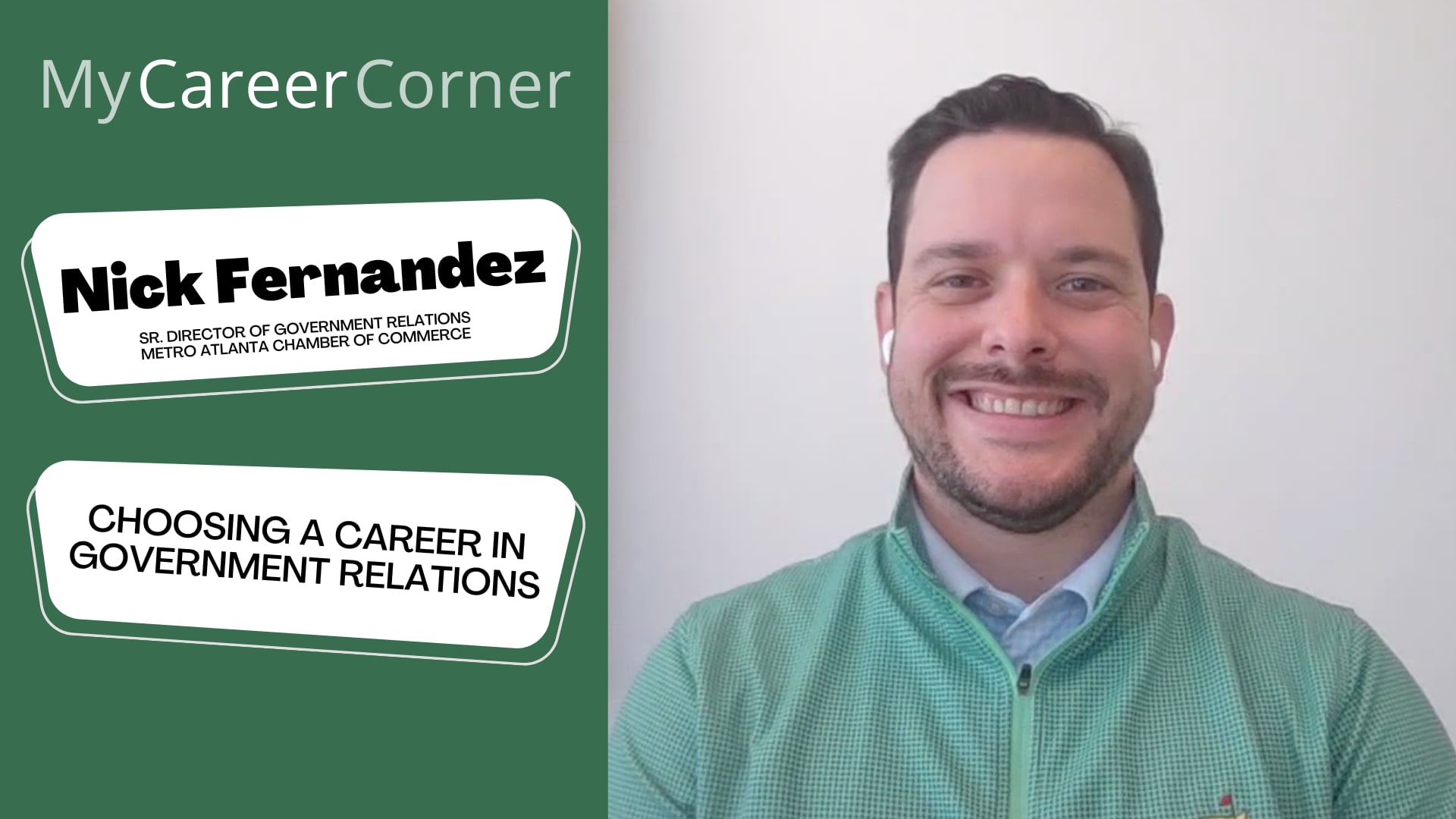
New Choosing a Career in Government Relations with Nick Fernandez
Nick Fernandez discusses the high school classes that he took to put him on a path to a career in Government Relations.
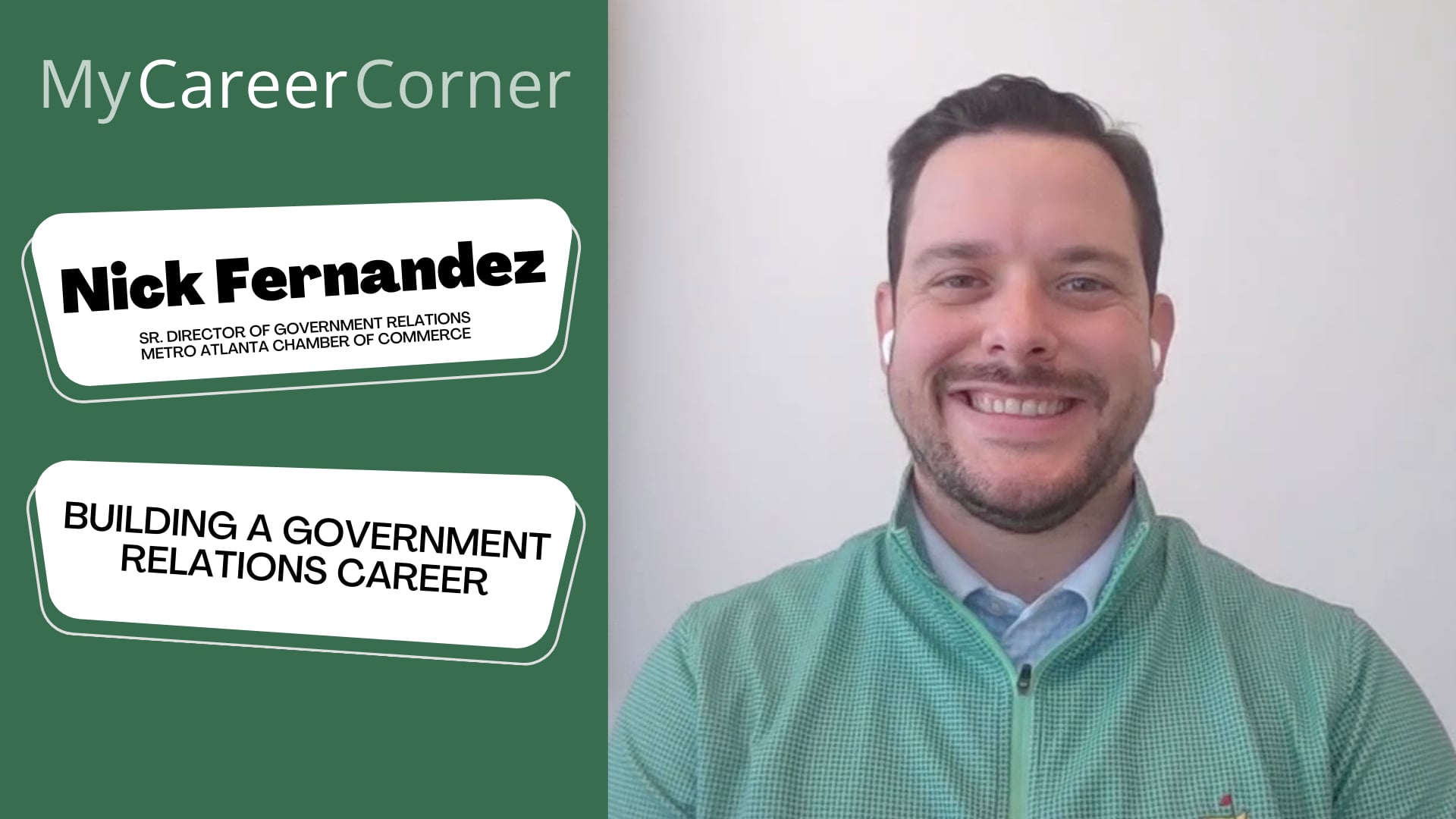
New Building a Government Relations Career with Nick Fernandez
Nick Fernandez discusses the importance of internships, apprenticeships and networking to establish a career in Government Relations.
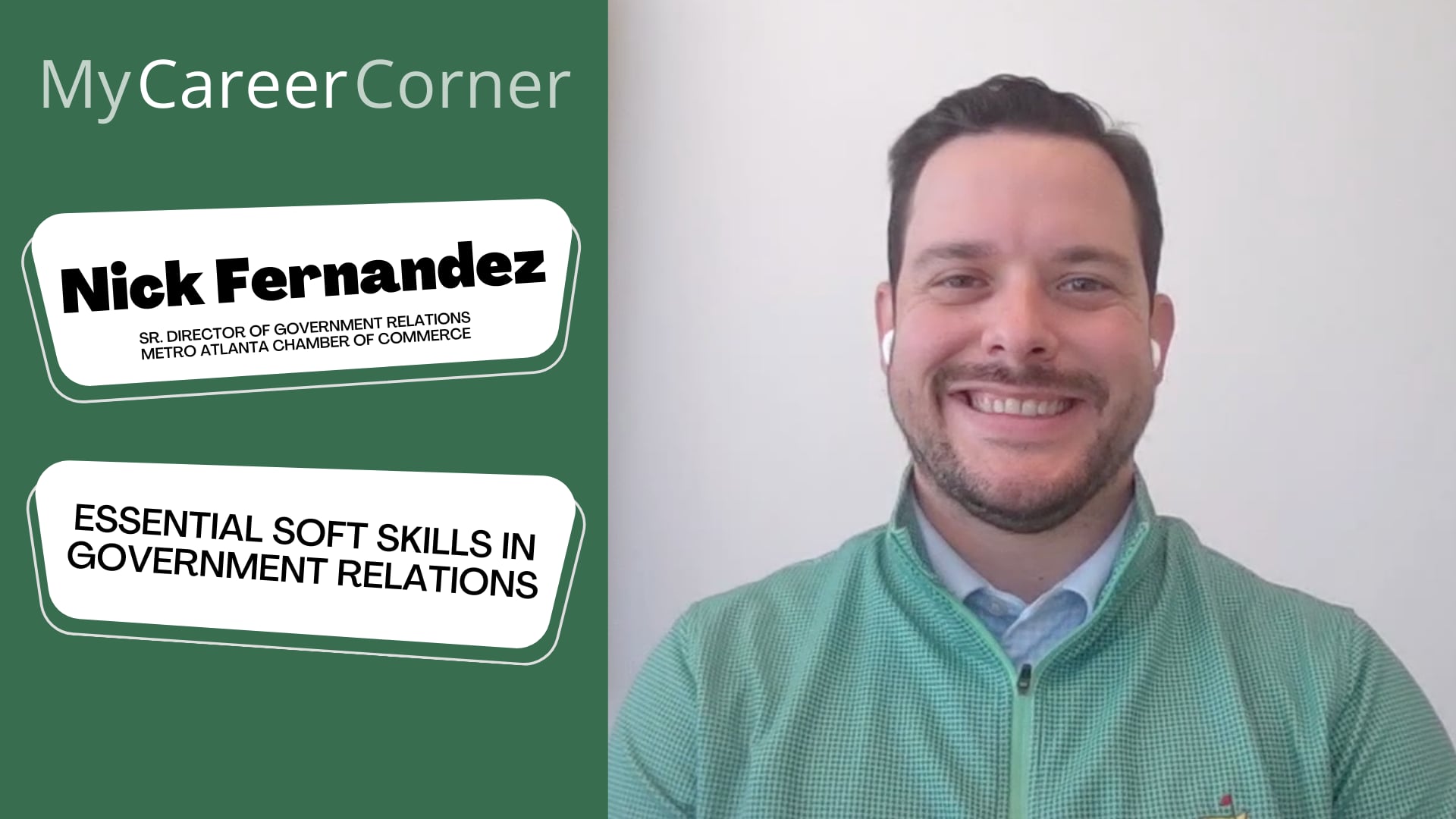
New Essential Soft Skills in Government Relations with Nick Fernandez
Nick Fernandez discusses the importance of Communications and Customer Service in being successful in a career in Government Relations.
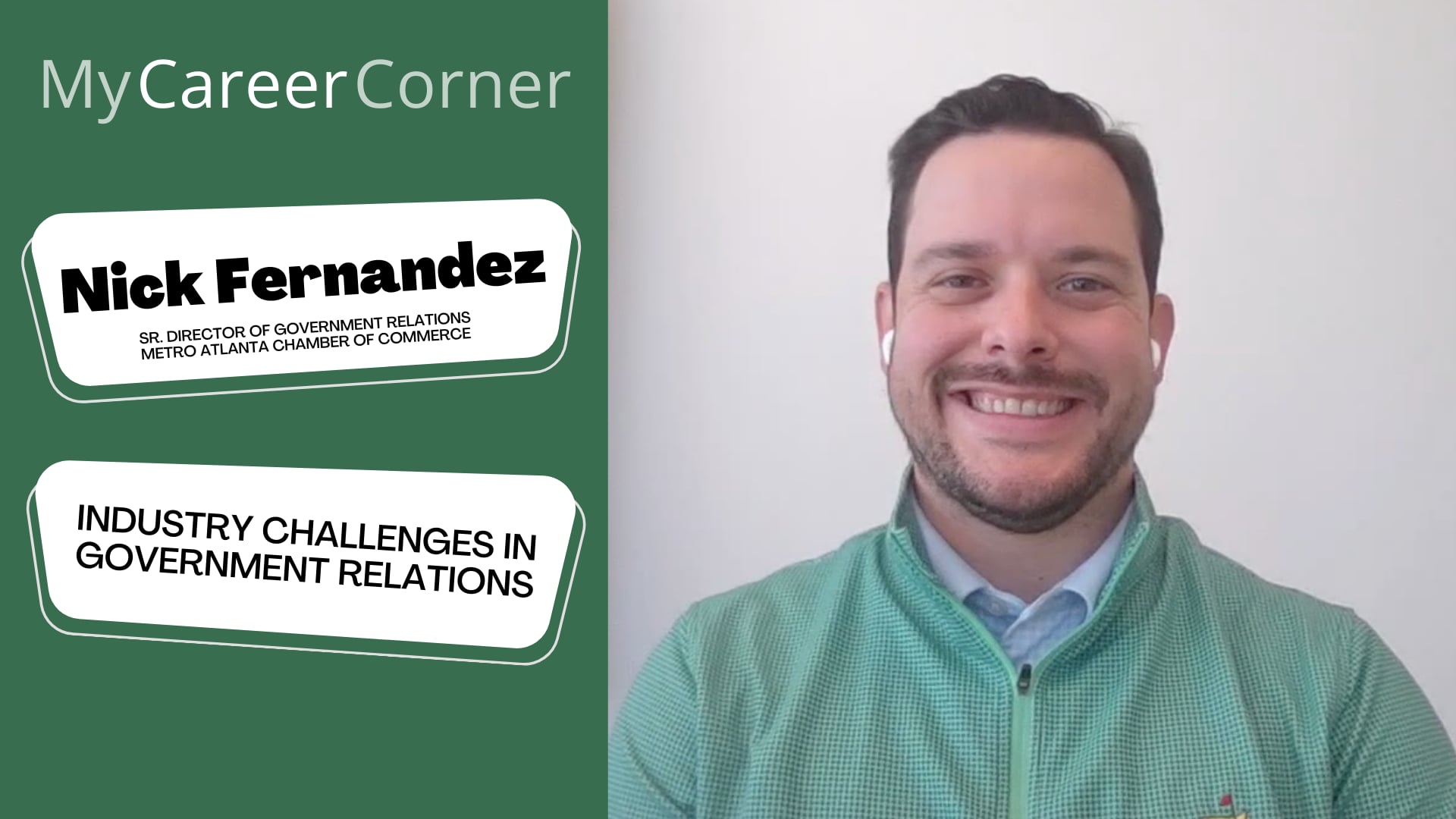
New Industry Challenges in Government Relations with Nick Fernandez
Nick Fernandez talks about a top issue in Government Relations, the Workforce, and how he works to create incentives to attract and retain talent in an area.
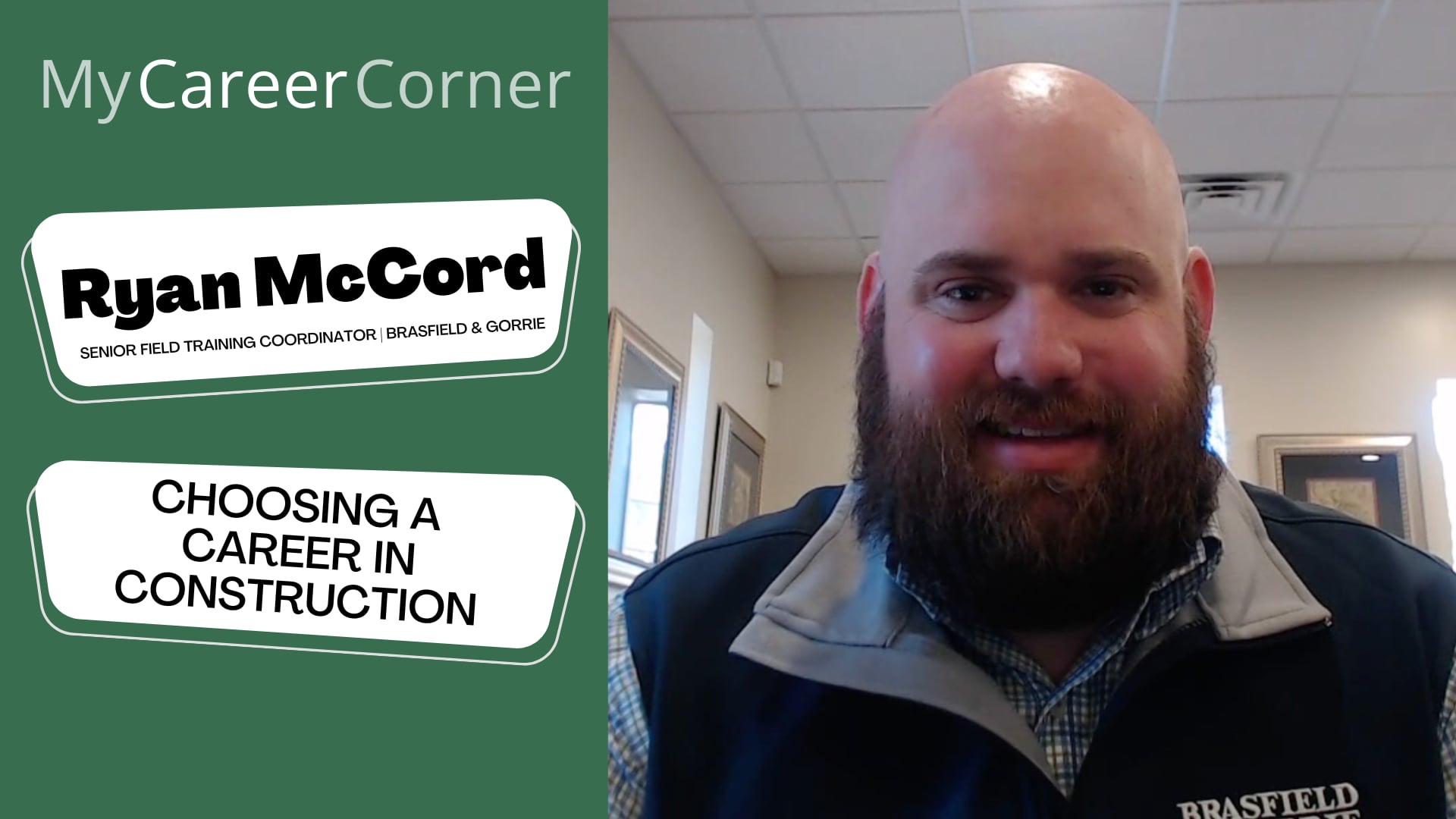
Choosing a Career in Construction with Ryan McCord
Ryan McCord talks about his journey to a career in the construction industry. From learning carpentry and welding in high school shop class to now helping to build things such as hydroelectric dams, hospitals and skyscrapers.
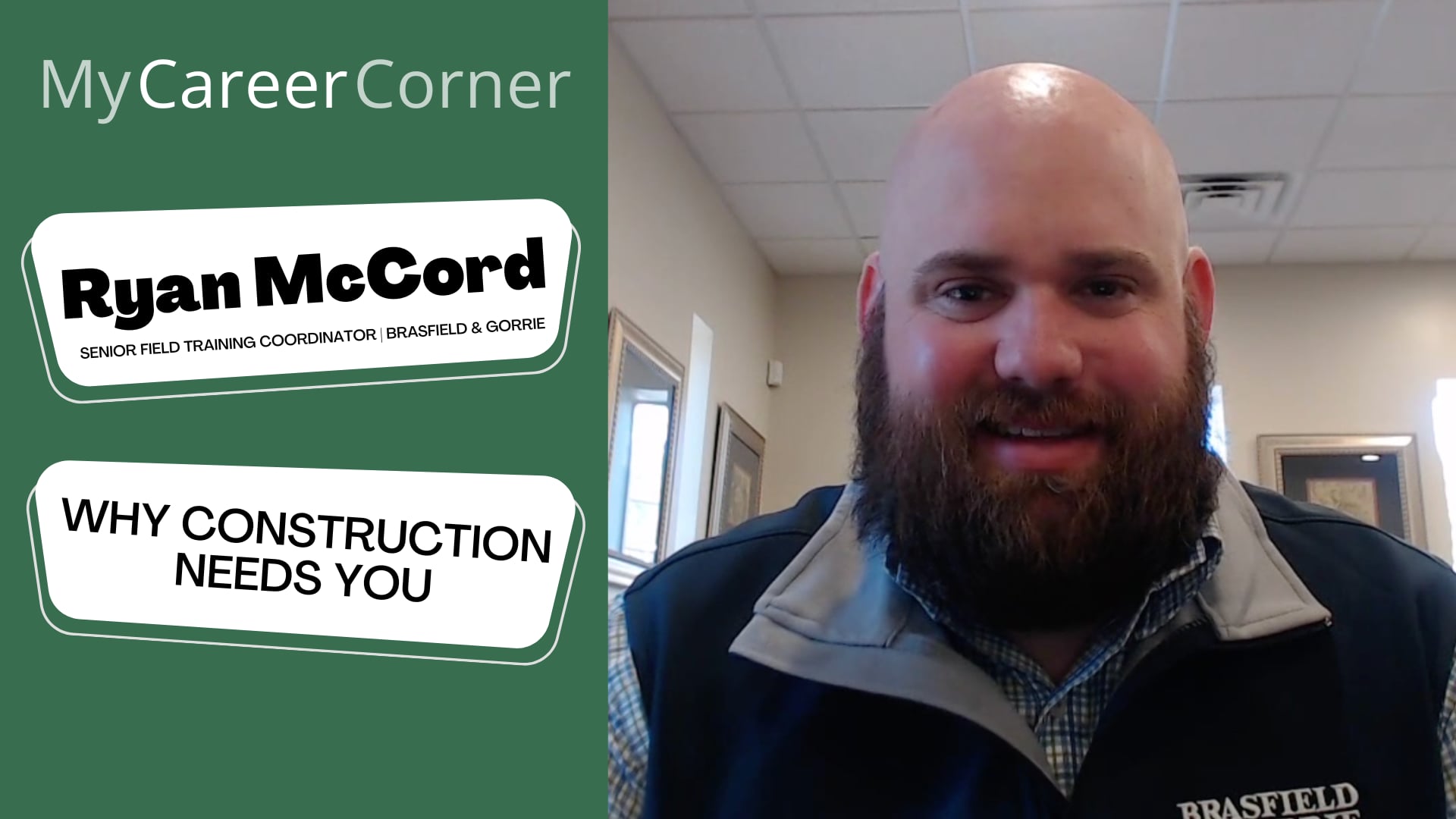
Why Construction Needs You with Ryan McCord
Ryan McCord discusses the expected Construction Industry growth over the next ten years and the great opportunity for young people to get hired, trained on the fundamentals, and then grow into a great career.
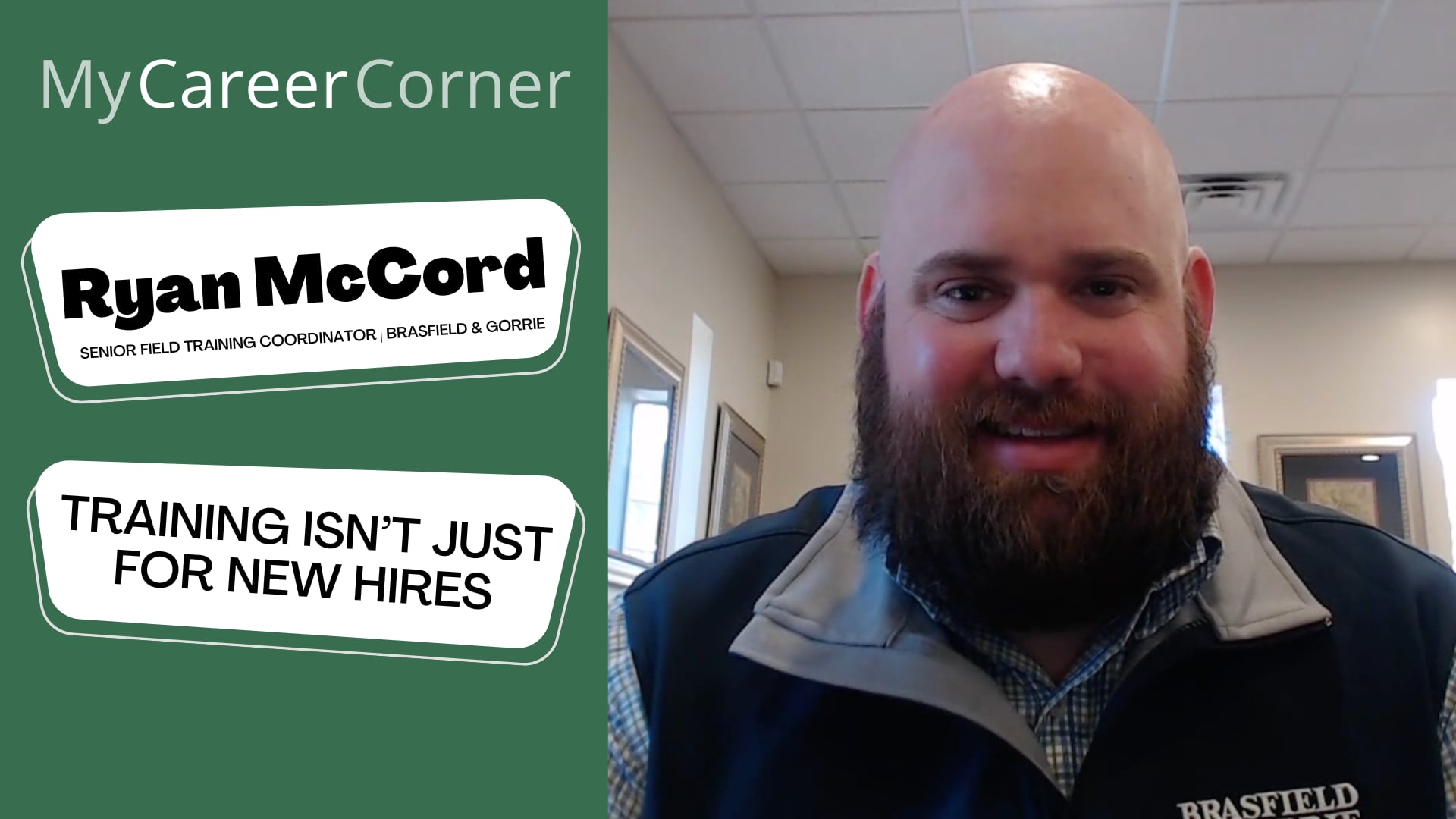
Training Isn’t Just for New Hires with Ryan McCord
Ryan McCord emphasizes the importance of continued education and training throughout a construction career to stay up to date on advances in tools, technology, techniques, and regulations.
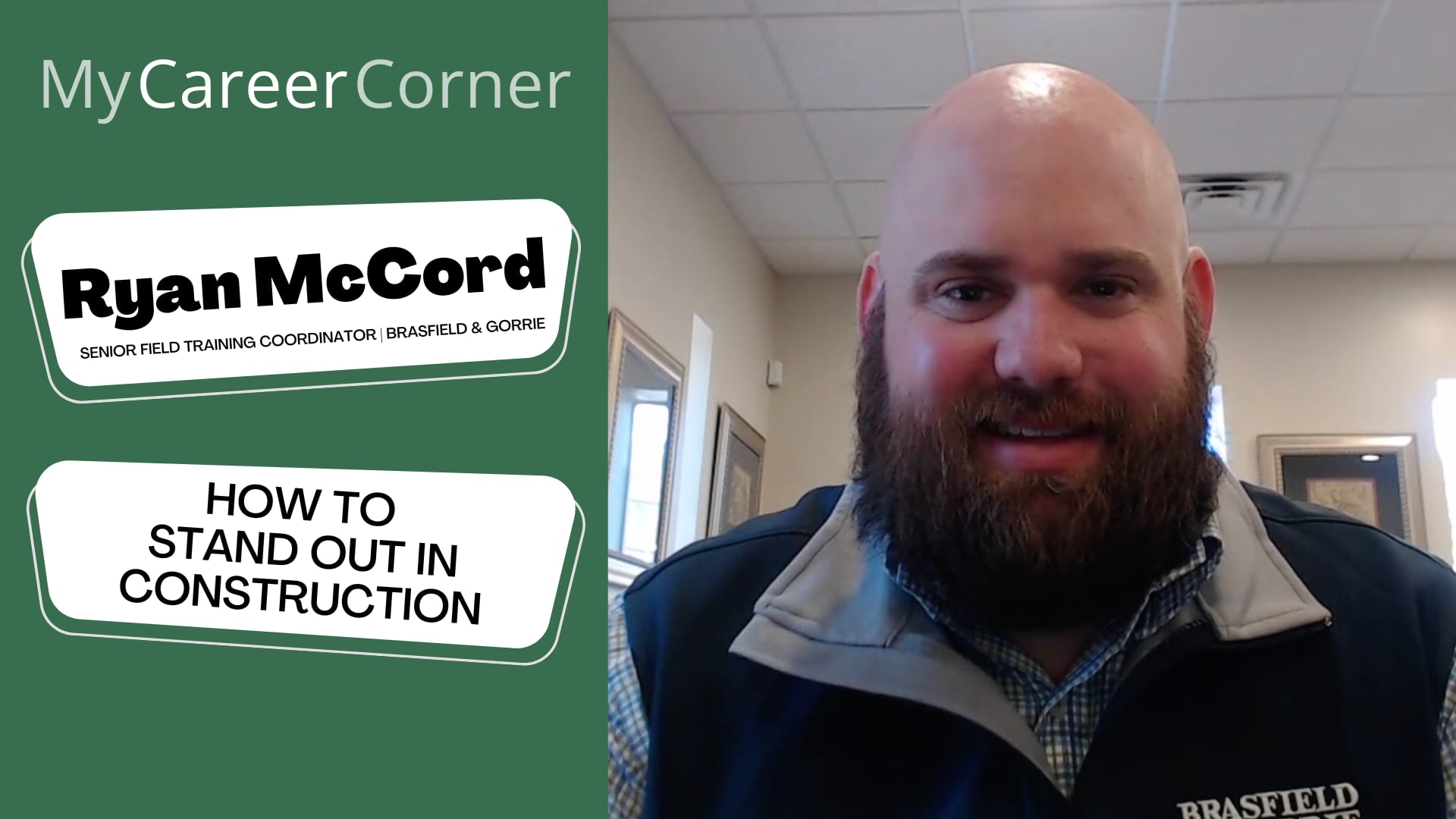
How to Stand Out in Construction with Ryan McCord
Ryan McCord discusses the things that young individuals need to possess to help them be successful in their construction careers.
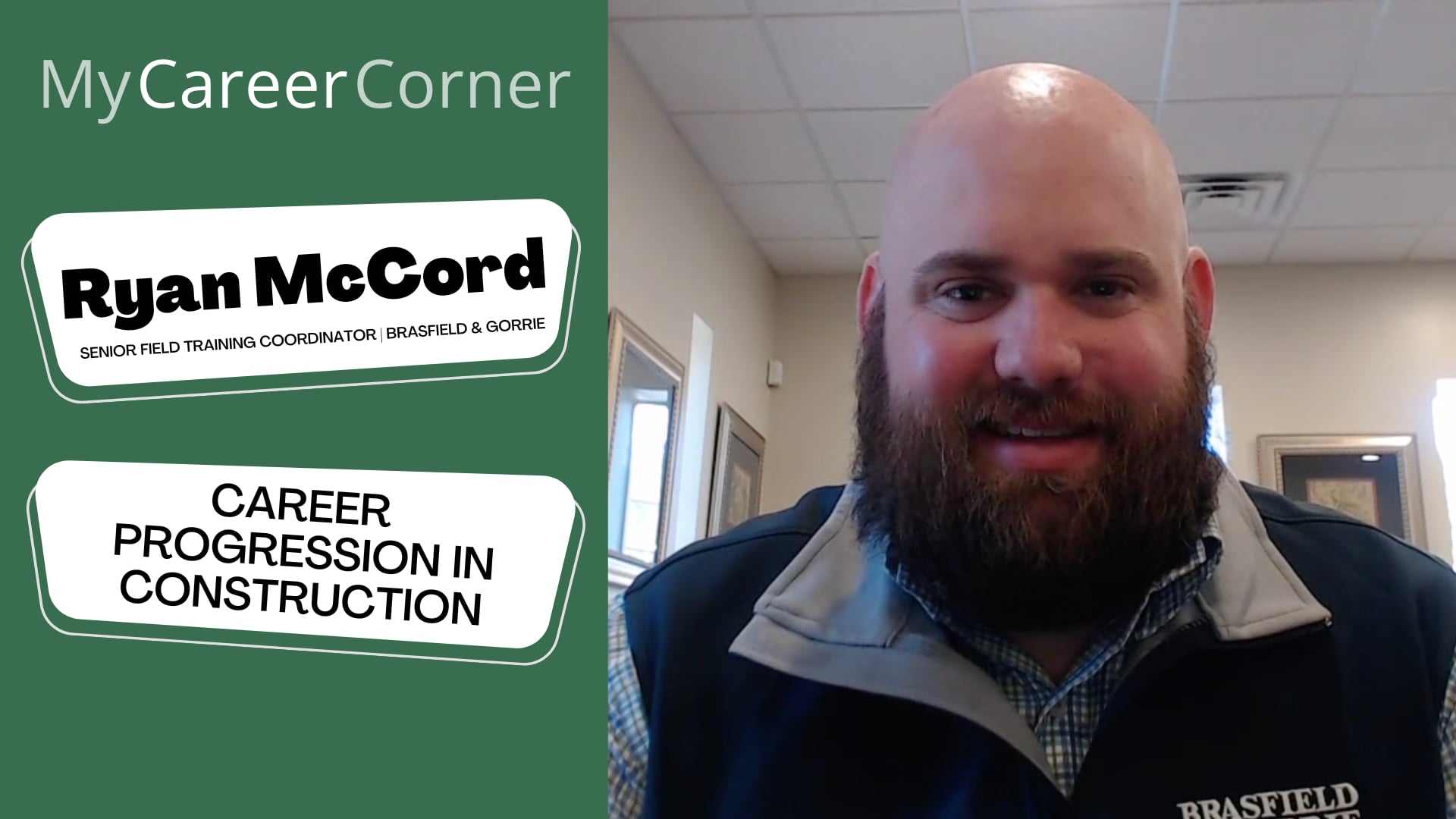
Career Progression in Construction with Ryan McCord
Ryan McCord talks about the opportunities in construction through Apprenticeships. He discusses his career track starting at laborer and advancing across a variety of interesting and well-paid jobs.
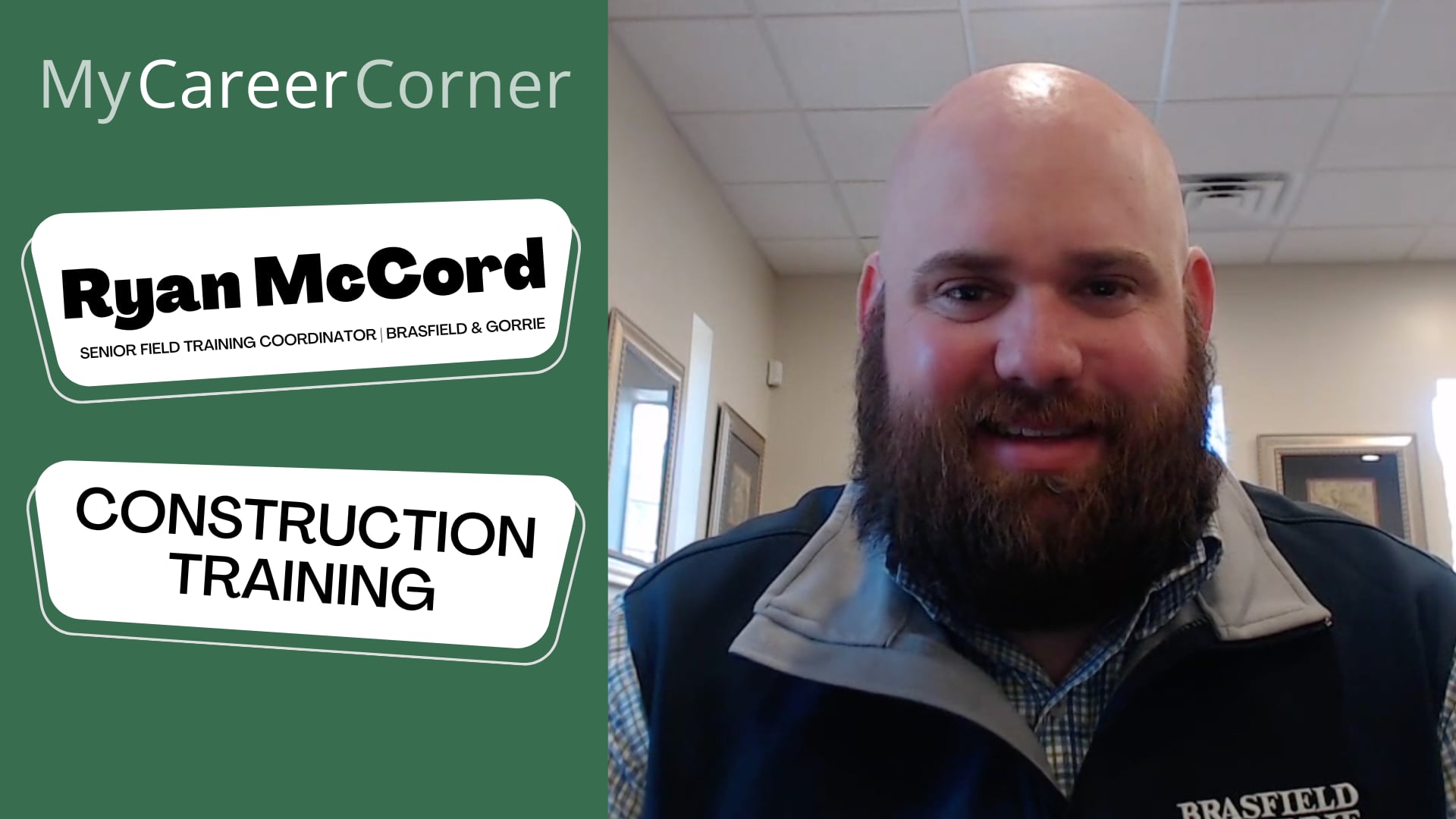
Construction Training with Ryan McCord
Ryan McCord discusses his responsibilities in Field Training, including topics such as apprenticeships, and training on Carpentry, Rigging and Signaling, CAD and Revit.
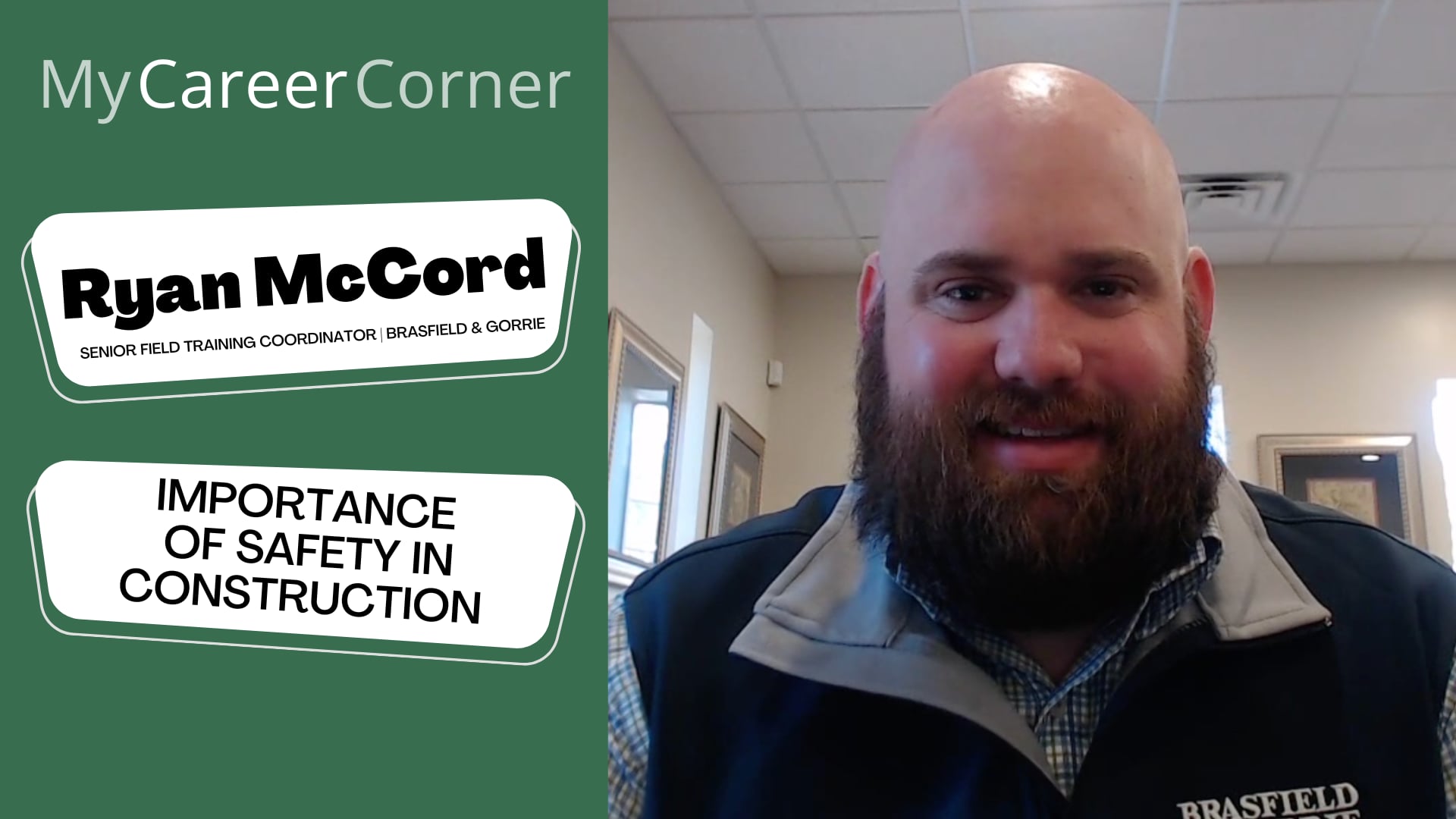
Importance of Safety in Construction with Ryan McCord
Ryan McCord highlights the Safety Culture at Brasfield & Gorrie and how they incorporate safety training in everything they do to ensure better planning and execution.
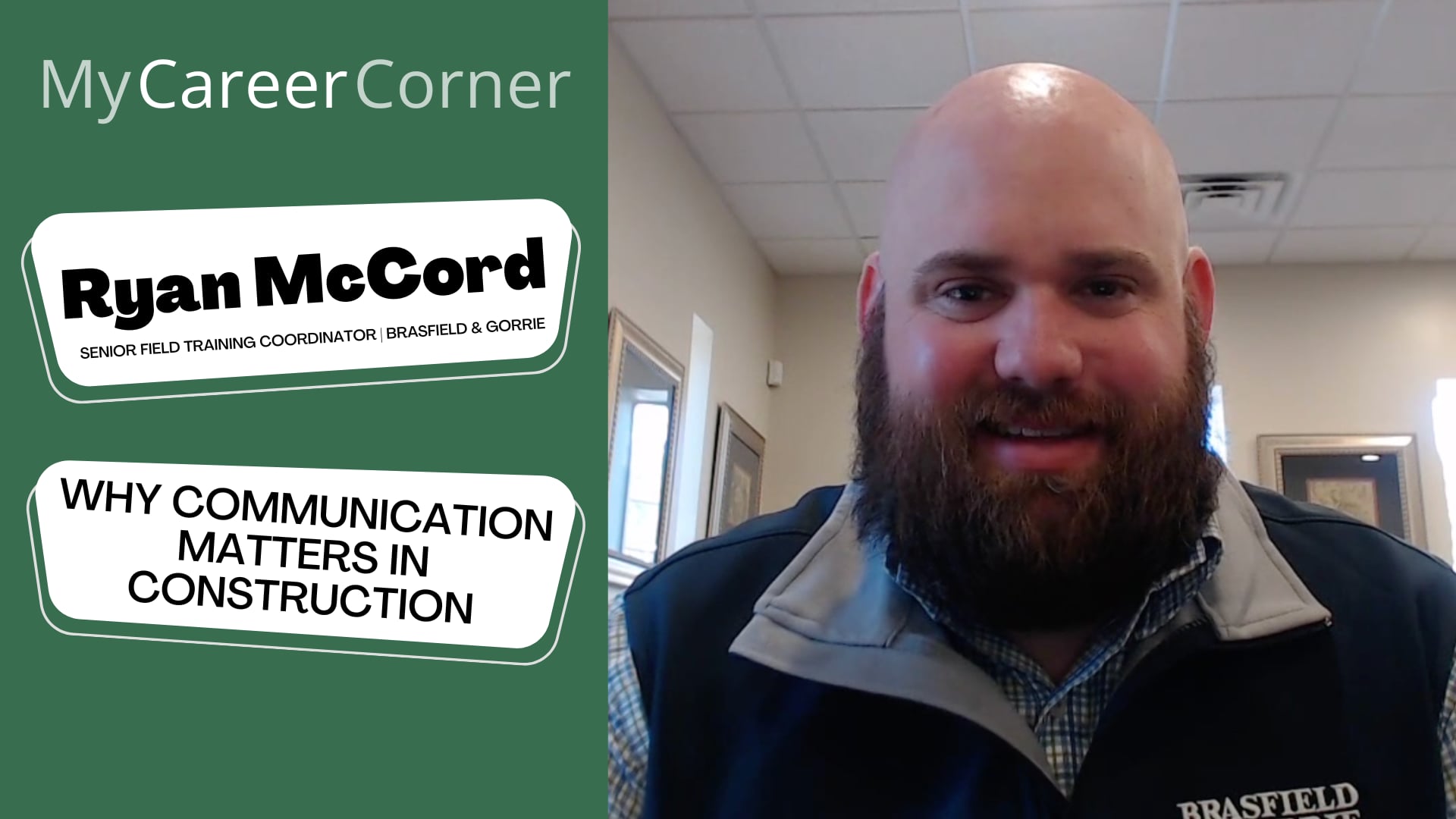
Why Communication Matters in Construction with Ryan McCord
Ryan McCord talks about the benefits of good communication for construction employees to keep jobsites safe and successfully complete projects.
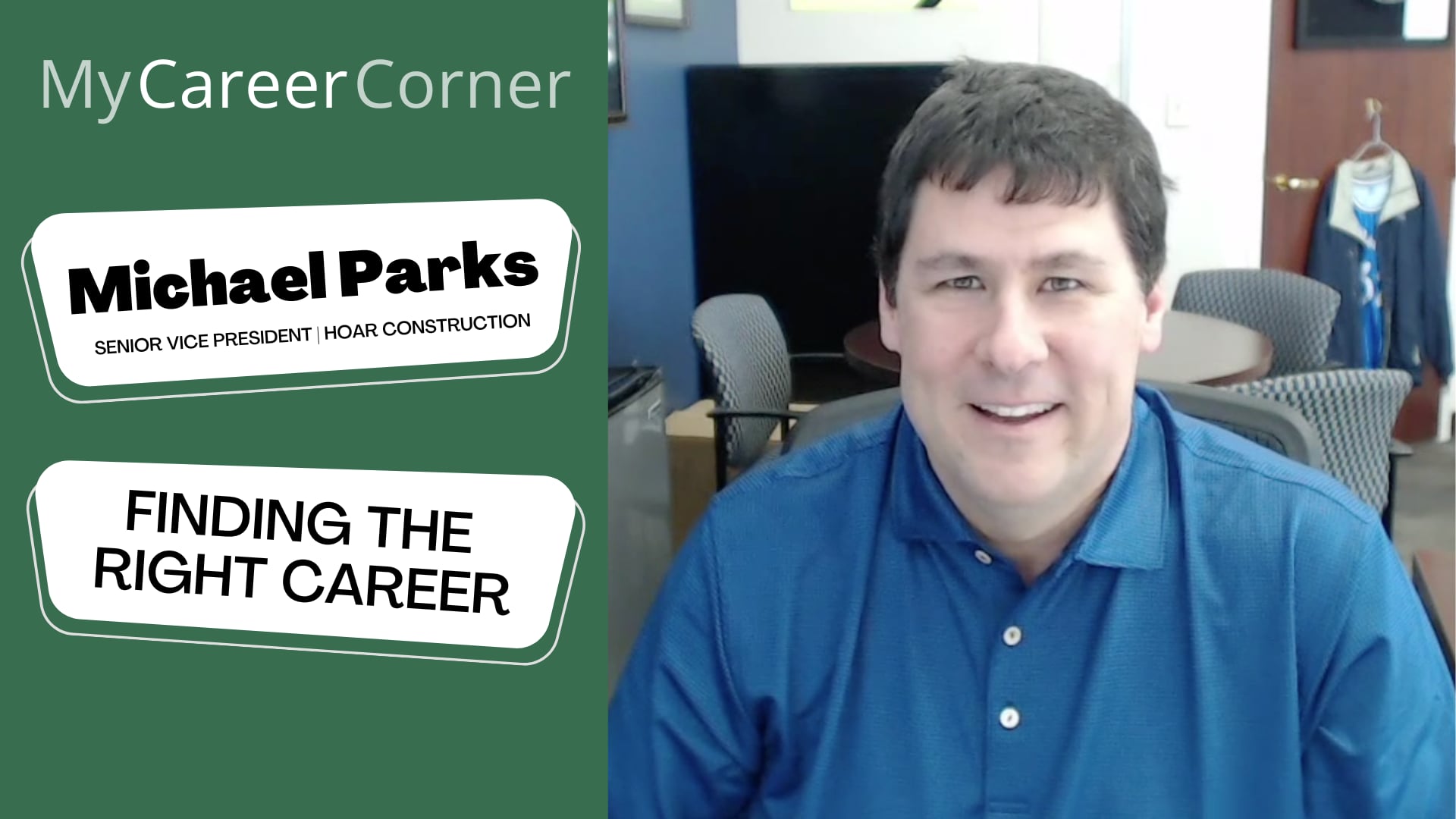
Finding the Right Career with Michael Parks
Michael Parks discusses his winding road to a career in construction involving entry level jobs, changing college majors multiple times, but ultimately leading to a career that he loves.
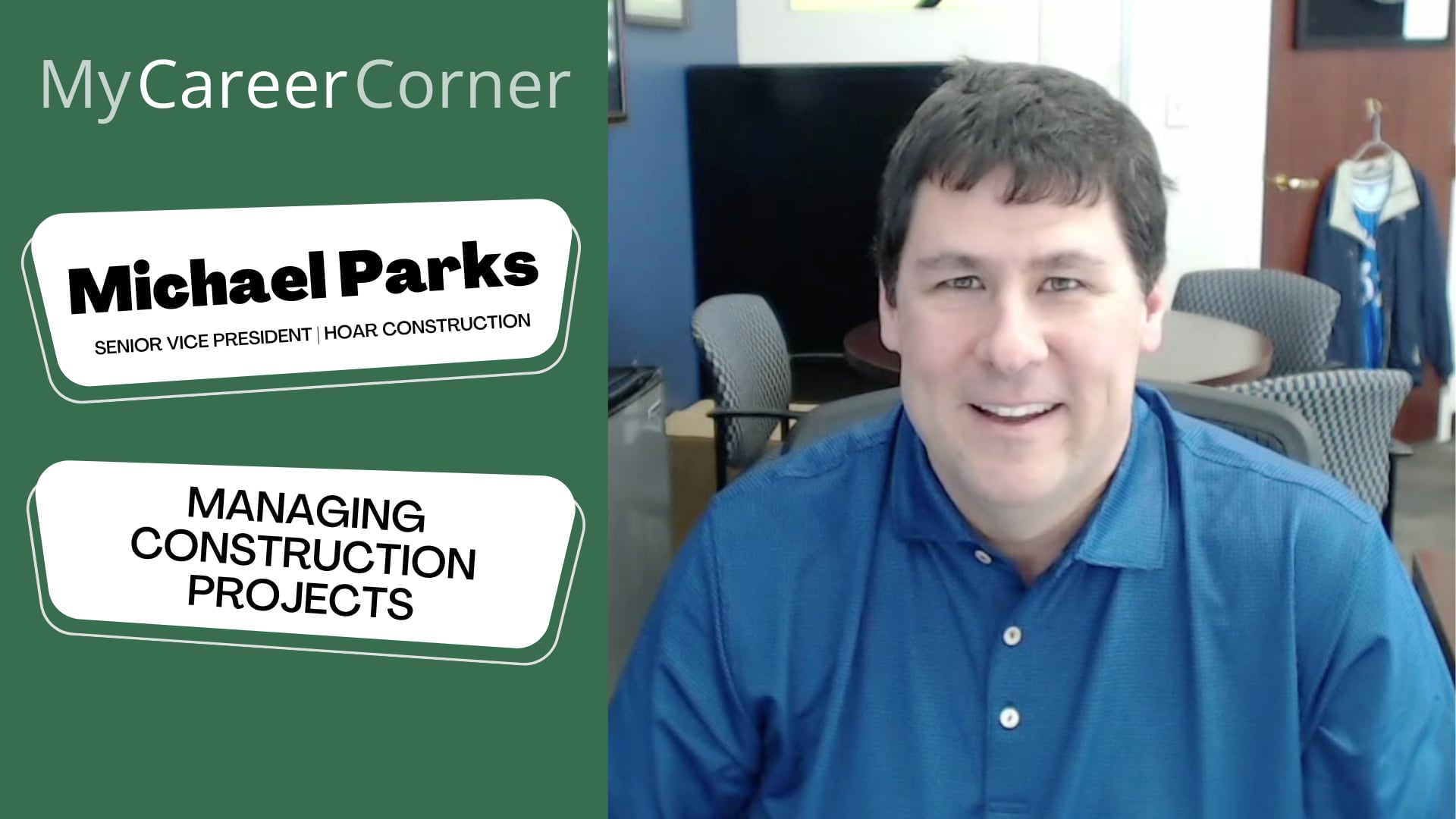
Managing Construction Projects with Michael Parks
Michael Parks discusses his job of running the Florida office of a large General Contractor and some of the soft skills required to be successful.
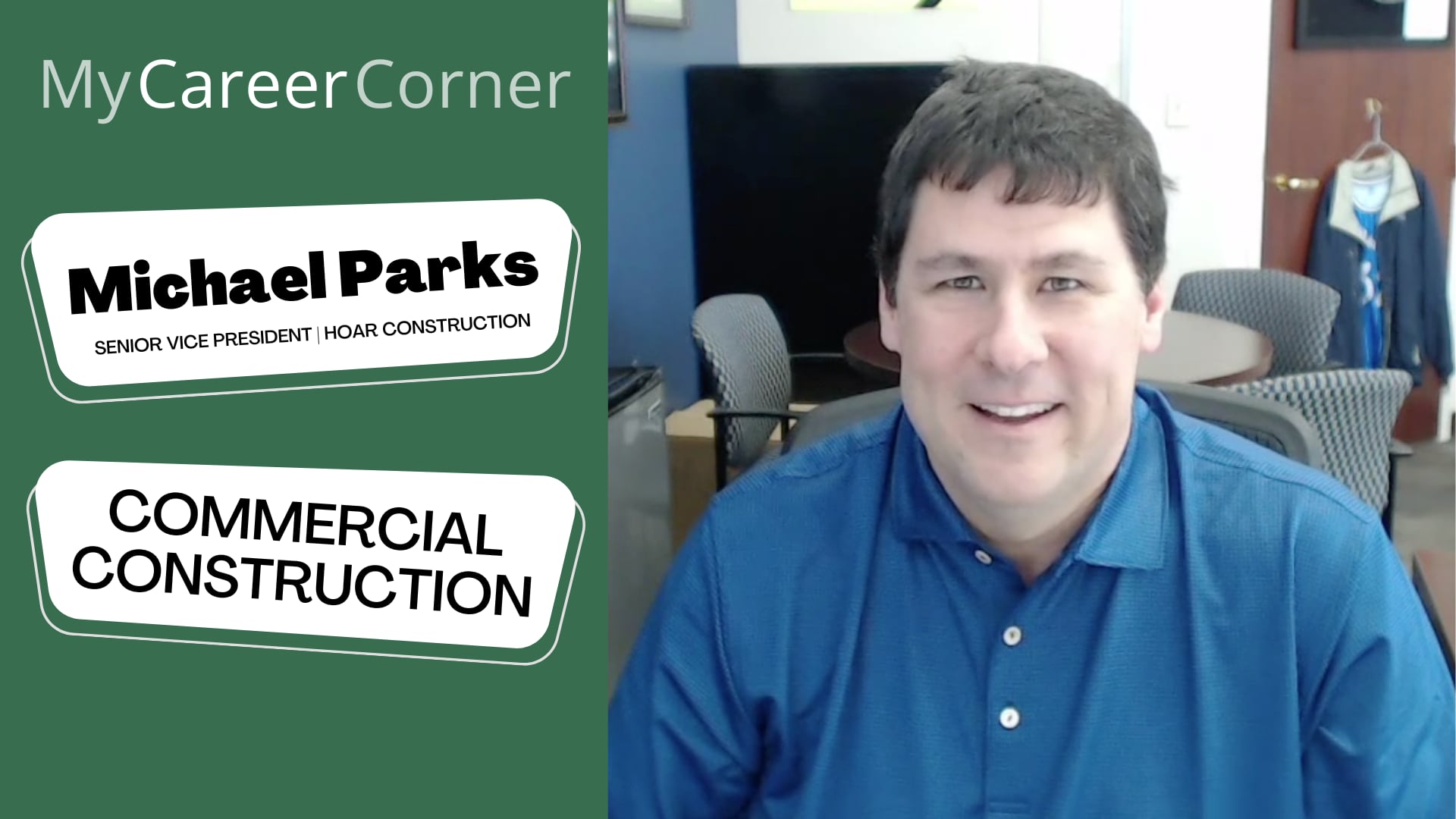
Commercial Construction with Michael Parks
Michael Parks talks about the role of a General Contractor in managing and coordinating a seamless construction process that ends with a completed project, and a happy customer.
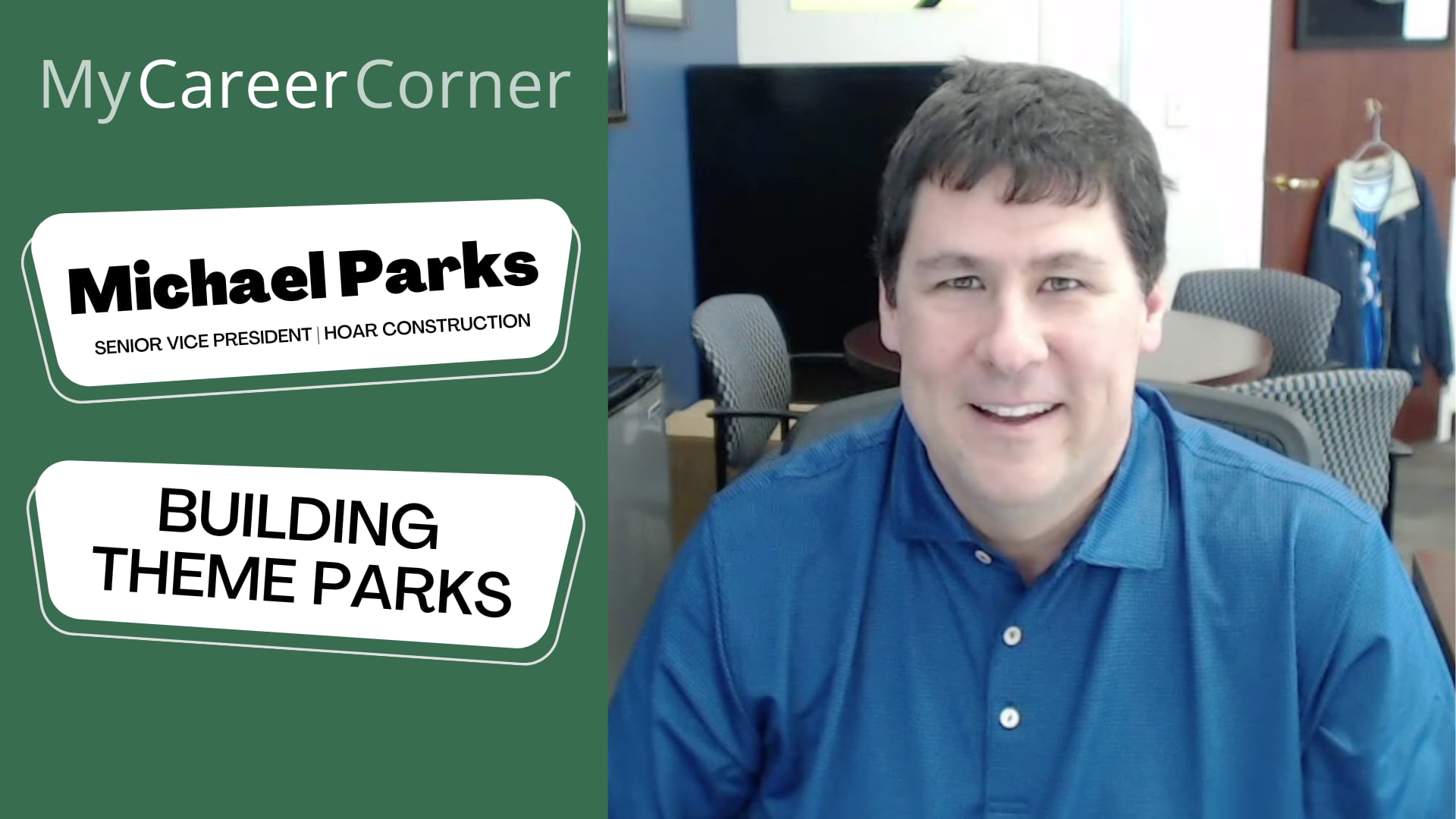
Building Theme Parks with Michael Parks
Michael Parks talks about the pride he takes in their work with Disney World that has culminated in the construction of many of their best-known attractions.
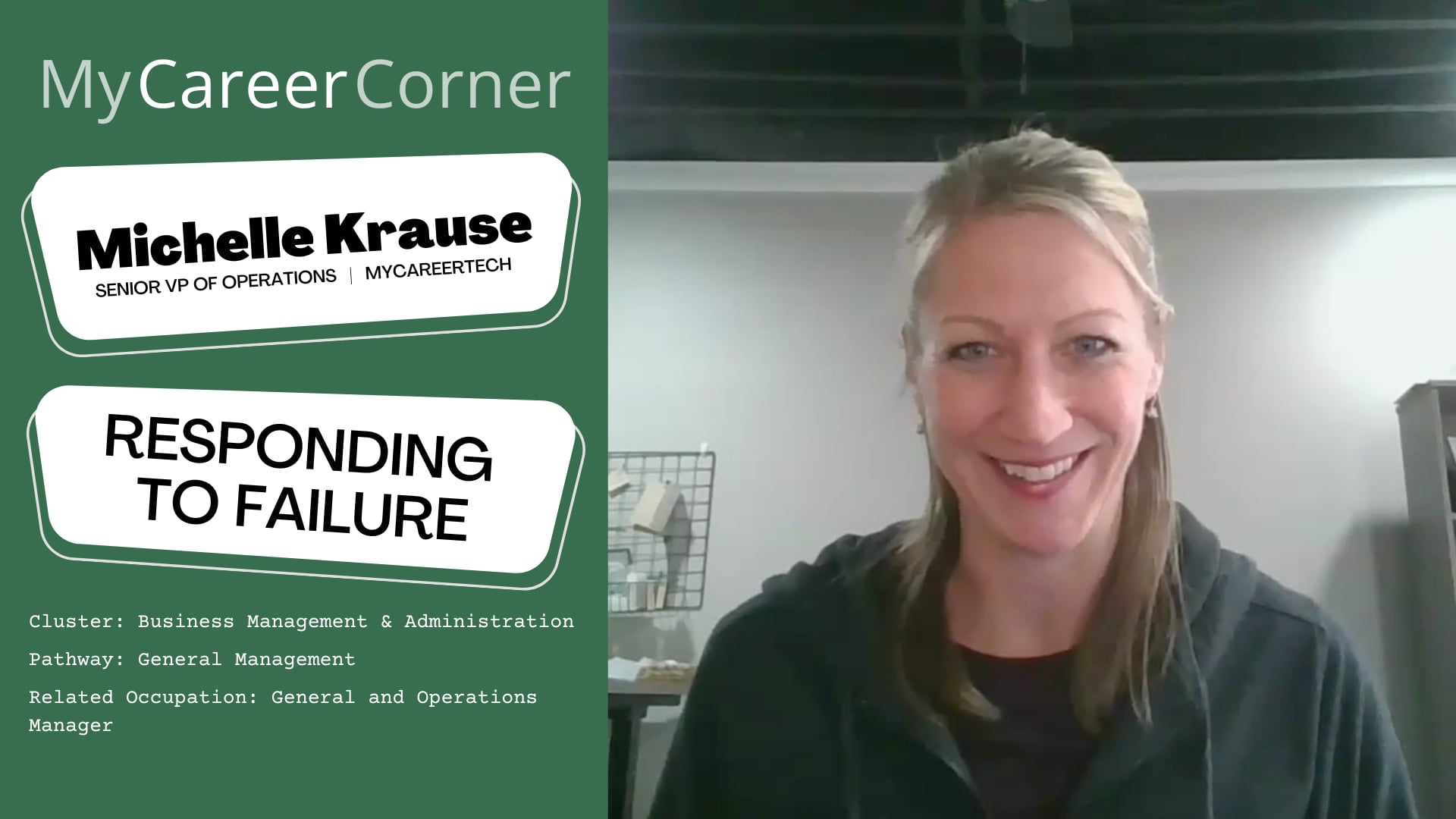
Responding to Failure with Michelle Krause
Michelle Krause discusses the time that she was laid off, how she responded to the setback, and gives advice to students on dealing with failure.
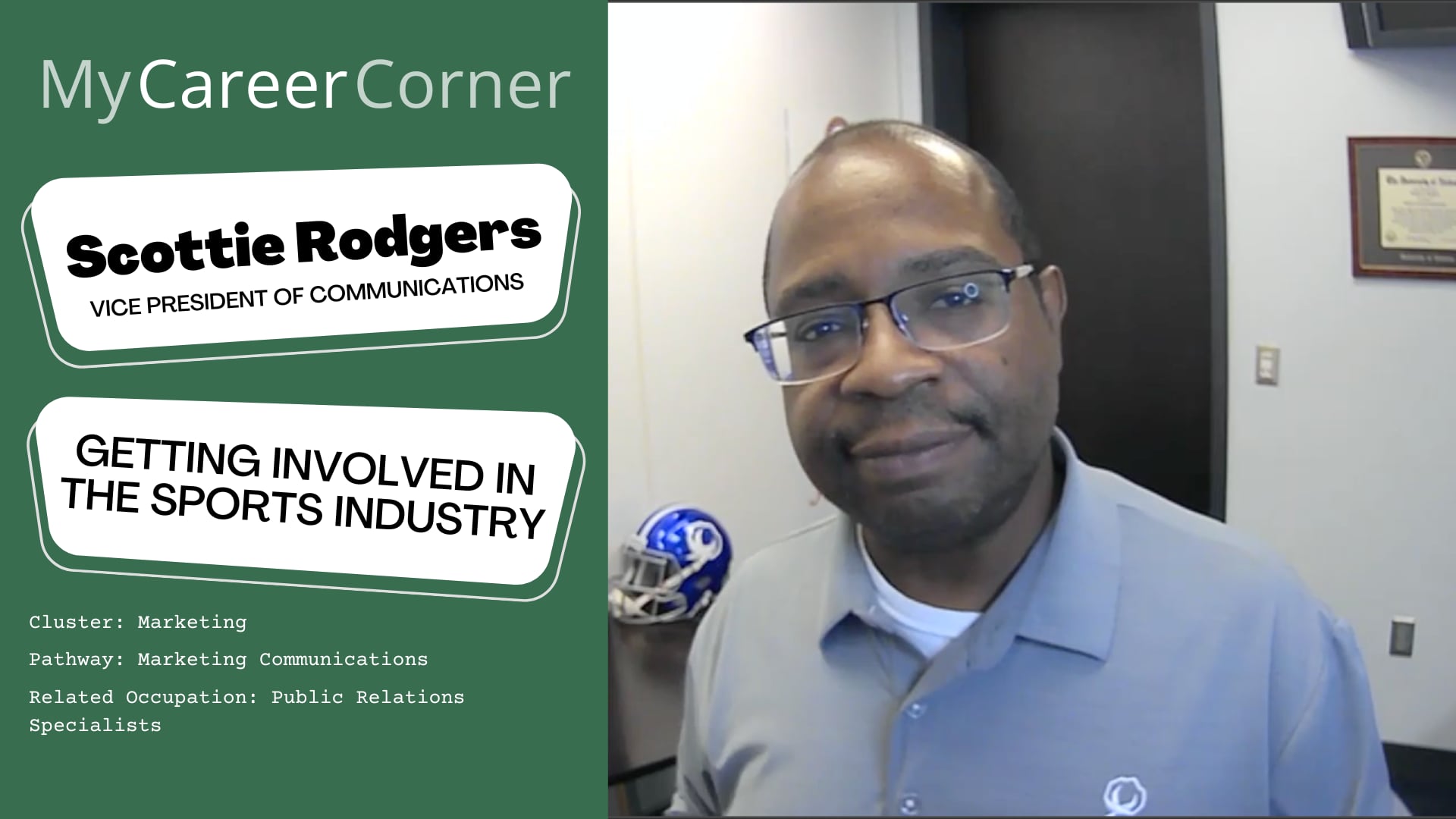
Getting Involved in the Sports Industry with Scottie Rodgers
Scottie Rodgers speaks about his industry, giving details on how to create future opportunities for yourself by getting involved and engaged now.
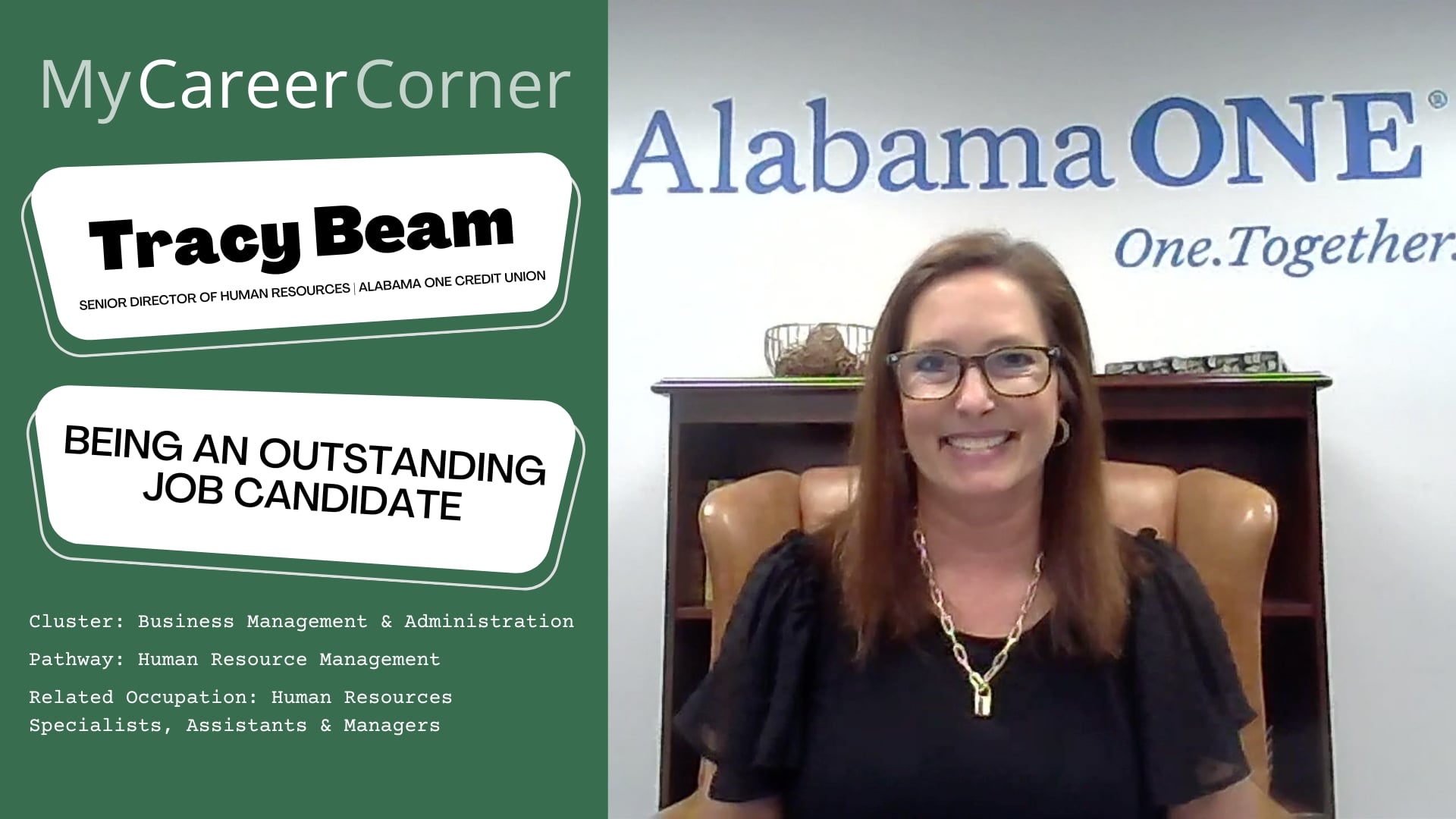
Being an Outstanding Job Candidate with Tracy Beam
Tracy Beam gives tips on making a good impression in an interview such as making eye contact, a firm handshake, asking questions, and writing thank you notes.
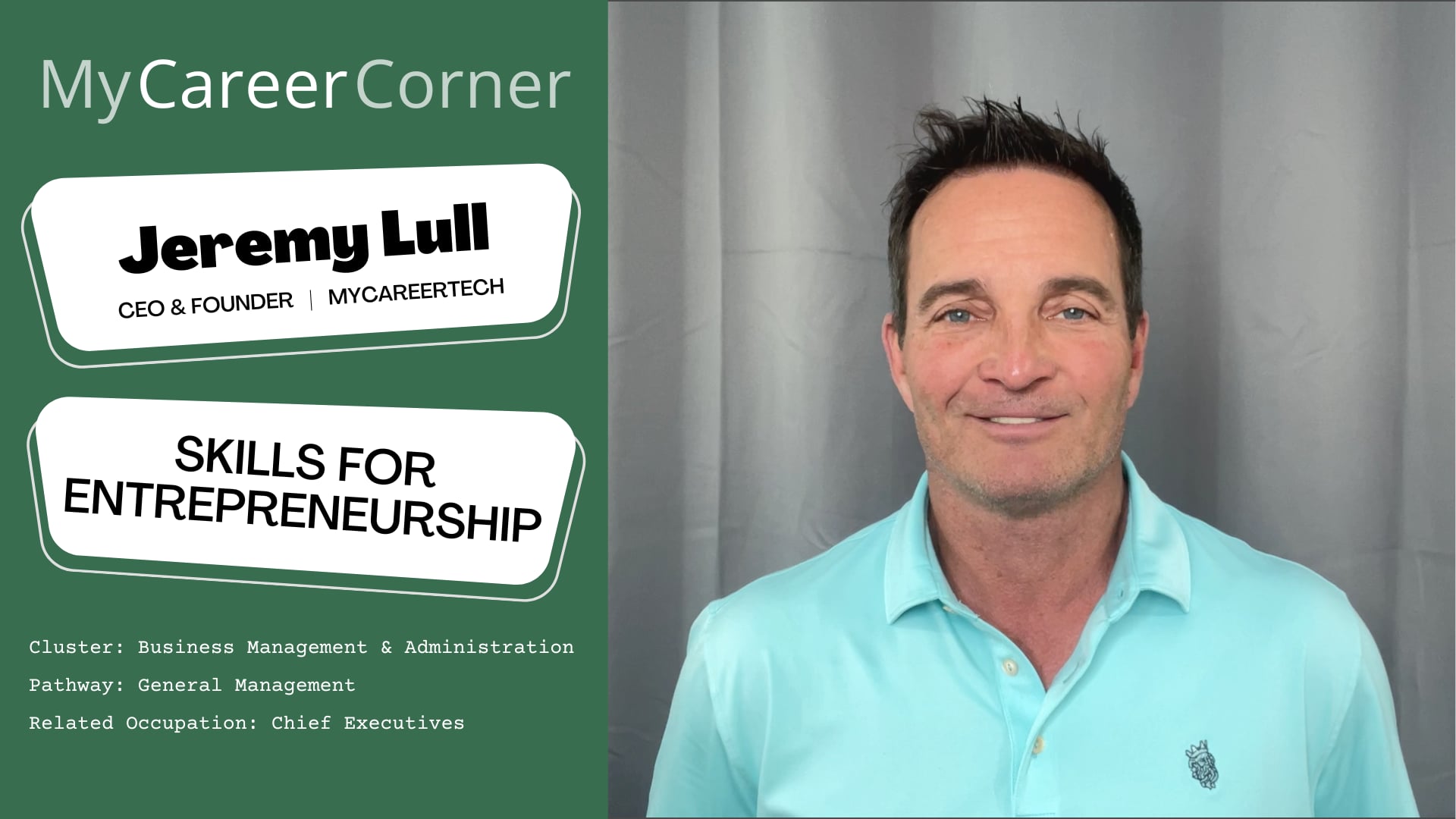
Skills For Entrepreneurship with Jeremy Lull
Jeremy Lull talks about the importance of soft skills like Leadership, Teamwork, Communication & Problem Solving for running a successful business.
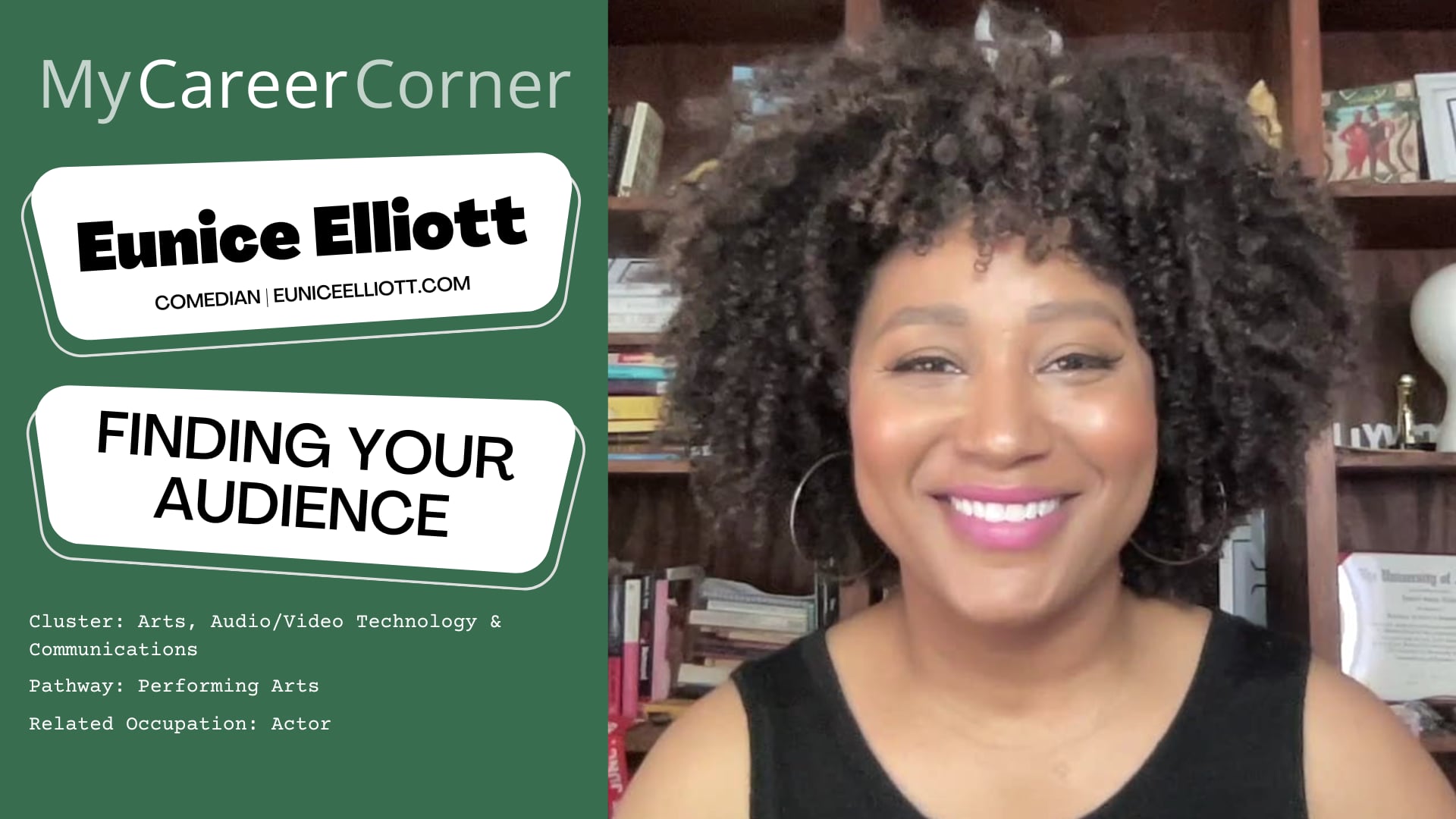
Finding Your Audience with Eunice Elliott
Eunice Elliott shares her process for writing her material by being authentic, observing the audience, and allowing their feedback to shape where she takes them.
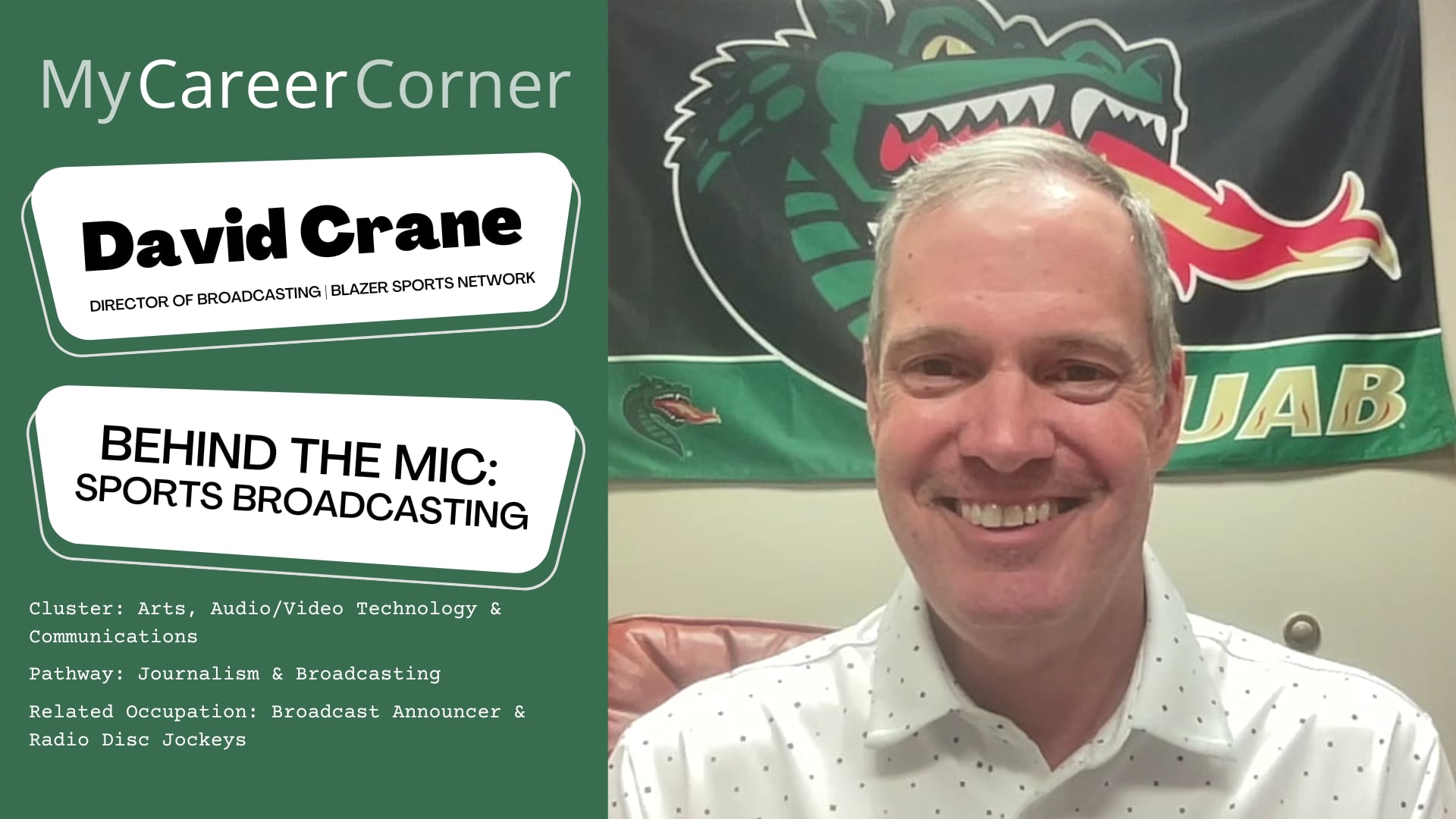
Behind the Mic: Sports Broadcasting with David Crane
David Crane talks about his job and how he was able to map out his career early in life by gaining valuable experience in high school.
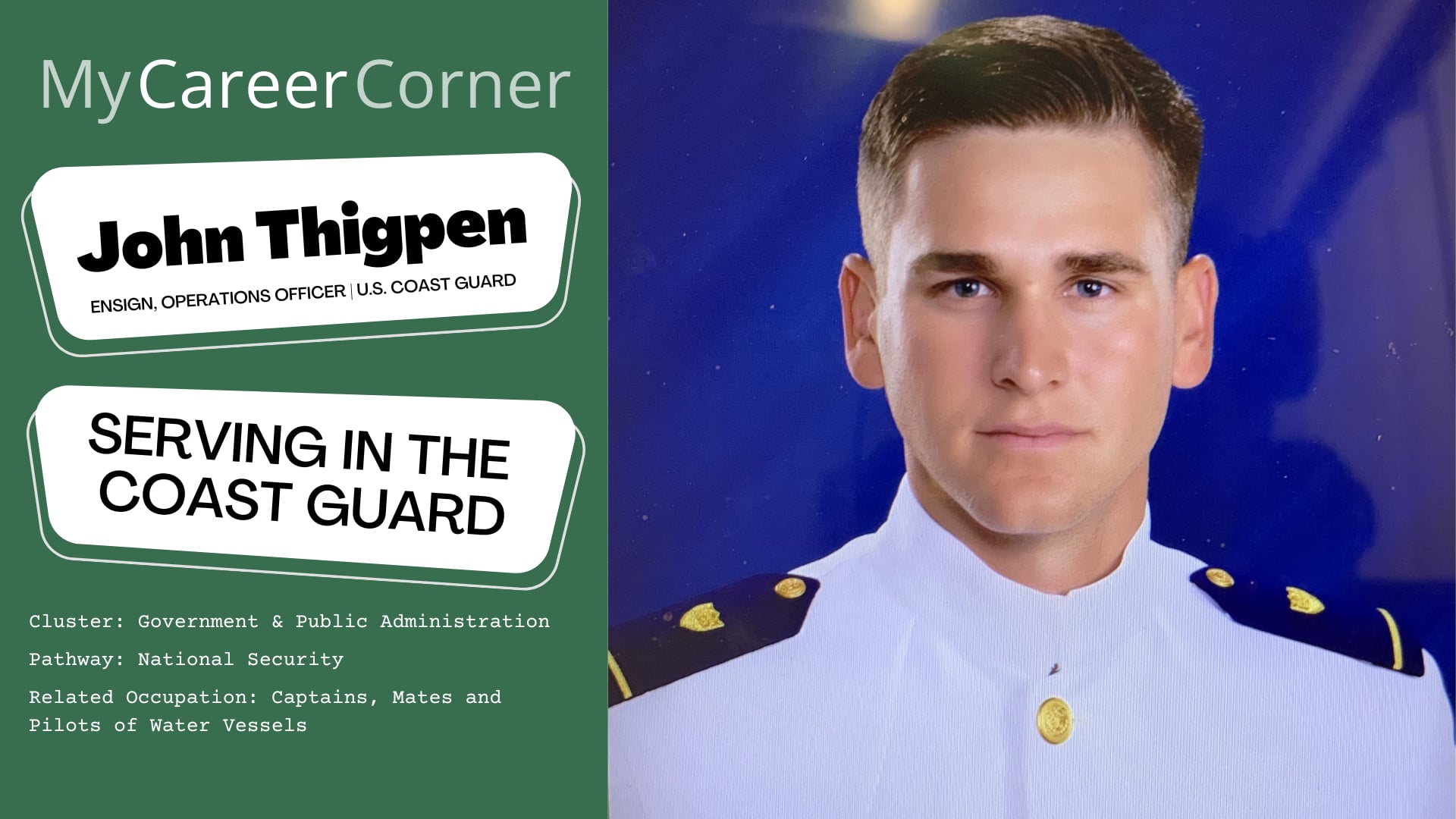
Serving in the Coast Guard with John Thigpen
John Thigpen talks about serving in the United States Coast Guard as an Ensign, being underway on the Cutter, and his love for the mission.
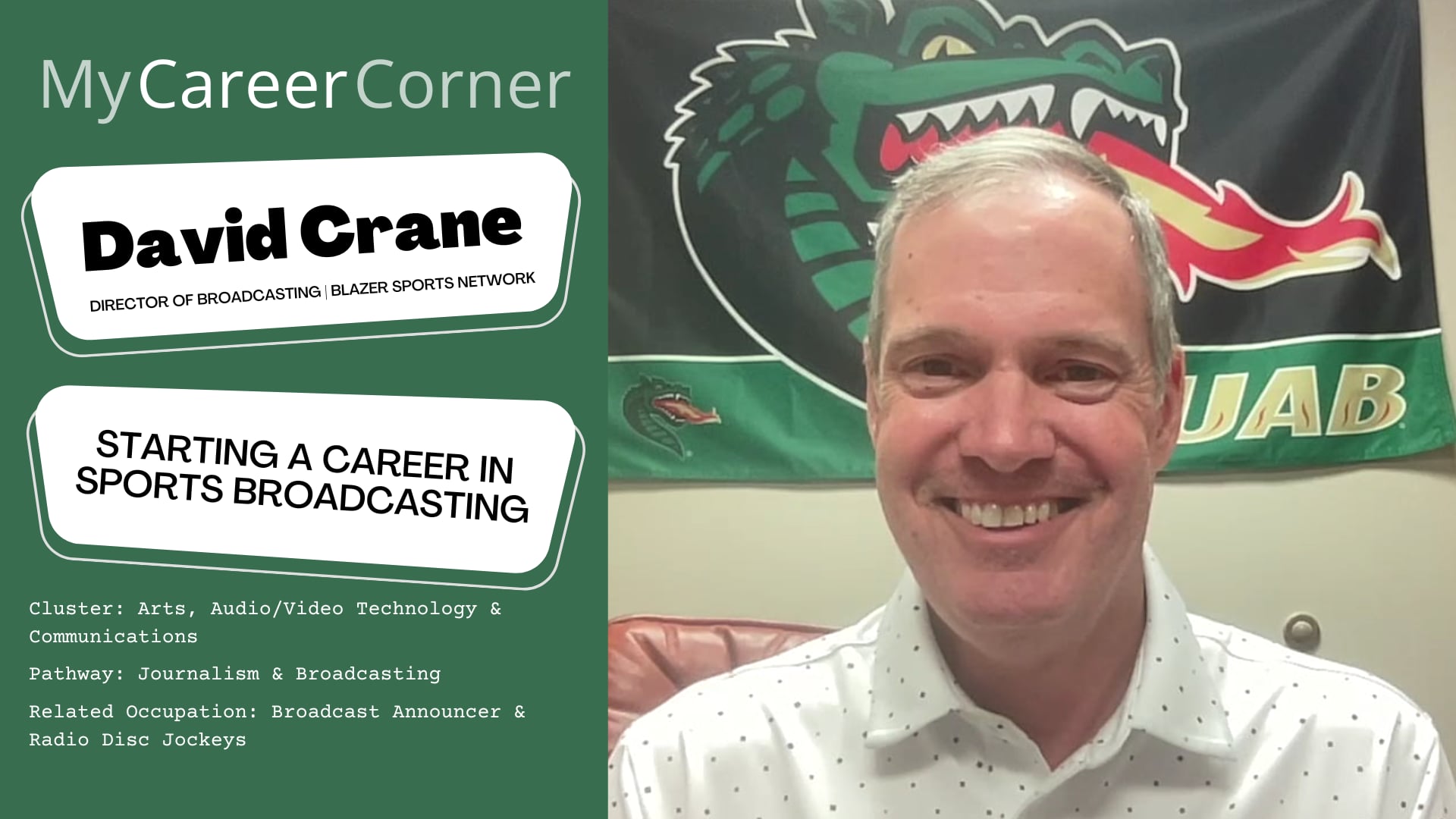
Starting a Career in Sports Broadcasting with David Crane
David Crane shares ways to volunteer in high school to gain valuable experience and to see if you enjoy the career you are considering. He also offers practical ideas for developing your own skills.
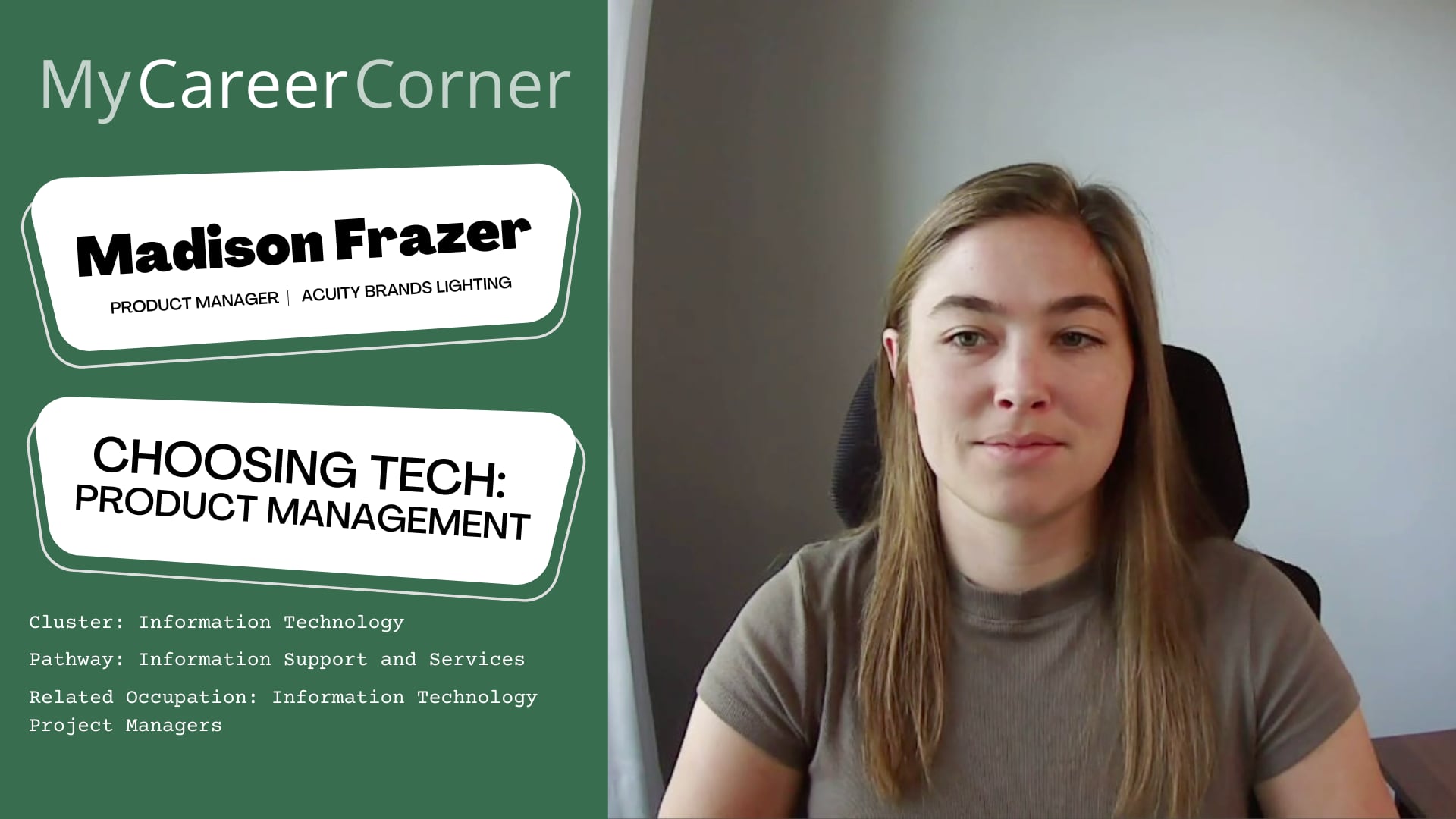
Choosing Tech: Product Management with Madison Frazer
Madison Frazer talks about how she utilized her interests in learning about how things work, like the iPhone, Video Games, and Laptops, to lead her to her chosen career path.
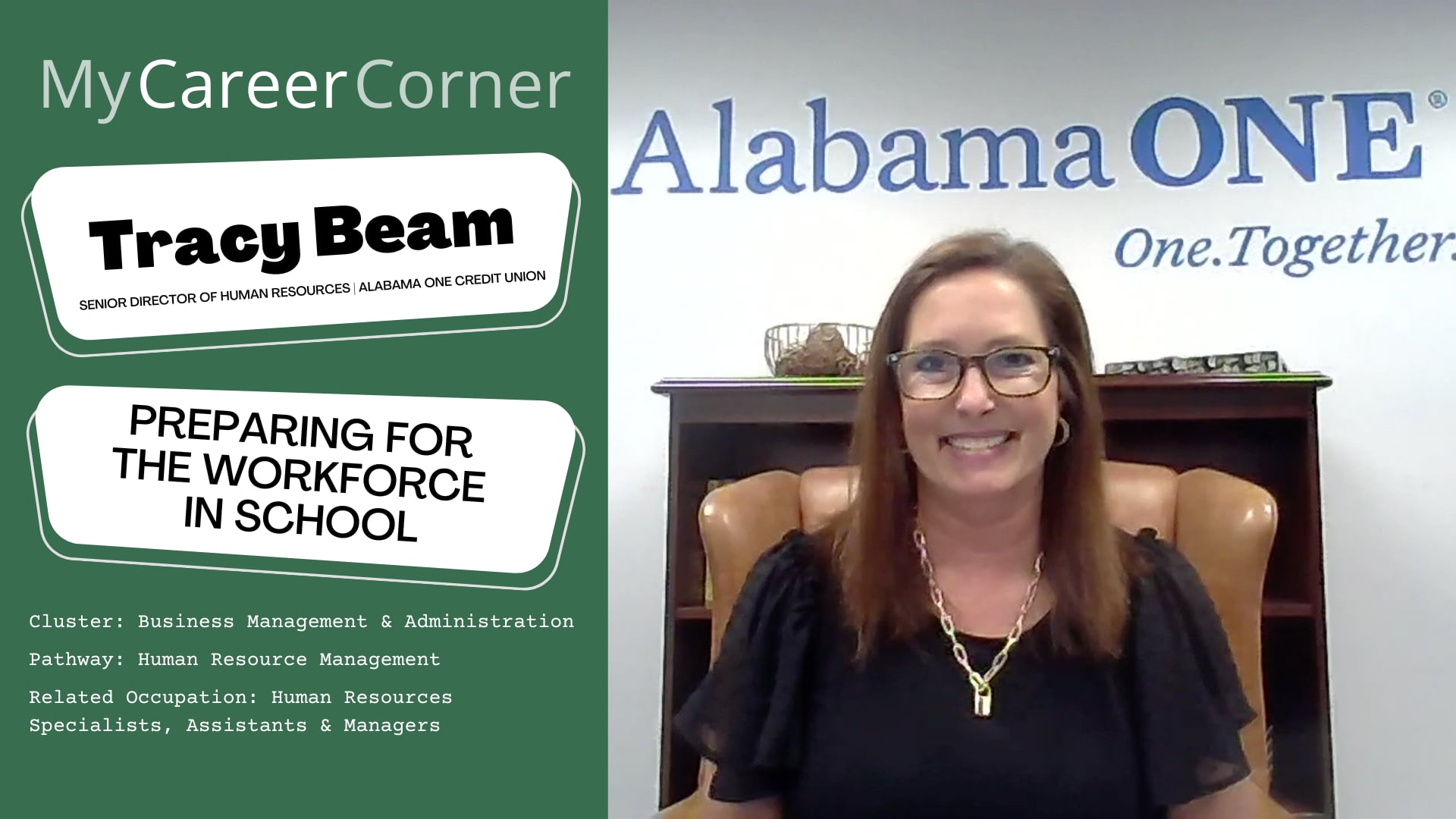
Preparing for the Workforce While in School with Tracy Beam
Tracy Beam discusses the things you can learn from having a job while in school, such as, time management, teamwork, work ethic, and understanding and meeting expectations.
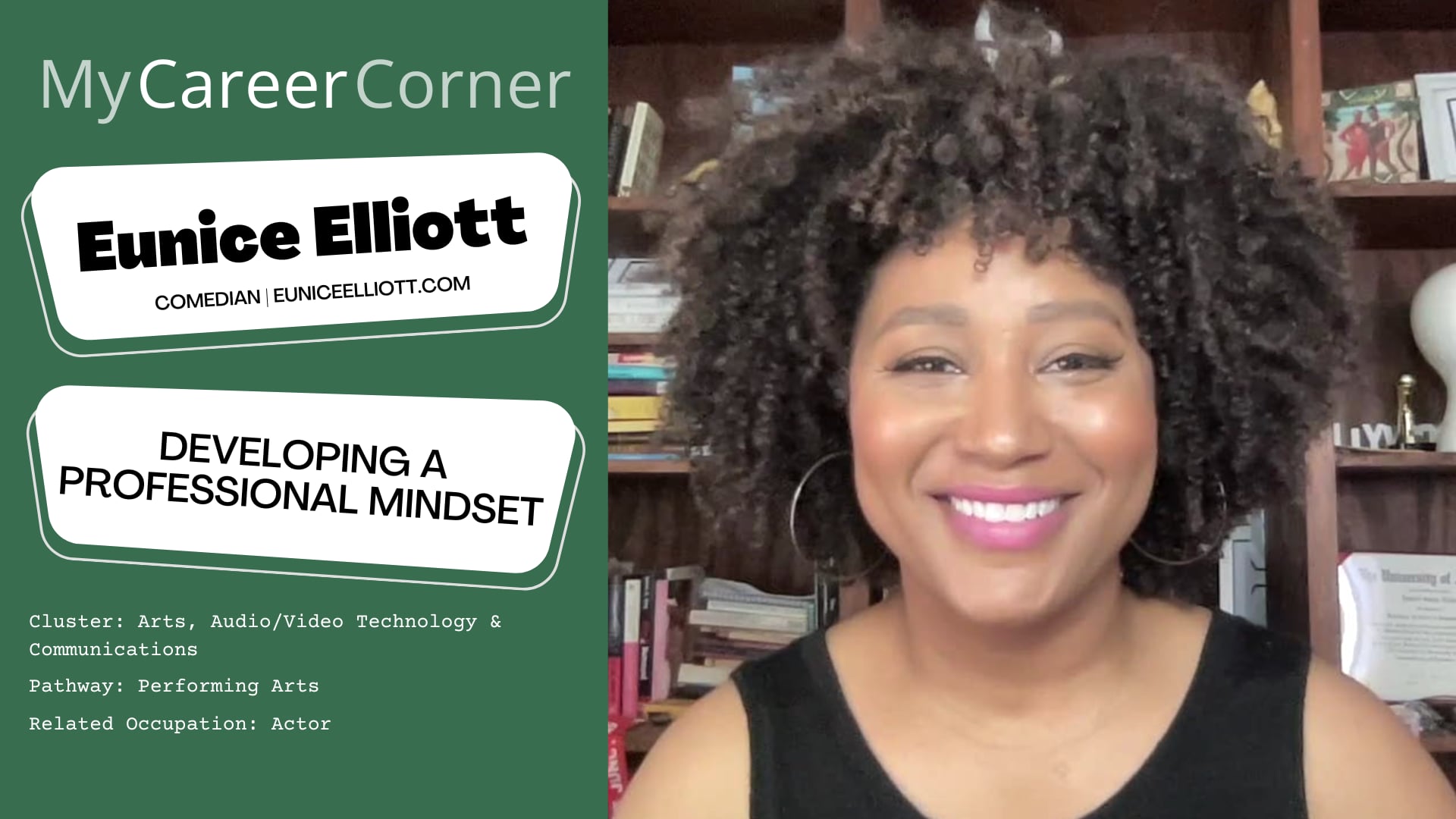
Developing a Professional Mindset with Eunice Elliott
Eunice Elliott discusses the importance of developing good habits, being professional and responsible, doing the work, showing up on time, and forming relationships with colleagues.
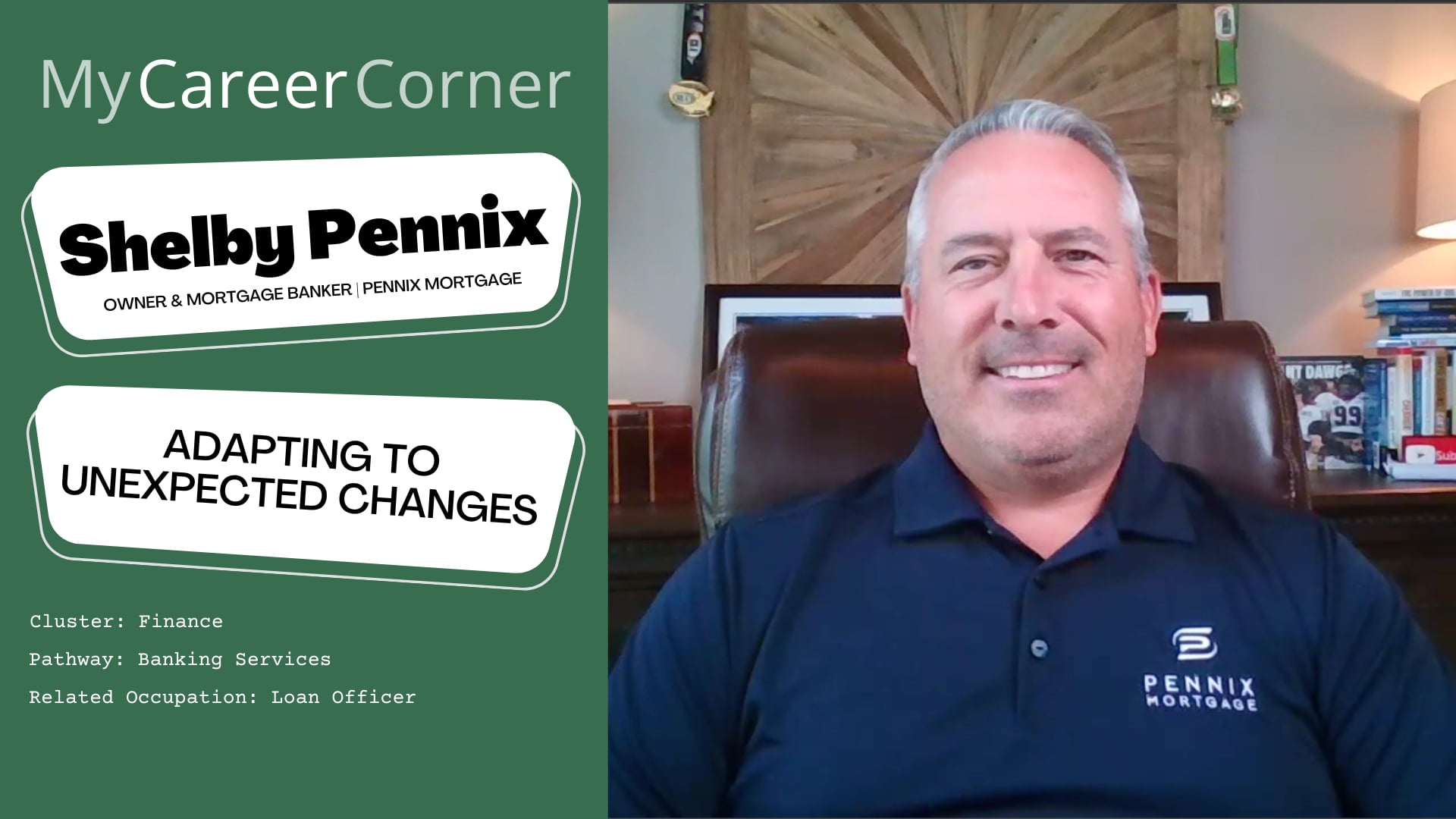
Adapting to Unexpected Changes with Shelby Pennix
Shelby Pennix recalls the stress that came from personal and economic setbacks and how he adapted to deal with those challenges and save his company.
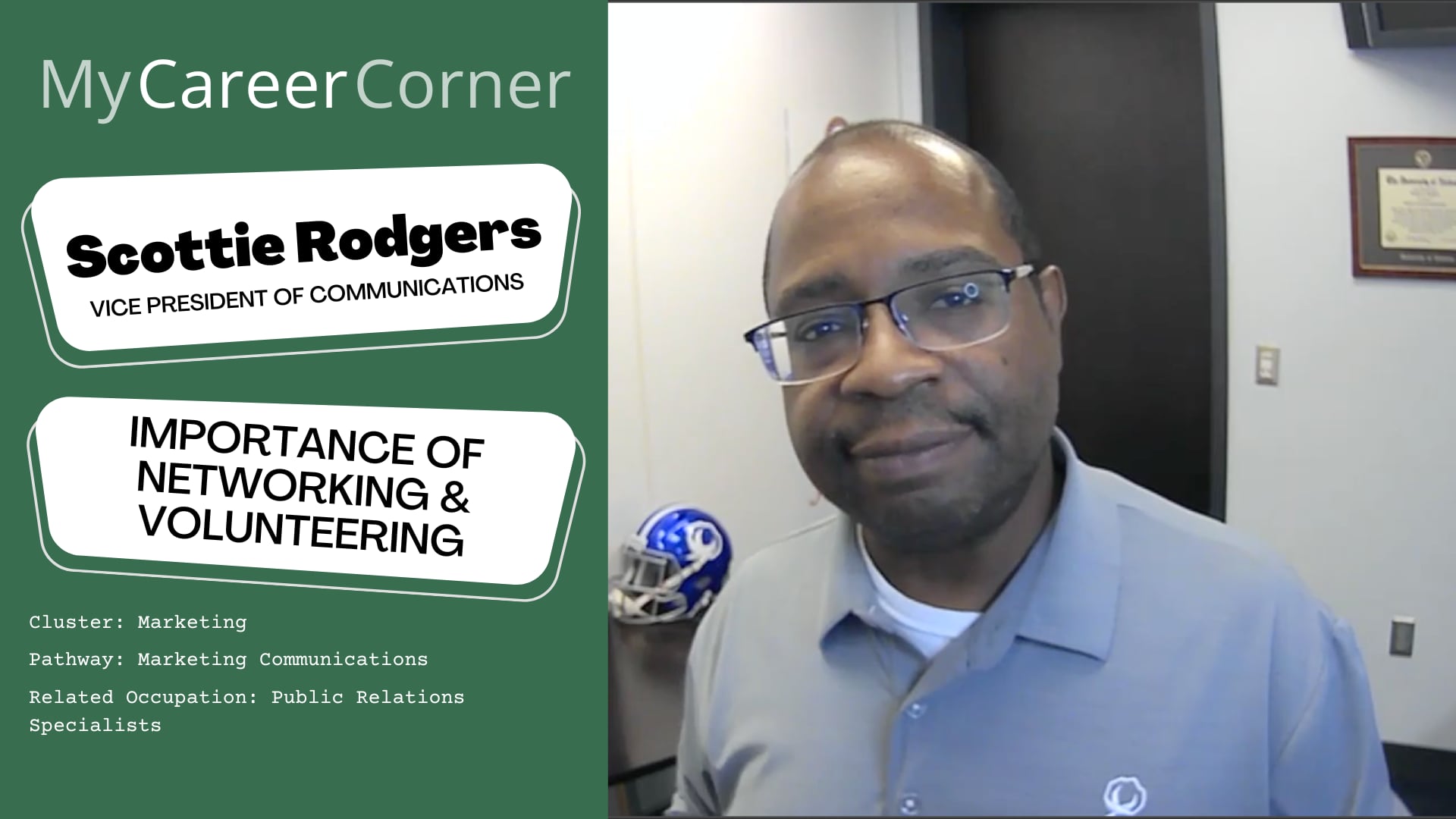
Importance of Networking and Volunteering with Scottie Rodgers
Scottie Rodgers talks about how networking and volunteering from his early college days until today has led to a successful career and lifelong friendships.
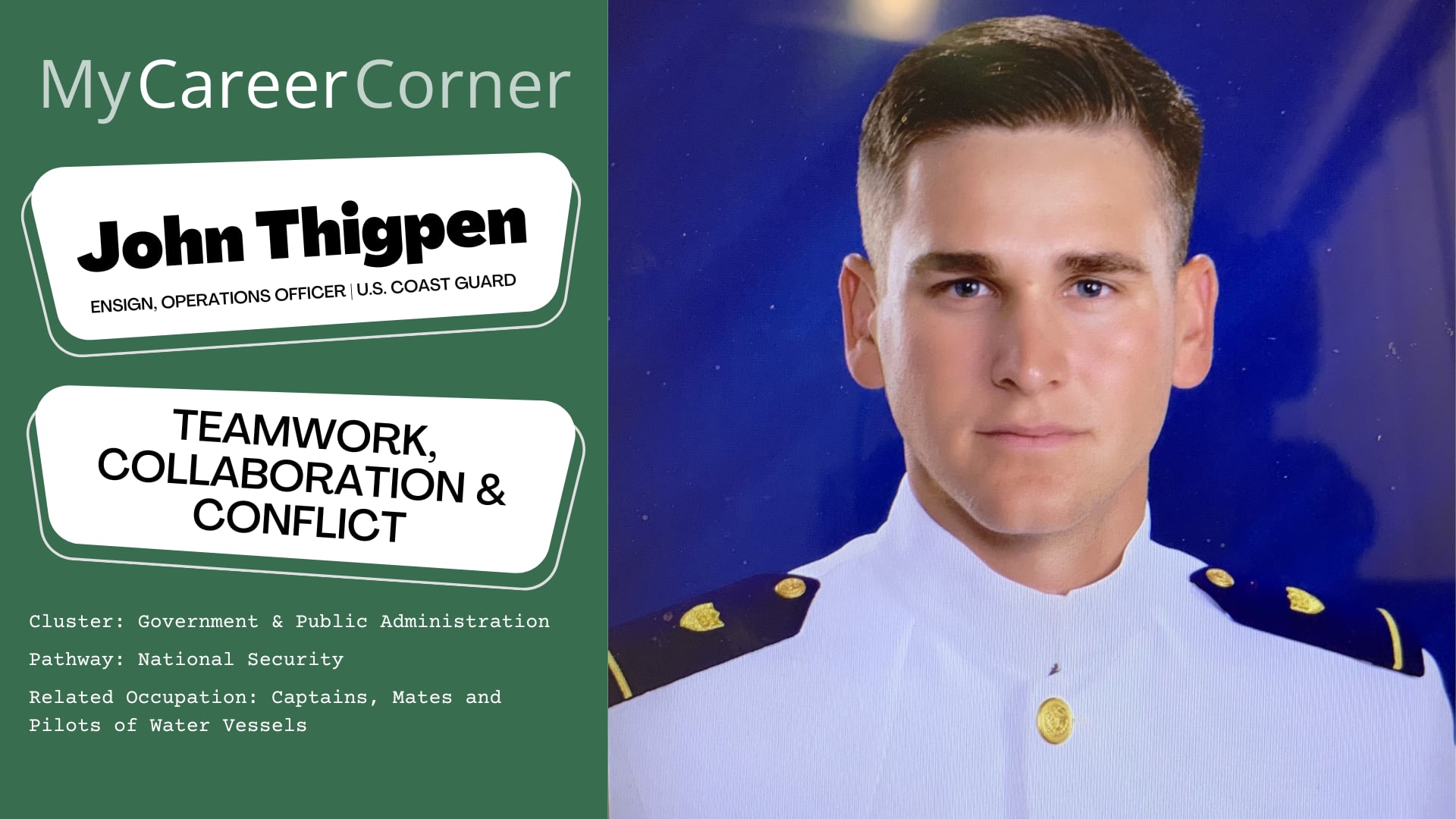
Teamwork, Collaboration and Conflict with John Thigpen
John Thigpen shares how participating in sports prepared him for military service. He also discusses the most important skills that he has learned in serving in the US Coast Guard.
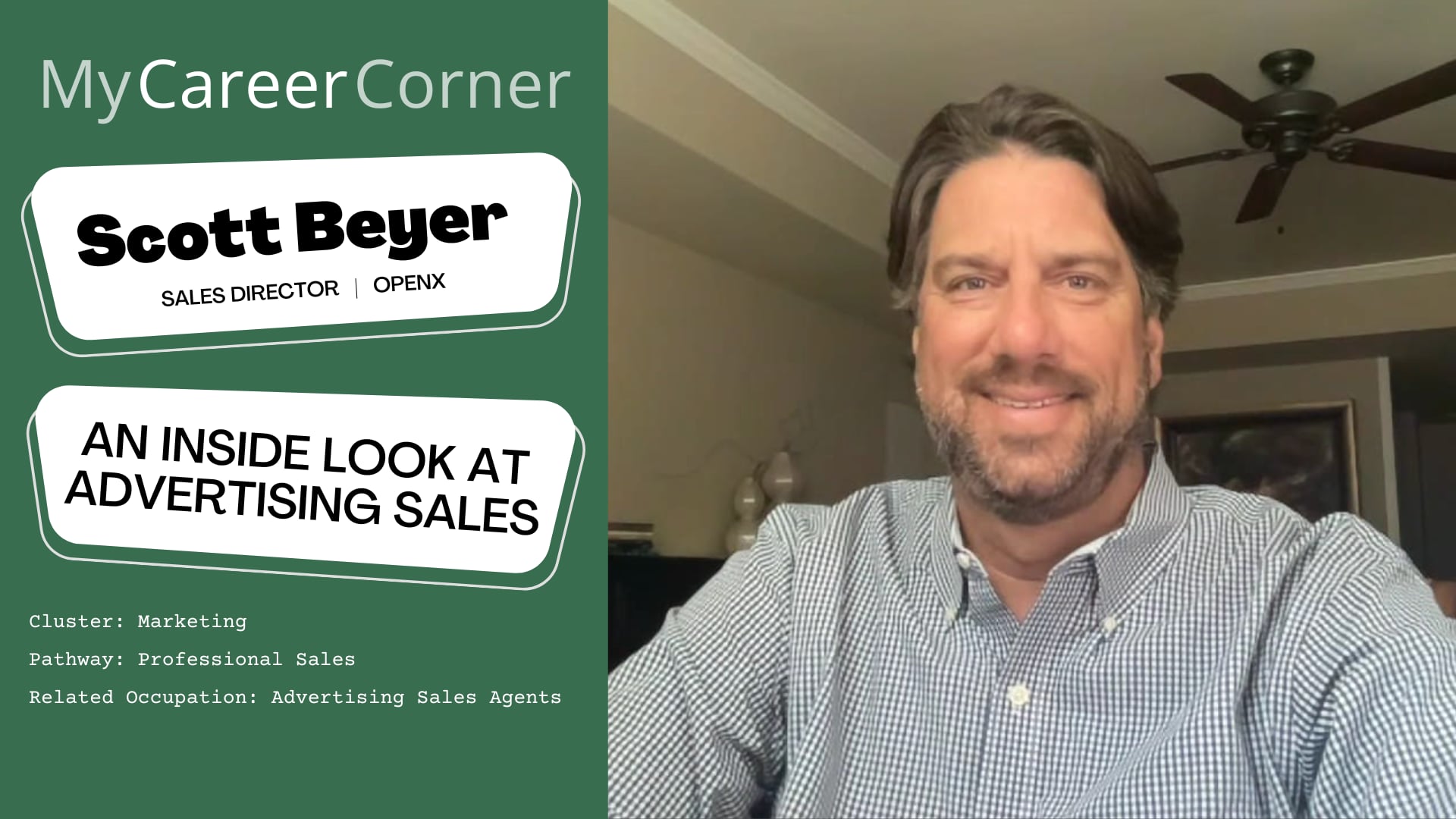
An Inside Look at Advertising Sales with Scott Beyer
Scott Beyer describes his role and the responsibilities he as a Sales Director in the Display Media Advertising space.
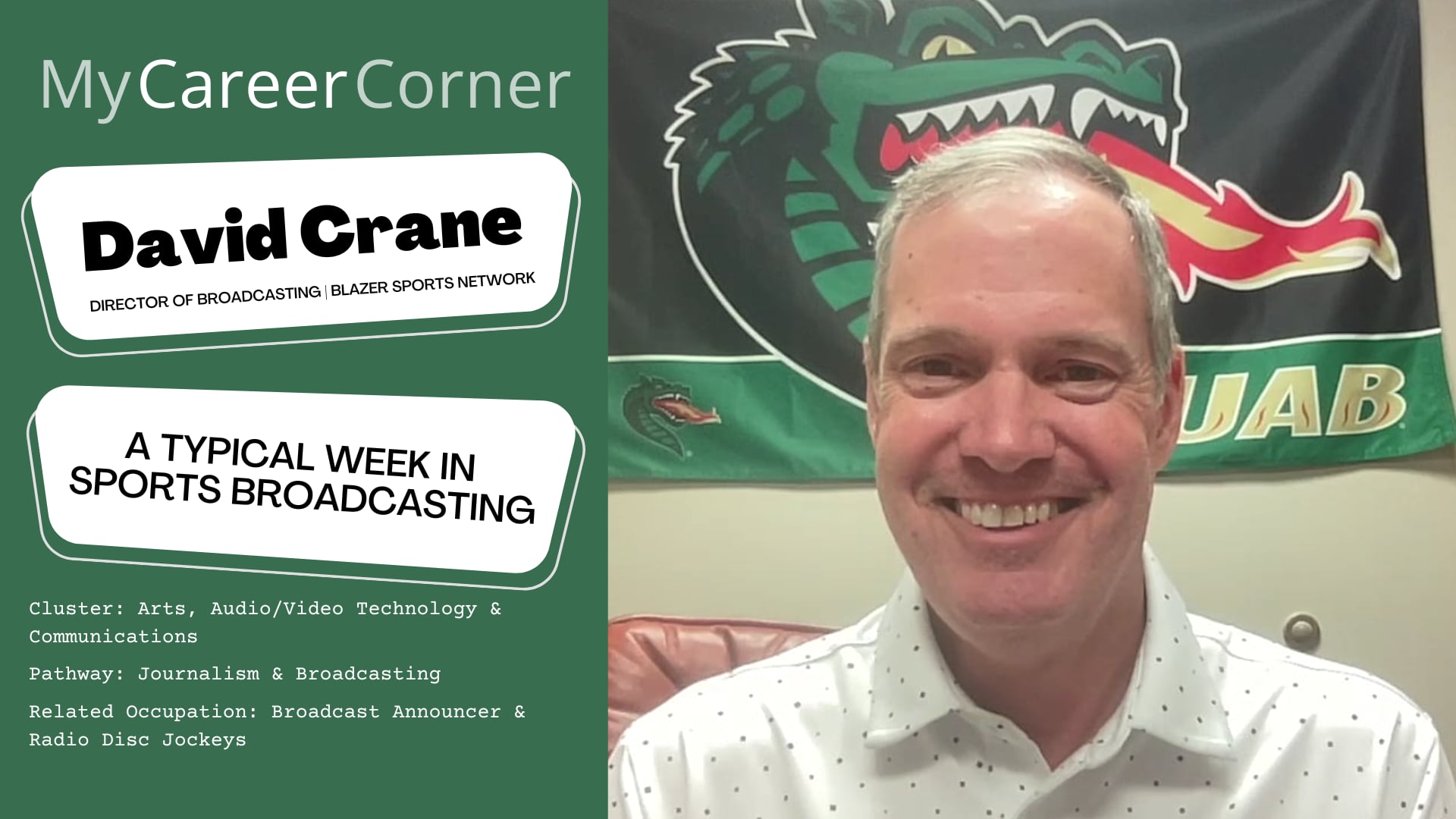
A Typical Week in Sports Broadcasting with David Crane
David Crane details the importance of preparation and organization as well as the steps he takes to get ready to broadcast a live college football game on radio.
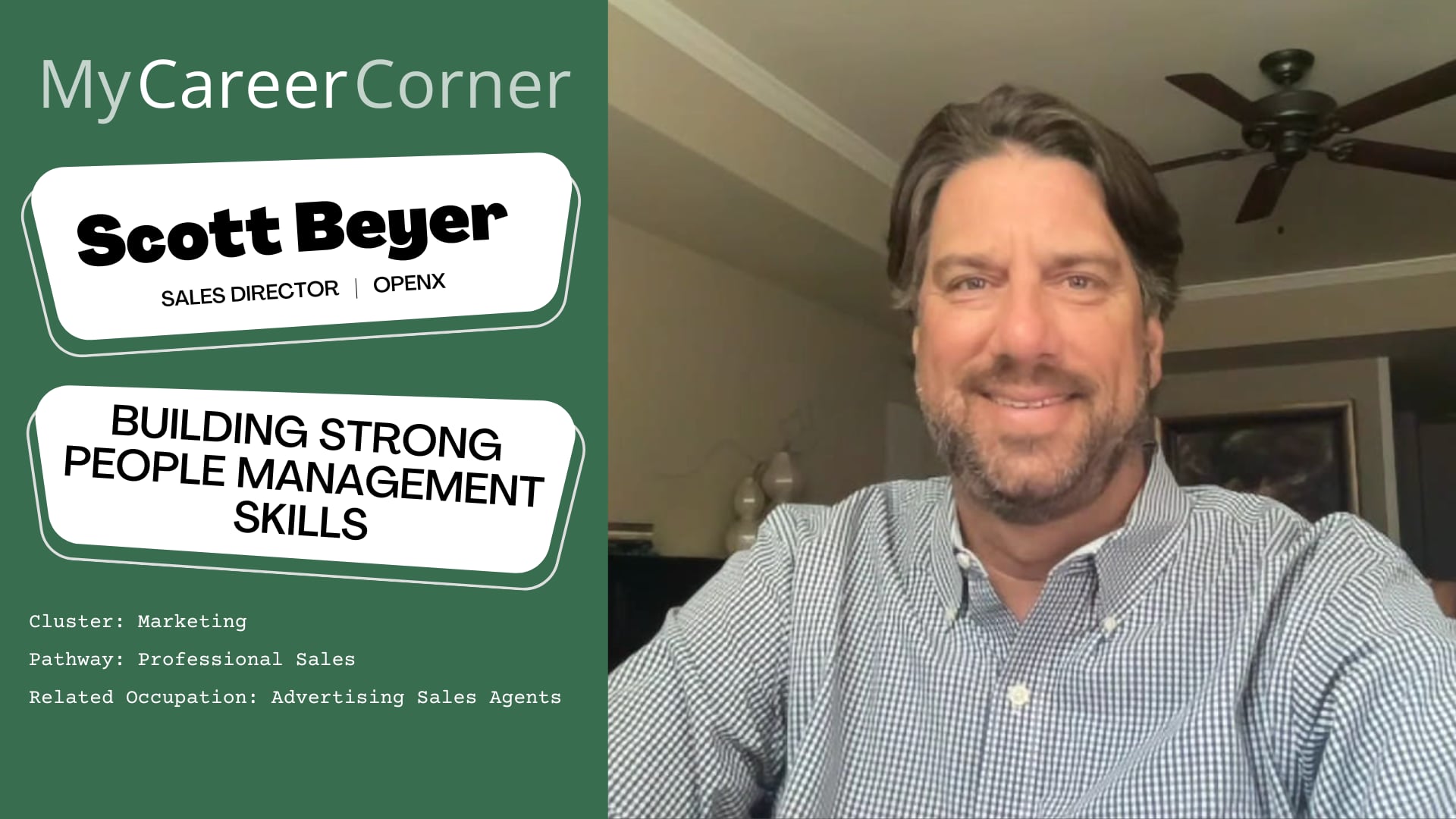
Building Strong People Management Skills with Scott Beyer
Scott Beyer talks about managing people including the value of empathy and the importance of helping employees find their strengths.
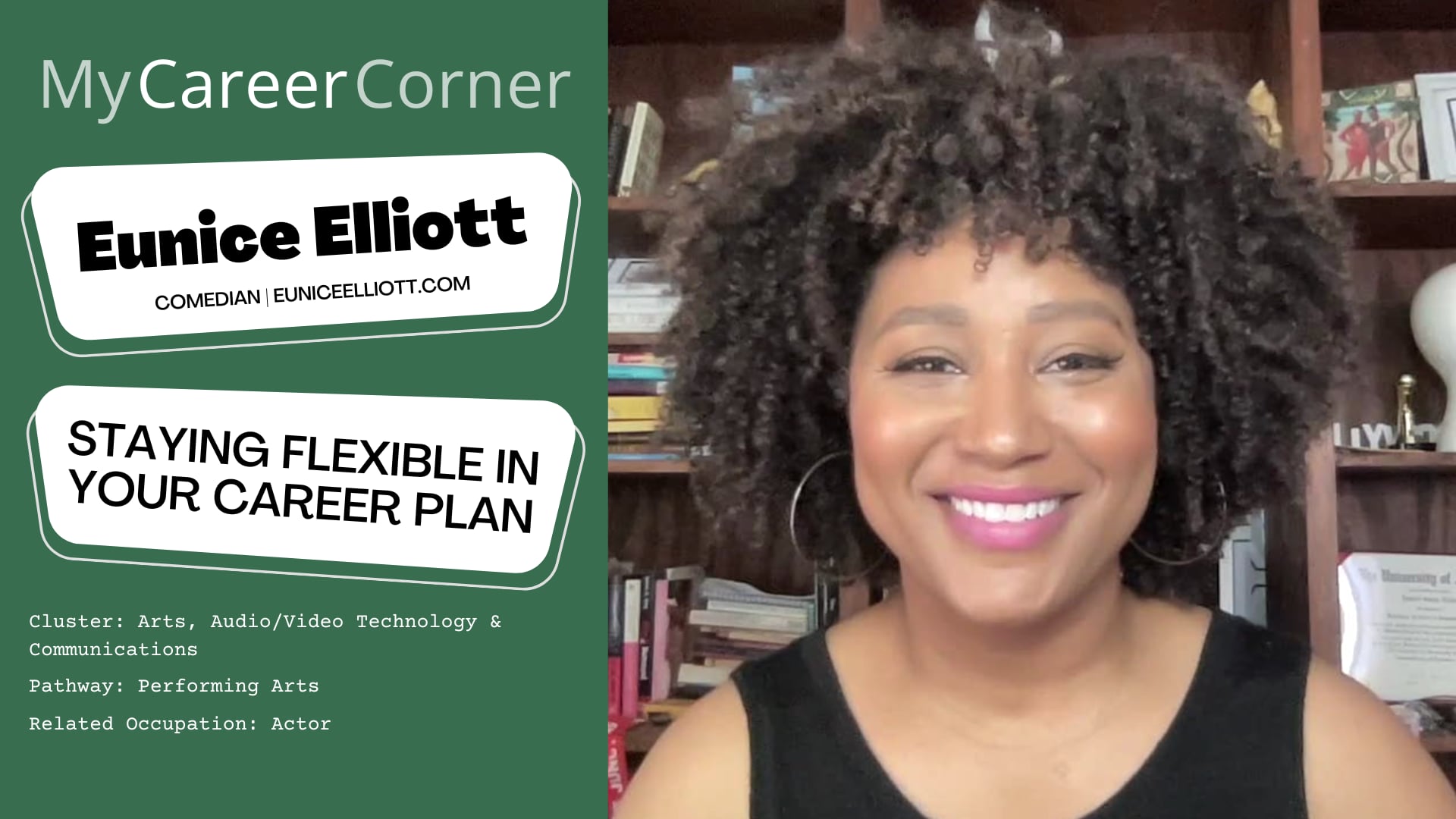
Staying Flexible in Your Career Plan with Eunice Elliott
Eunice Elliott speaks about changing careers multiple times and the interesting stops she's made along the way. She also shares a funny story about the time she gave a six-month notice.
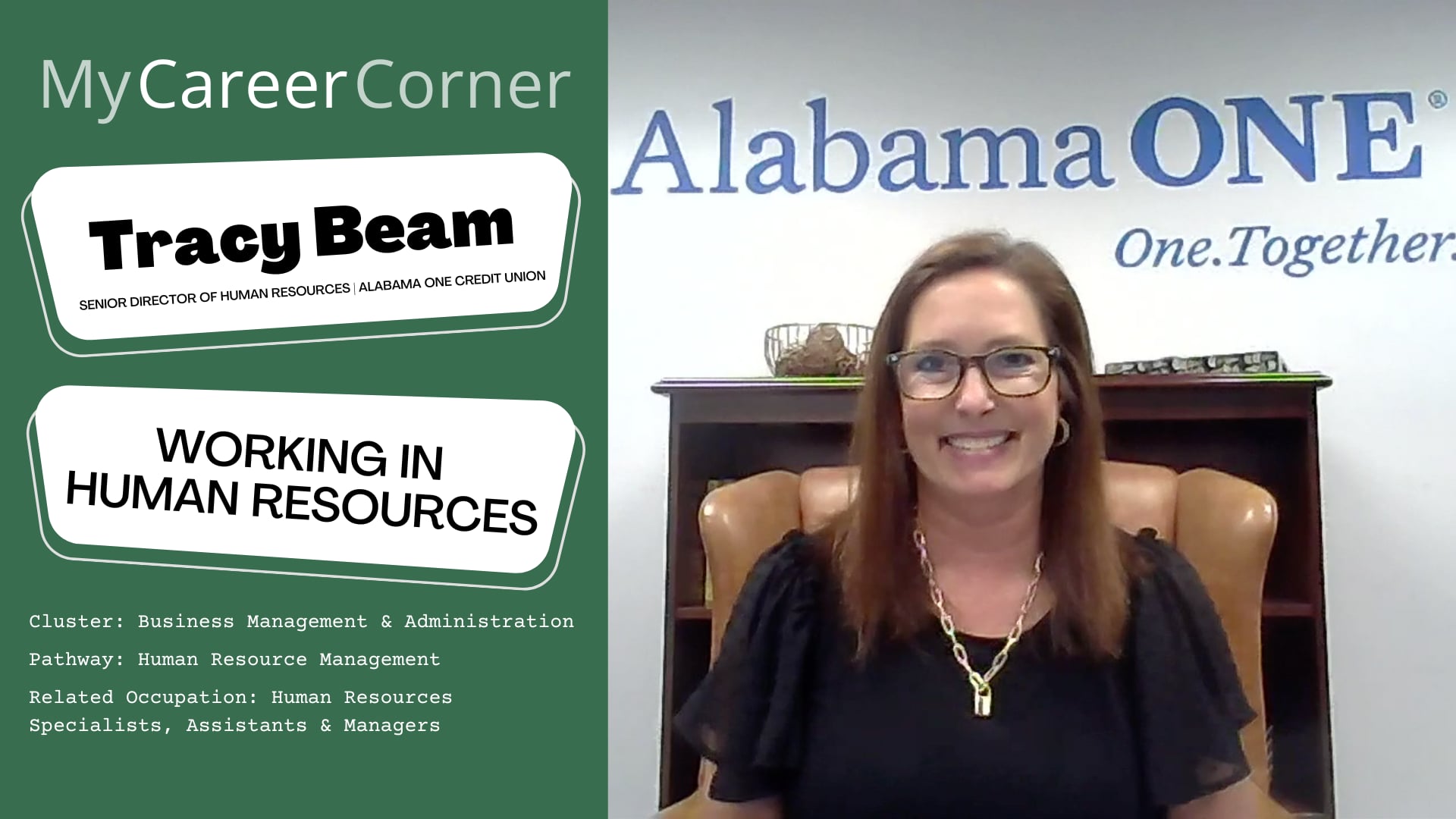
Working in Human Resources with Tracy Beam
Tracy Beam talks about her role and responsibilities in Human Resources and her unique approach to developing skills in order to be more effective in her job.
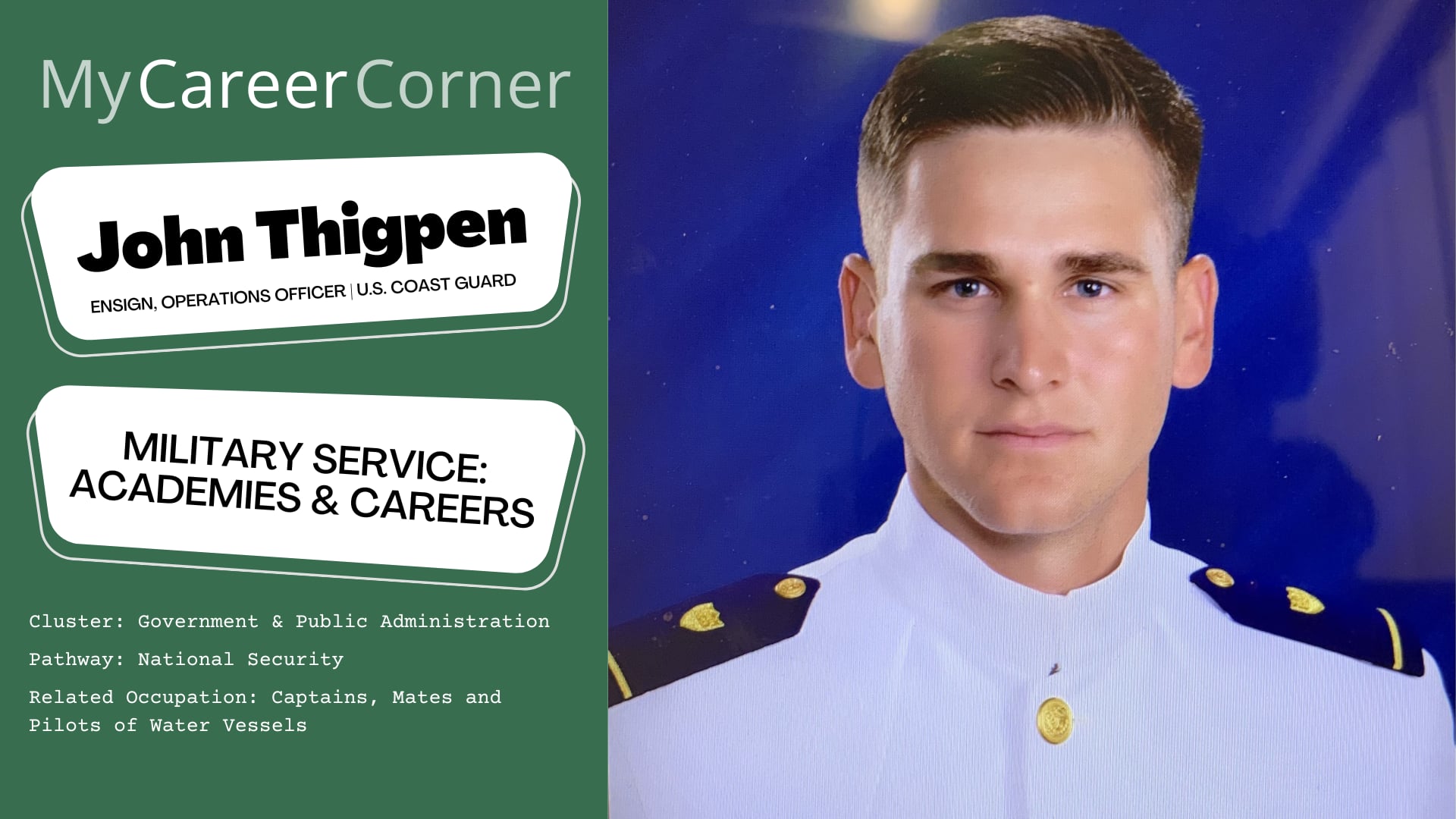
Military Service: Academies & Careers with John Thigpen
John Thigpen discusses attending college at the US Coast Guard Academy and the skills and experiences that he‘s adding to his resume while serving in the US Coast Guard.
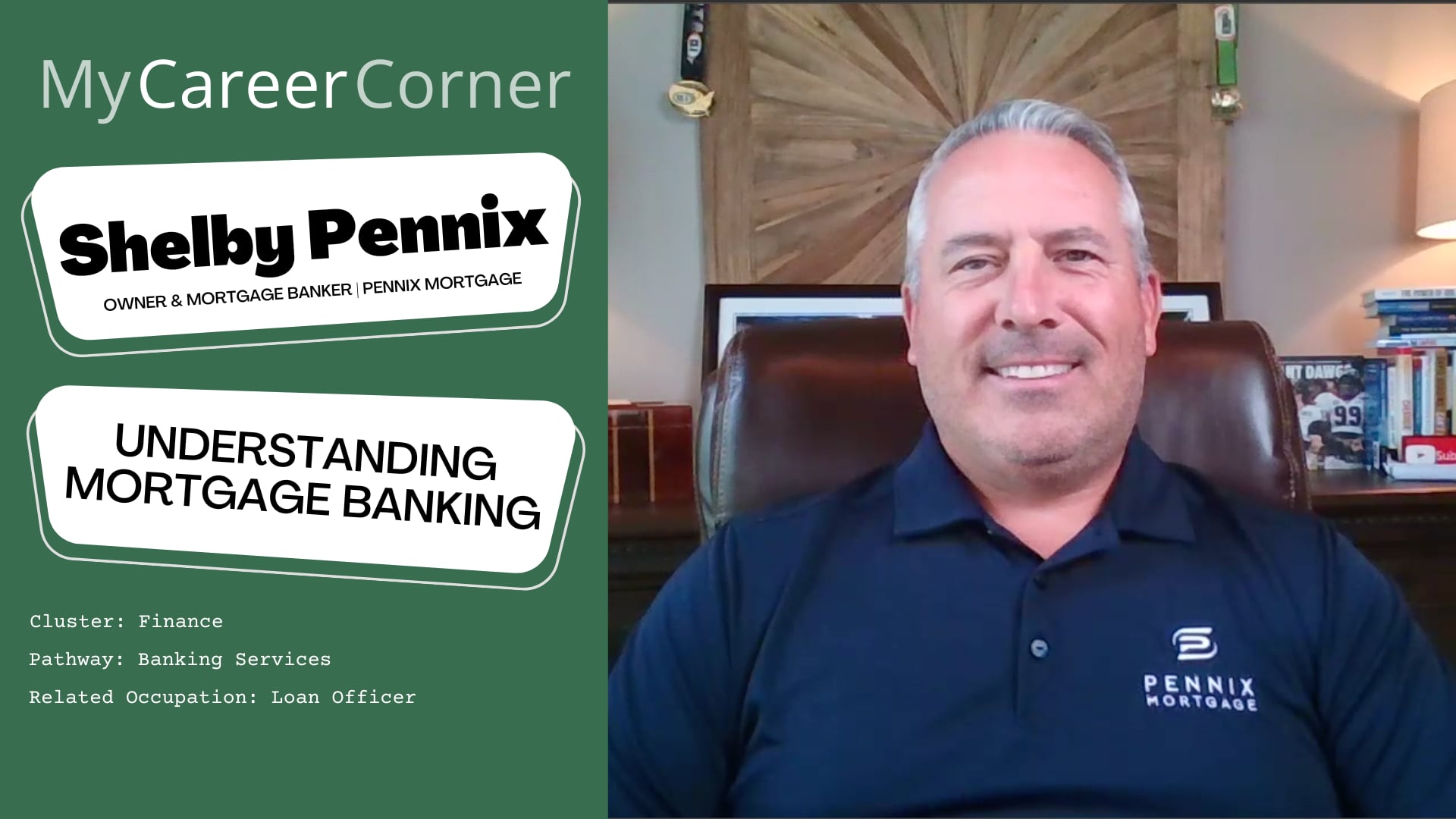
Understanding Mortgage Banking with Shelby Pennix
Shelby Pennix discusses his role and responsibilities as the owner of Pennix Mortgage, include networking, prospecting, qualifying customers for a loan and the customer service side of the business.
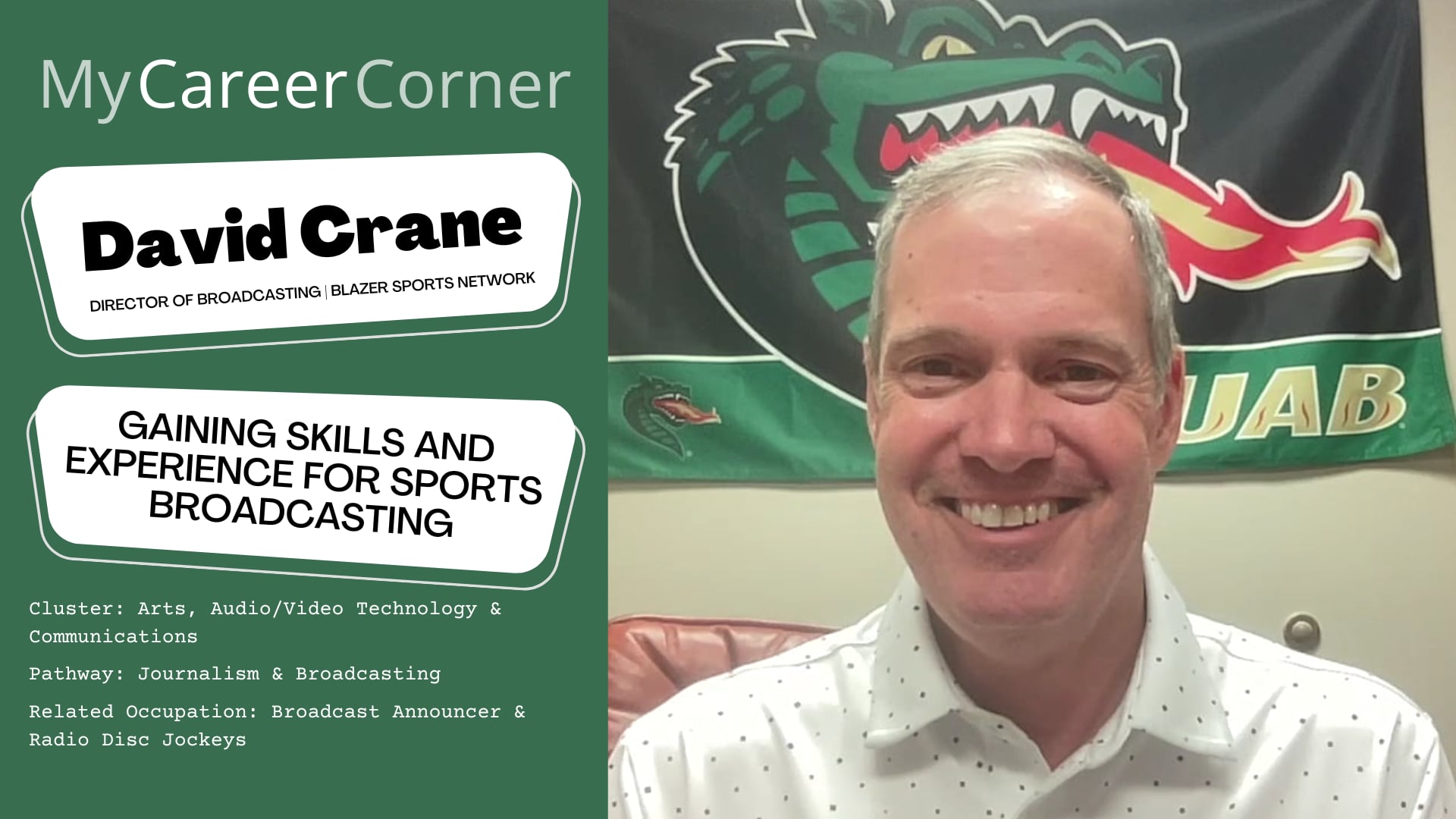
Gaining Skills and Experience for Sports Broadcasting with David Crane
David Crane discusses the importance of his college internship and talks about the specific skills that students can focus on now as they consider a career in sports broadcasting.
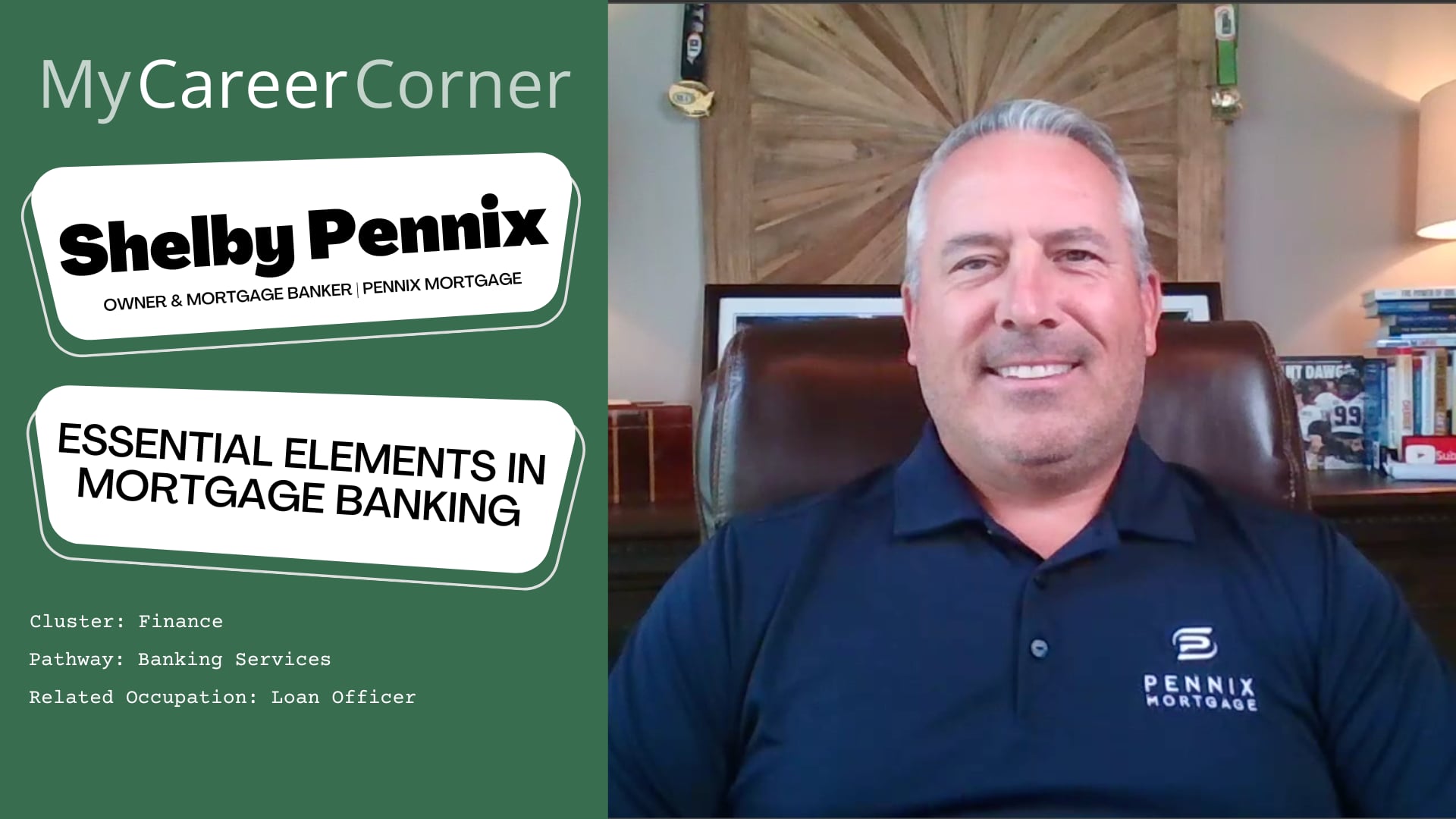
Essential Elements in Mortgage Banking with Shelby Pennix
Shelby Pennix gives advice for someone considering a career in mortgage banking, including the importance of work ethic, good financial planning, and building trust and loyalty to obtain repeat customers.
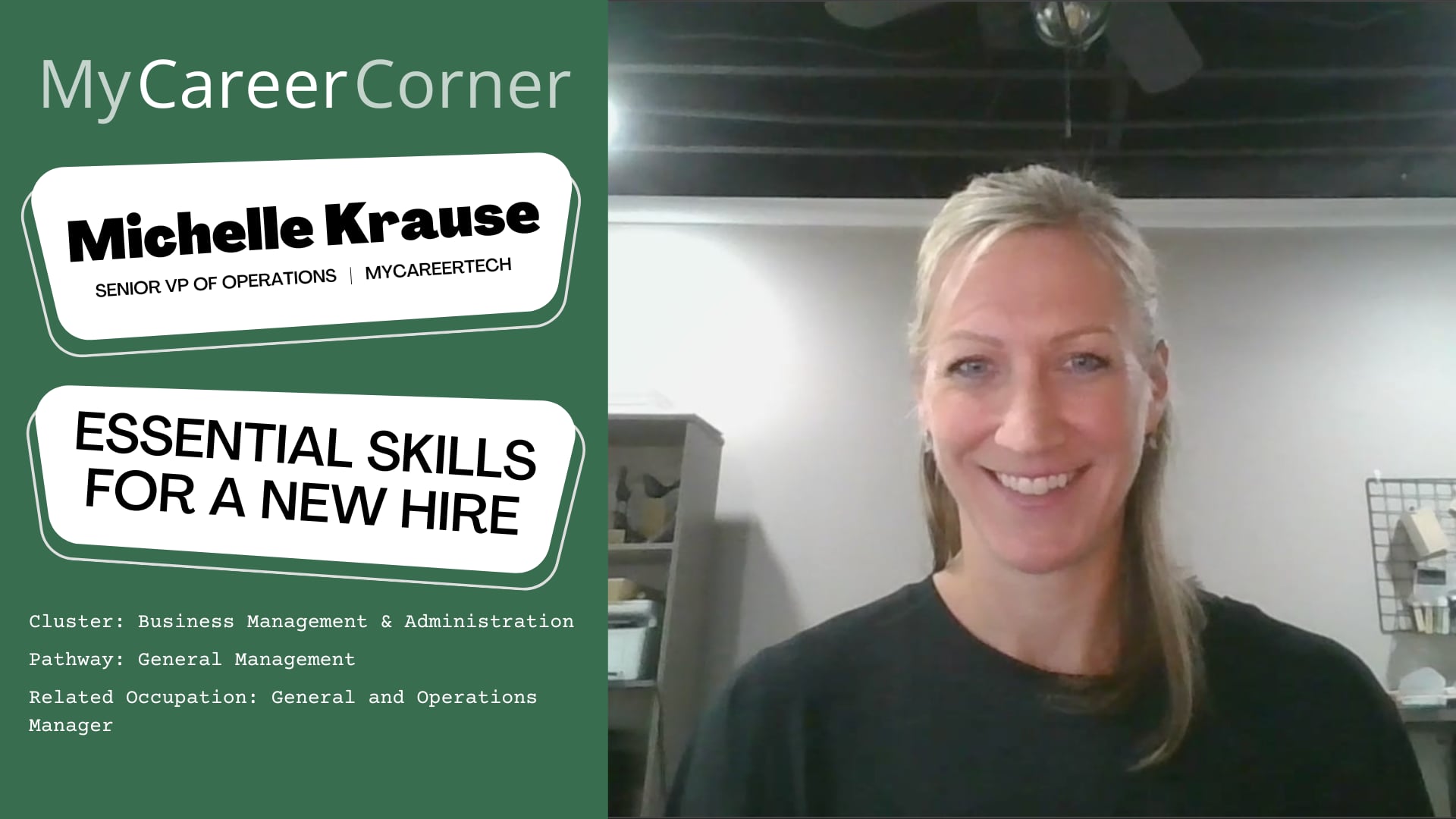
Essential Skills for a New Hire with Michelle Krause
Michelle Krause talks about the various skills that she looks for when interviewing new candidates for a job.
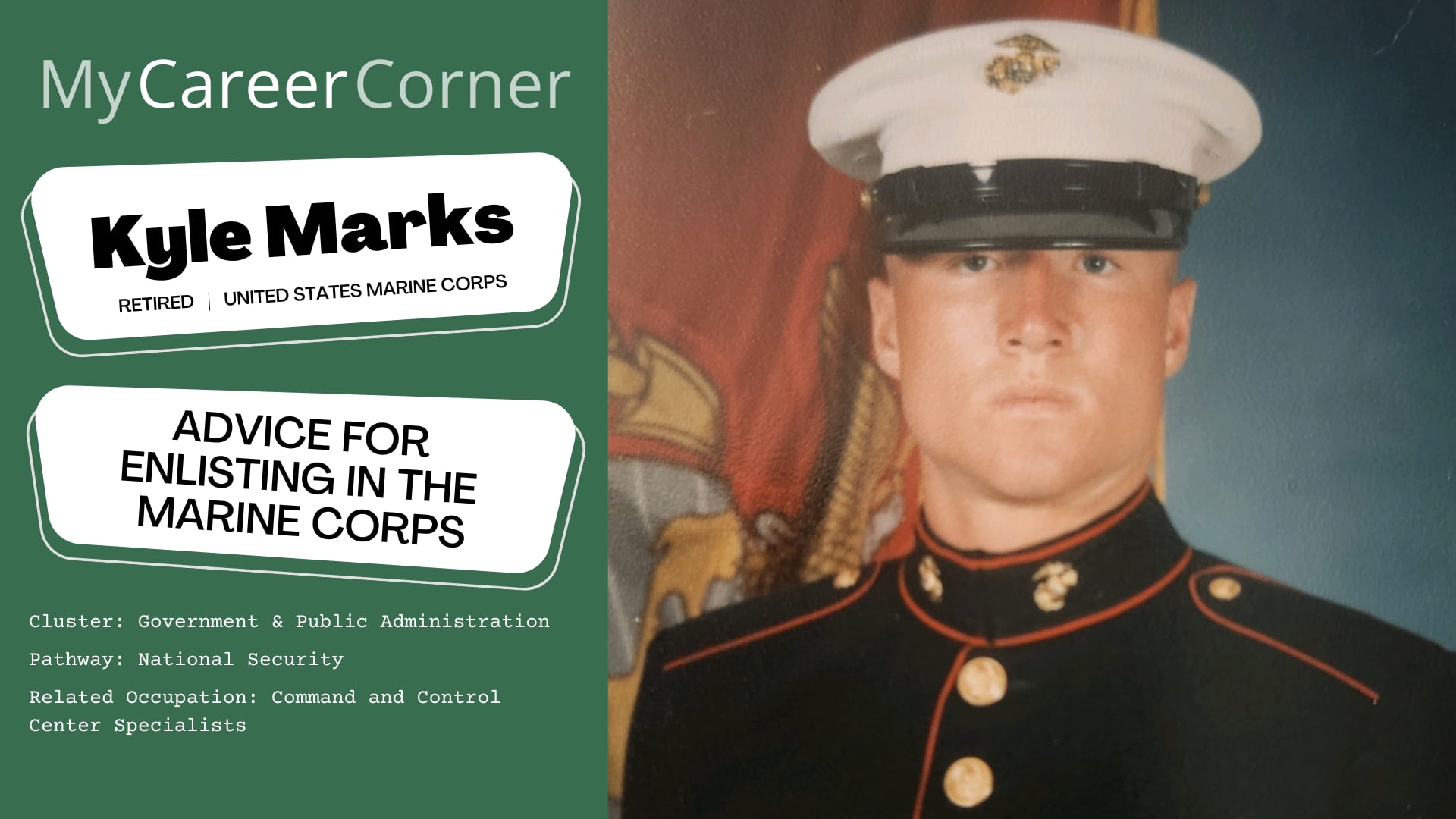
Advice for Enlisting in the Marine Corps with Kyle Marks
Kyle Marks discusses the types of recruits that the US Marine Corps looks for. He also shares tips on how to be successful in boot camp, including strong work ethic, a tough mindset, and a "Don't Quit" attitude.
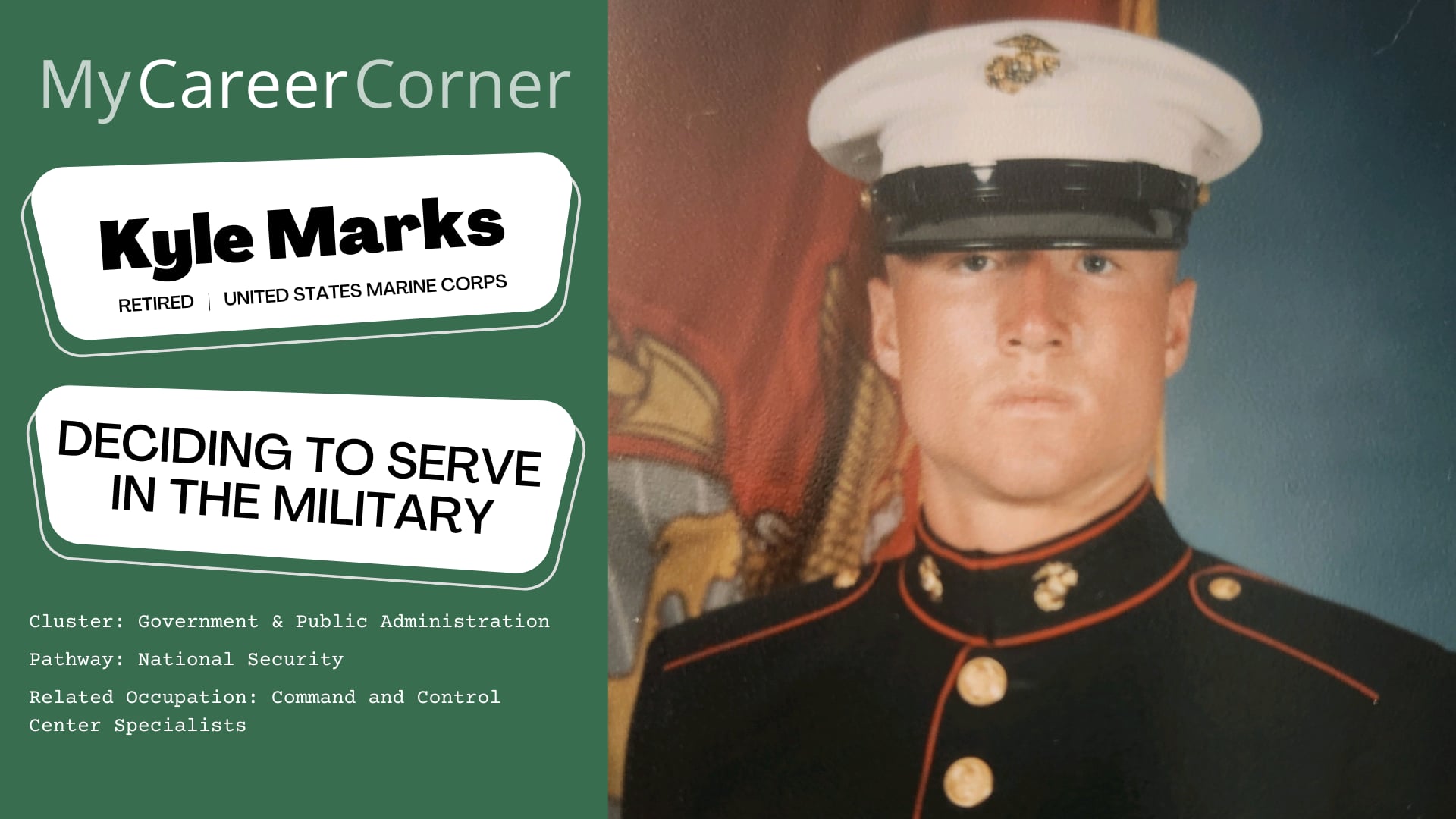
Deciding to Serve in the Military with Kyle Marks
Kyle Marks shares his experience in joining the US Marine Corps and his decision to make it a 22 year career. He talks about patriotism, serving the country and the value of being a part of something bigger than yourself.
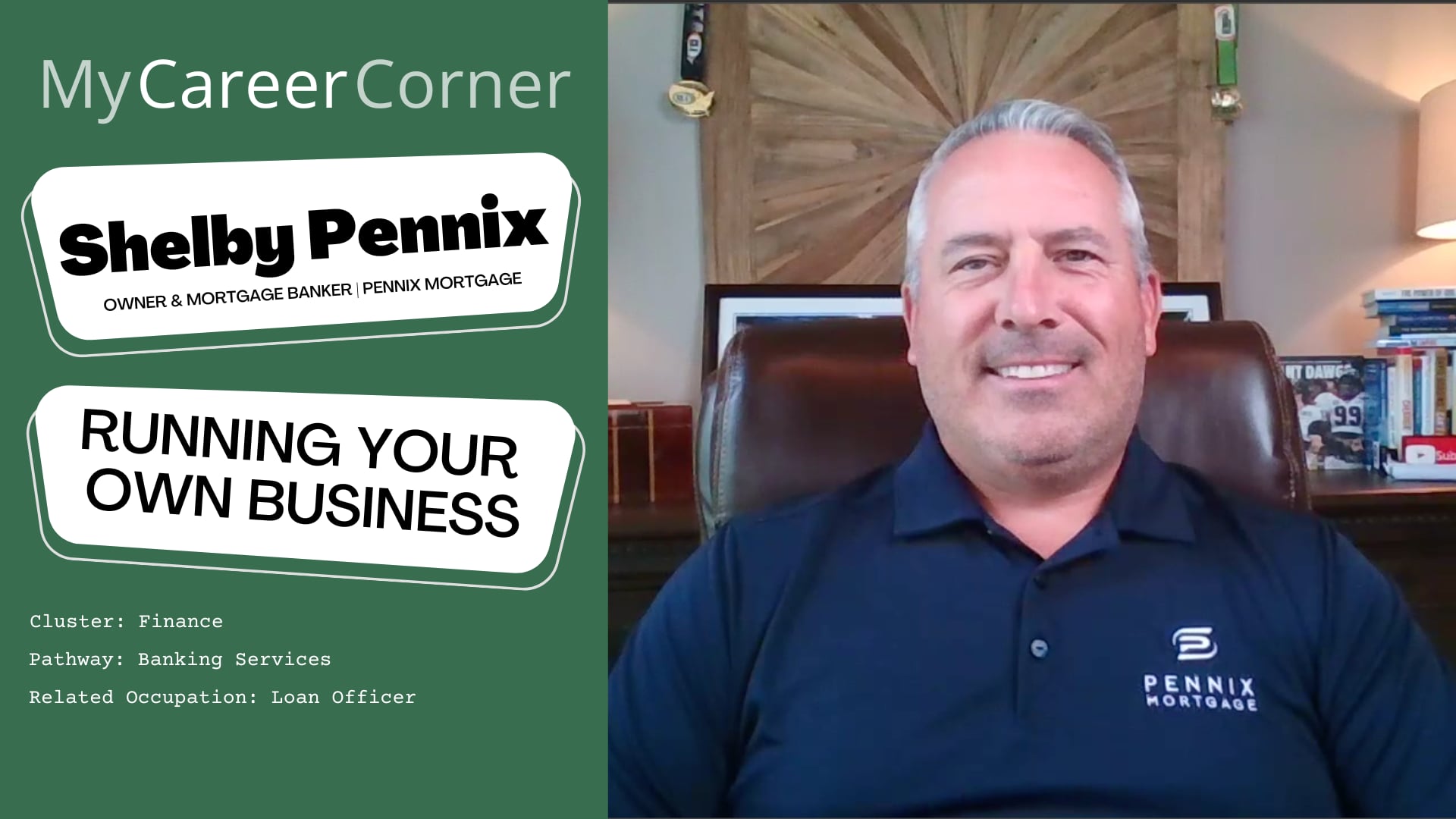
Running Your Own Business with Shelby Pennix
Shelby Pennix talks about his career as an entrepreneur in mortgage banking, including the skills necessary to run his business such as discipline, time management, and sacrifice.
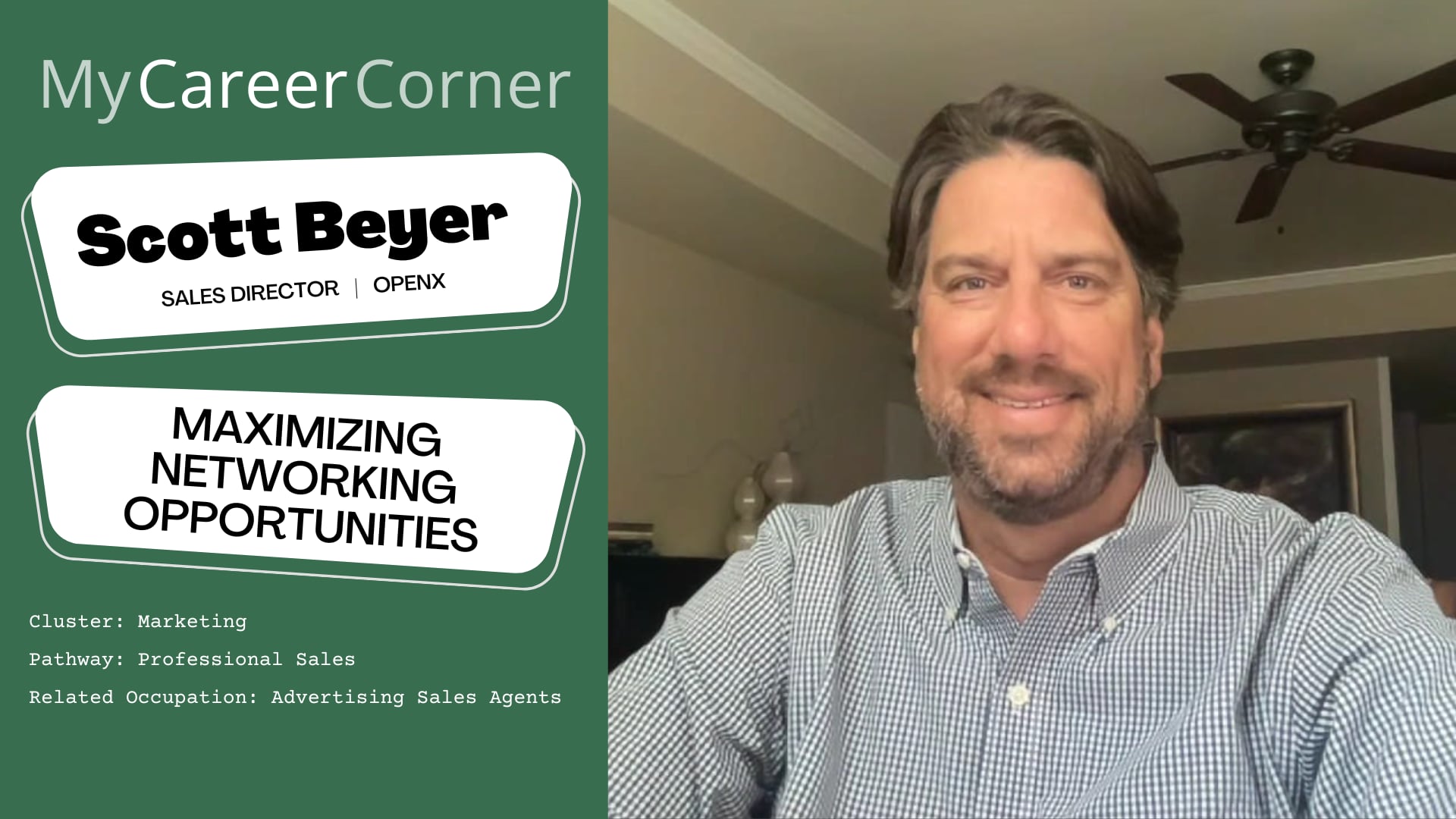
Maximizing Networking Opportunities with Scott Beyer
Scott Beyer talks about the benefits of Professional Networking, including adding value to conversations by asking questions to build trust and respect.
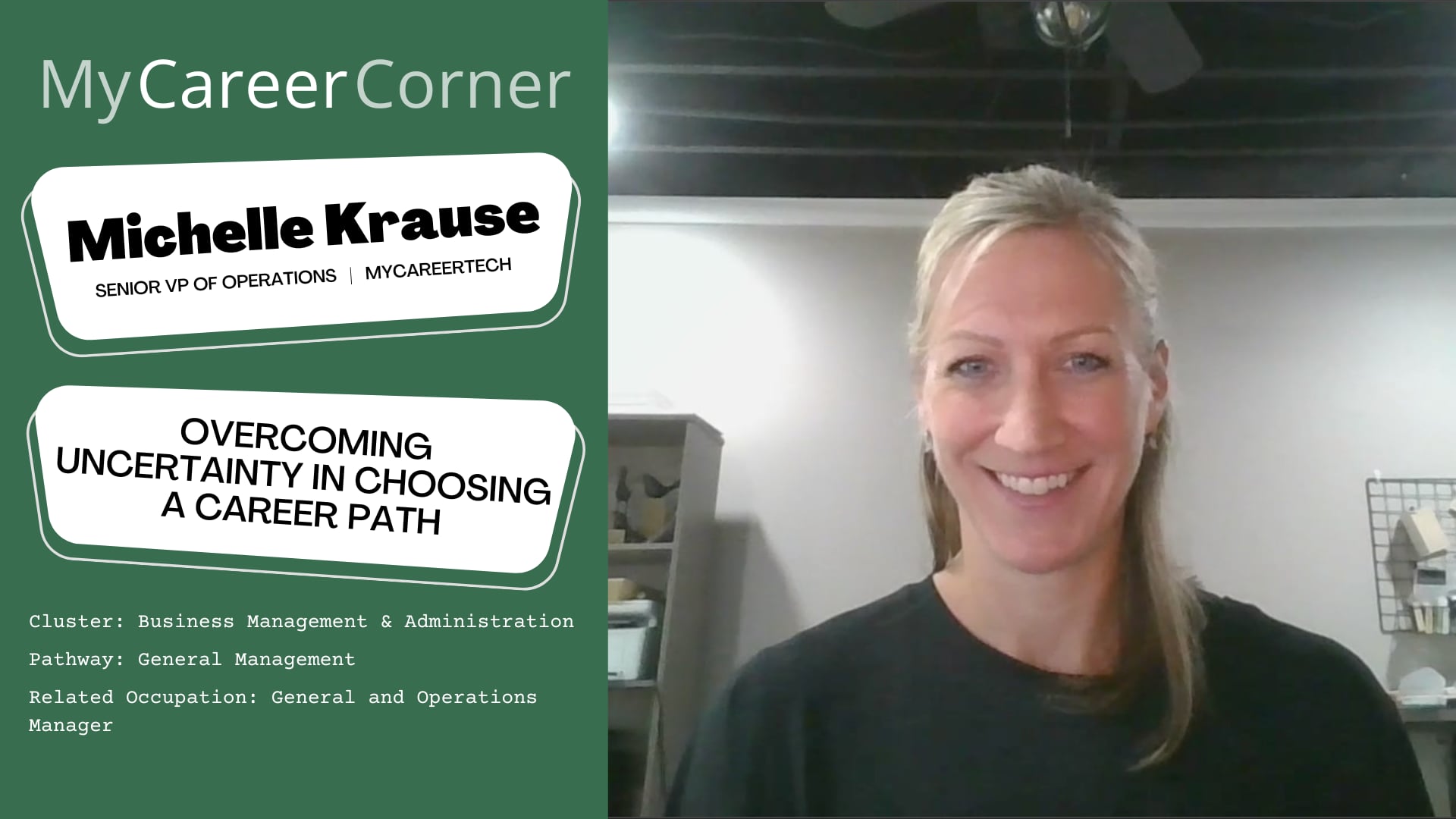
Overcoming Uncertainty in Choosing a Career Path with Michelle Krause
Michelle Krause gives advice to those undecided about what career path they’d like to pursue.
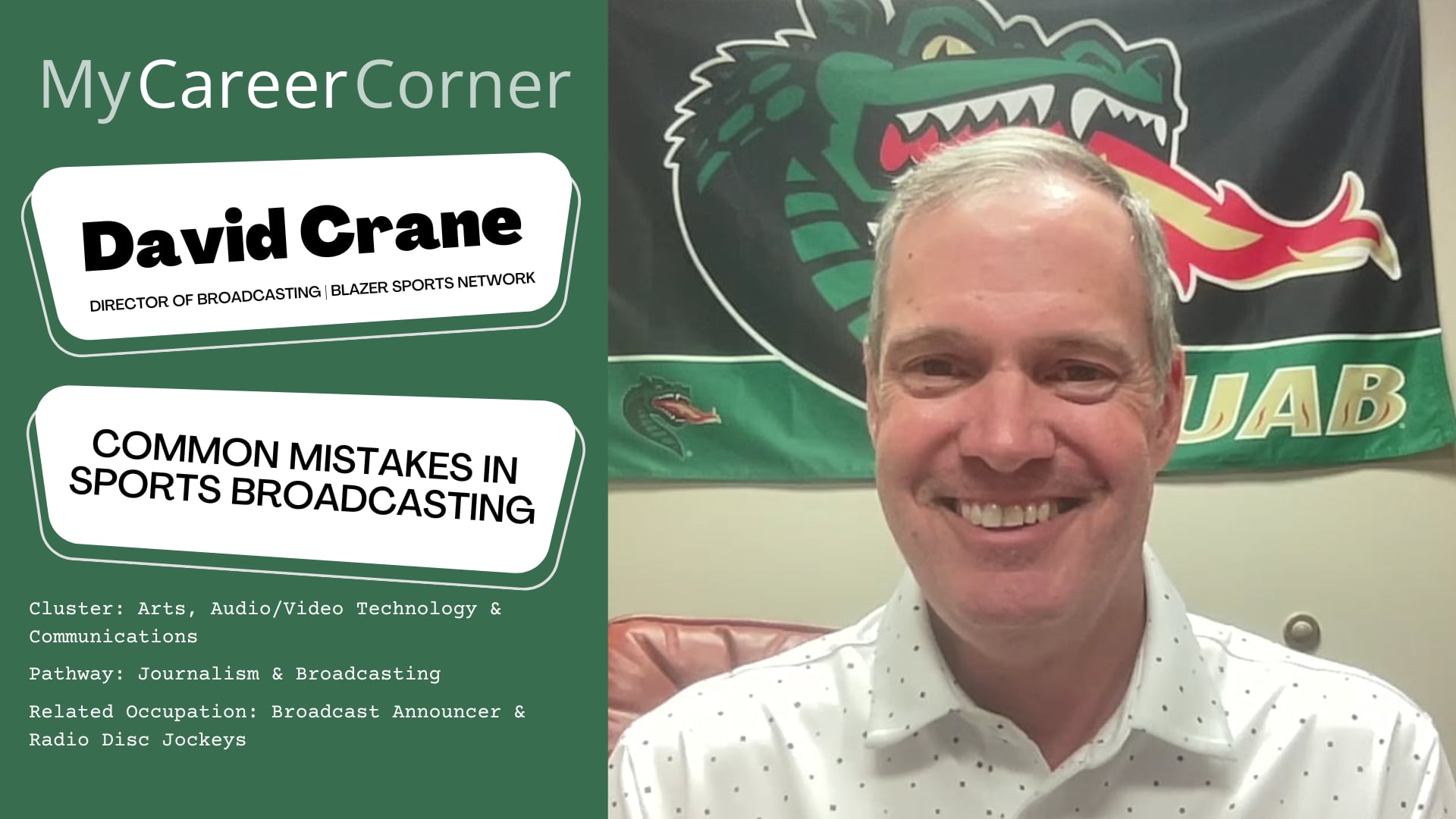
Common Mistakes in Sports Broadcasting with David Crane
David Crane discusses taking responsibility when mistakes happen and the importance of being aware of possible pitfalls to minimize the risk of future mistakes.
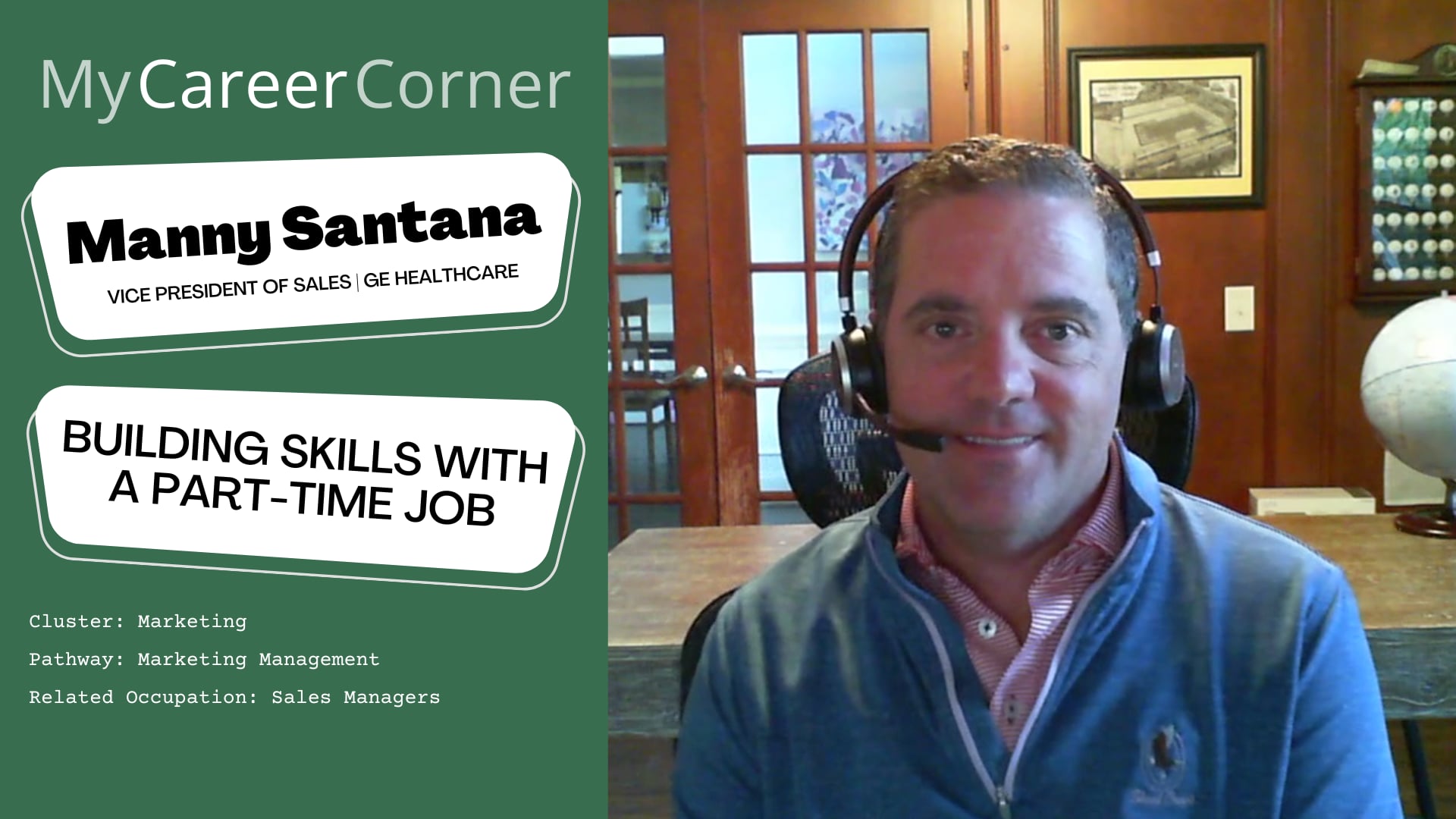
Building Skills with a Part-Time Job with Manny Santana
Manny Santana discusses his early work experiences, such as entry-level jobs and internships, that helped prepare him for his career.
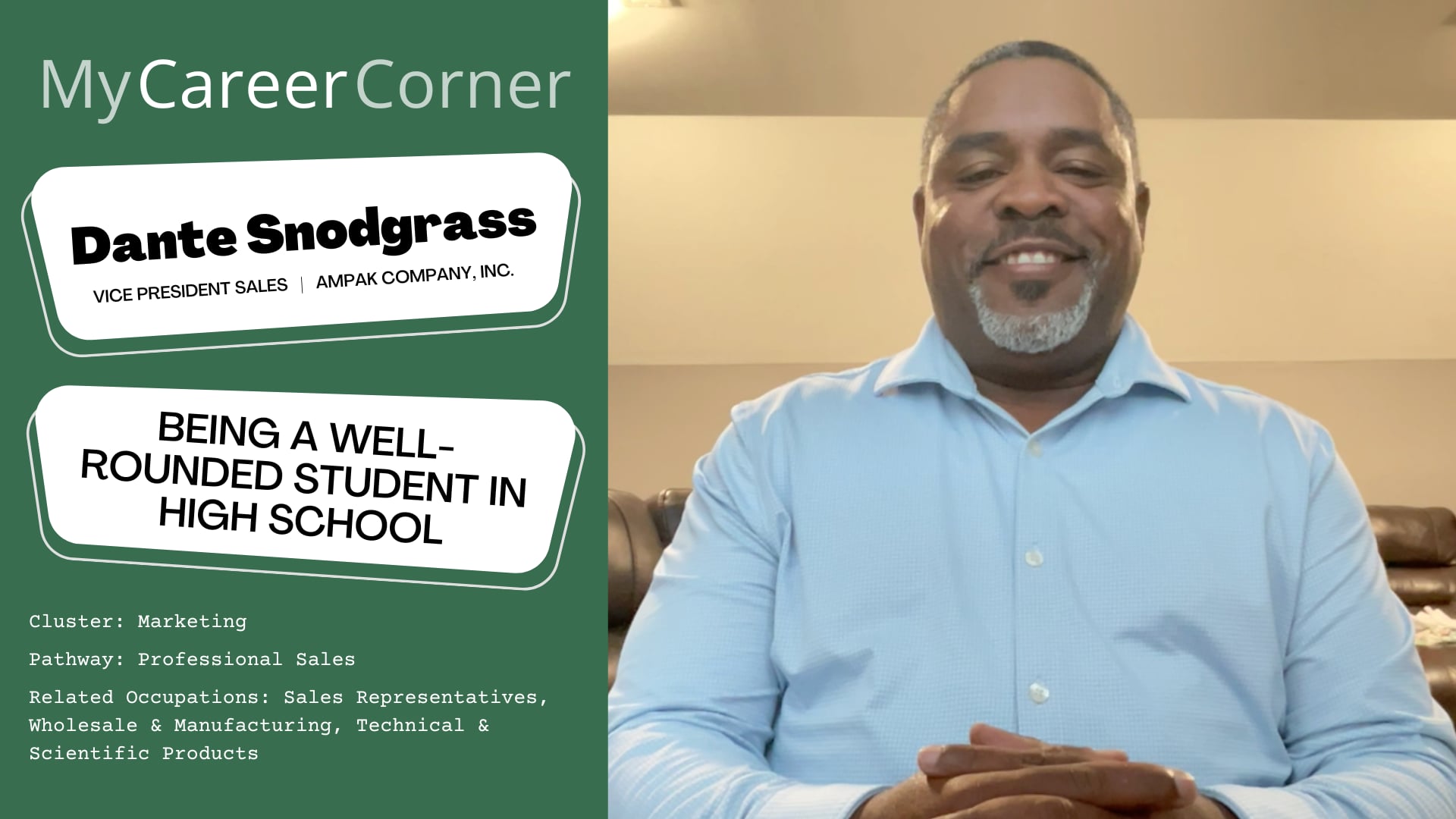
Being a Well-Rounded Student in High School with Dante Snodgrass
Dante Snodgrass talks about the importance of discipline and time management in being successful in high school academics and extracurricular activities.
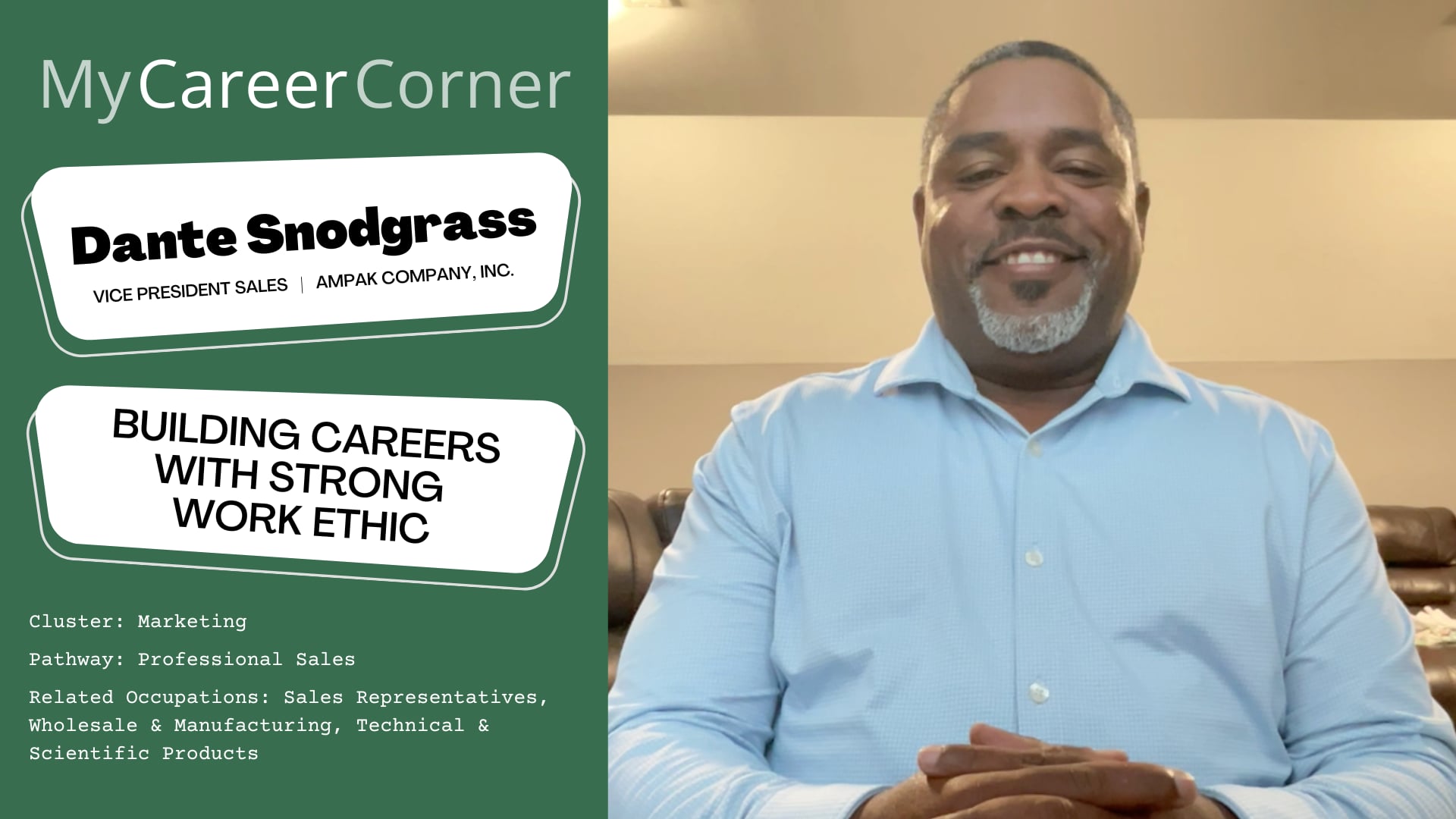
Building Careers with Strong Work Ethic with Dante Snodgrass
Dante Snodgrass remembers his first promotion and credits his successful sales career to a combination of a strong work ethic, personality, and deep technical knowledge.
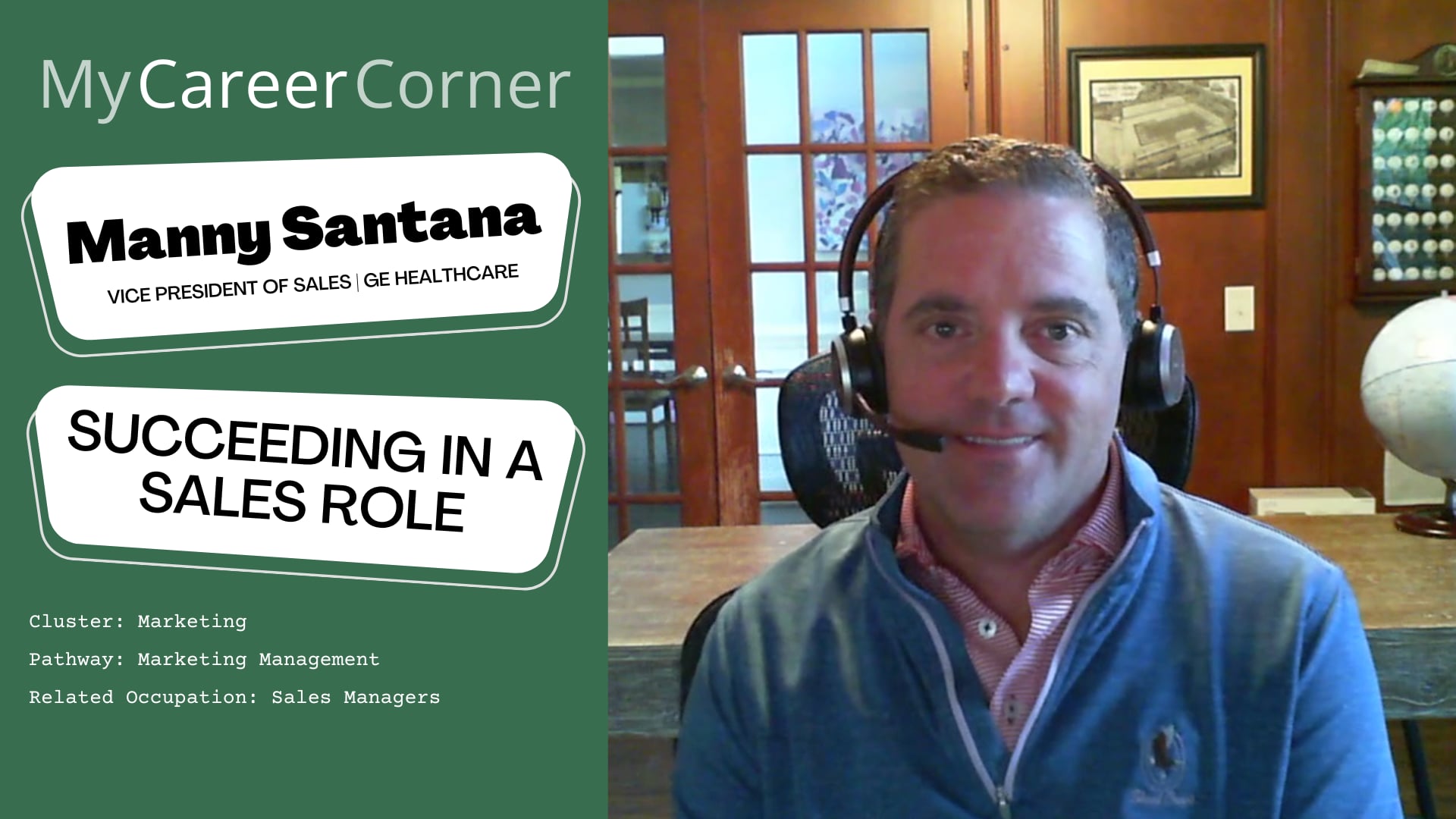
Succeeding in a Sales Role with Manny Santana
Manny Santana talks about leading a sales organization of over 120 people. He also covers topics such as a typical day in the life of a salesperson and the importance of building customer service skills for a successful career in sales.
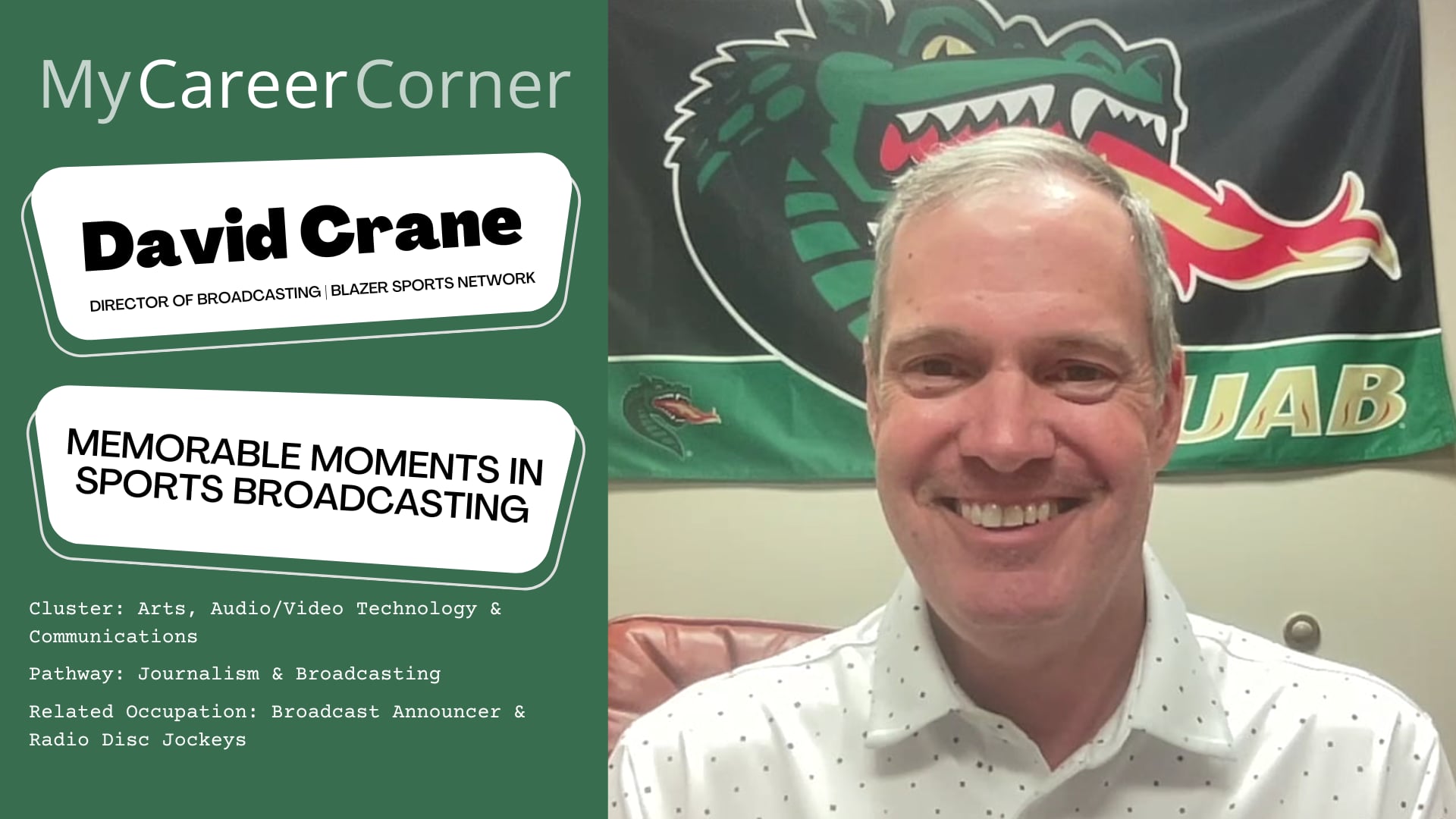
Memorable Moments in Sports Broadcasting with David Crane
David Crane speaks about his most memorable experiences in his career, including calling Bowl games and College World Series games.
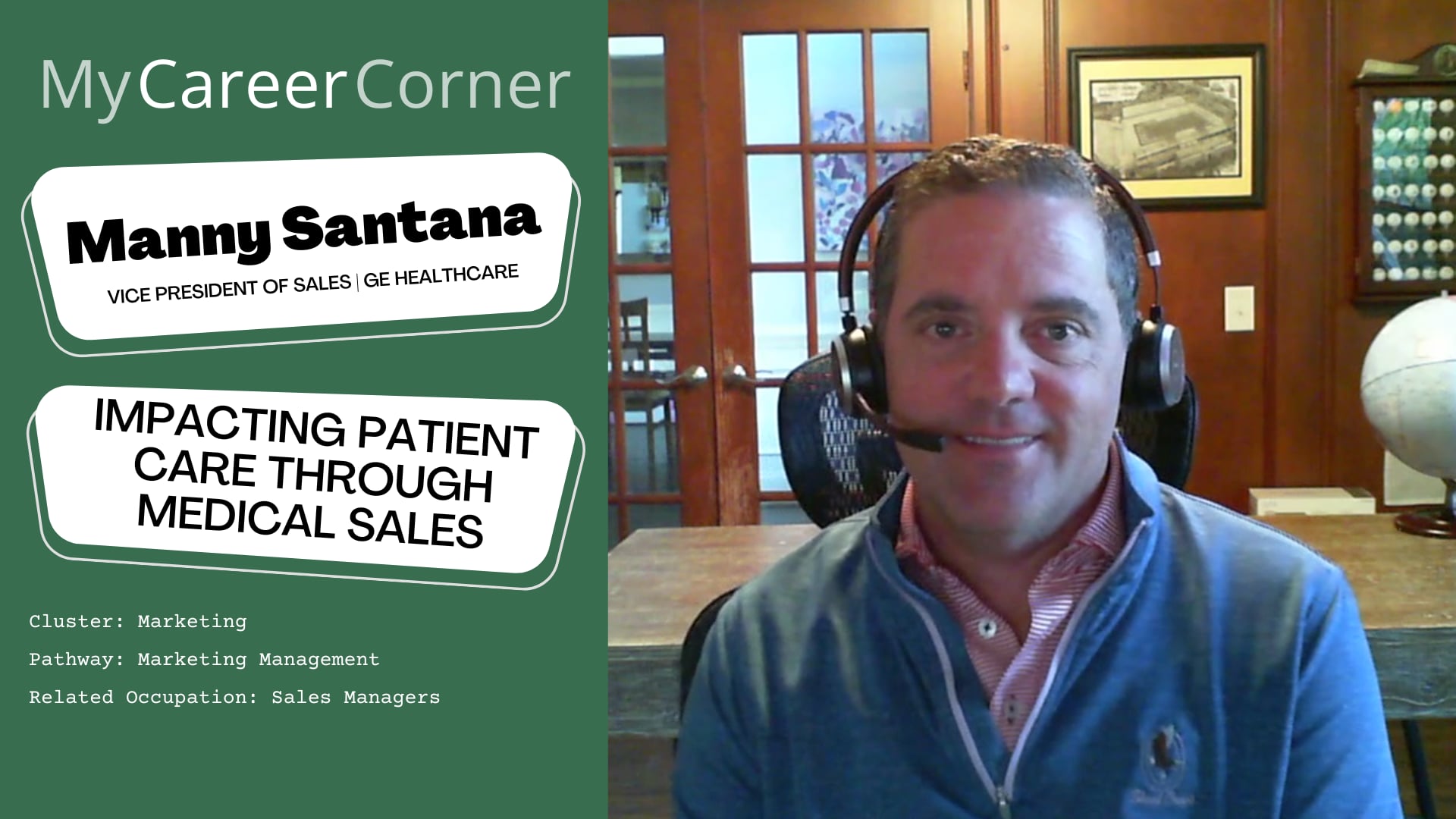
Impacting Patient Care Through Medical Sales with Manny Santana
Manny Santana shares some memorable experiences from his career in the healthcare industry and gives advice to students interested in pursuing a career in healthcare.
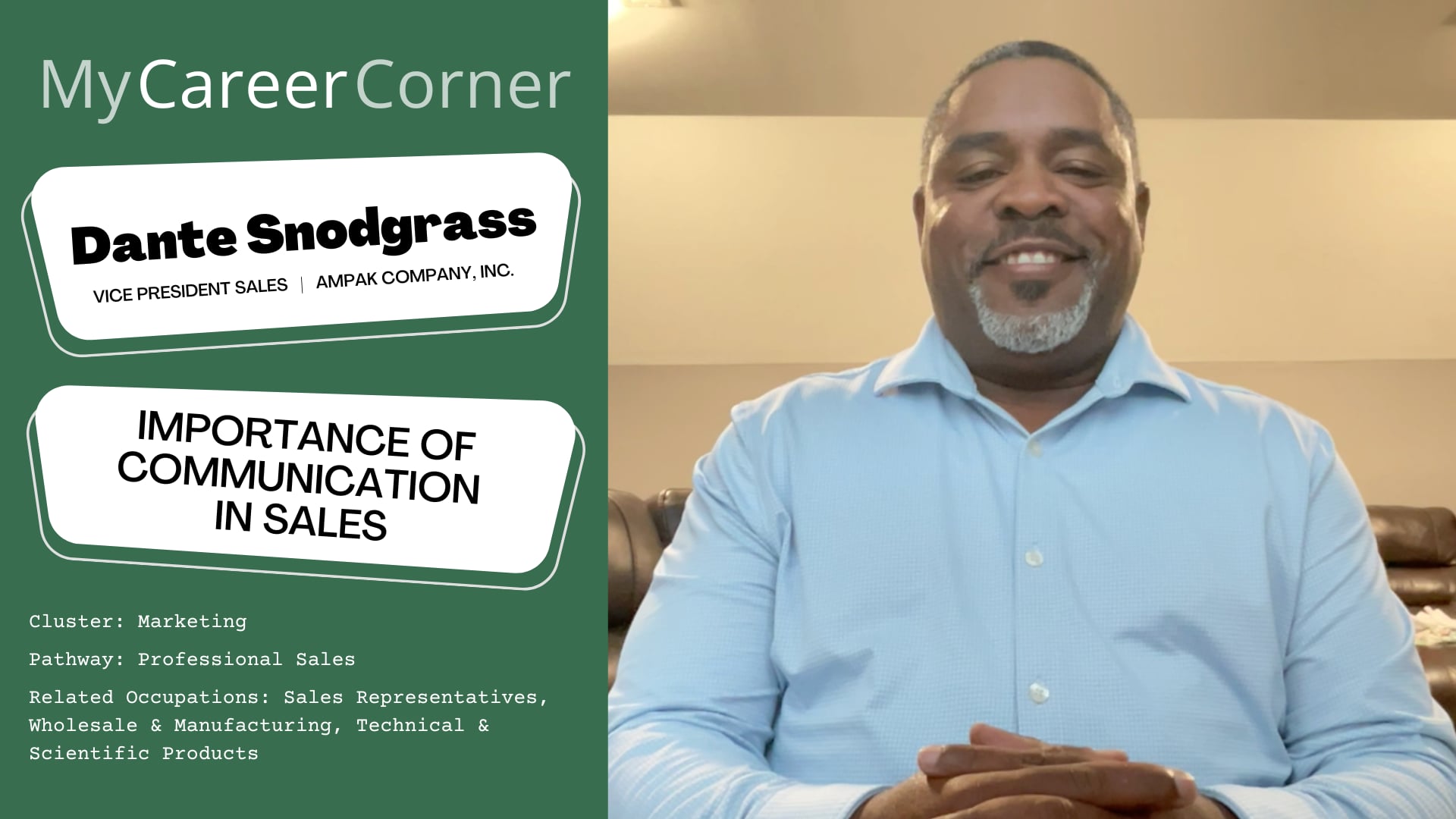
Importance of Communication in Sales with Dante Snodgrass
Dante Snodgrass talks about effective oral and written communication for sales, including developing good writing habits, such as proper punctuation and grammar.
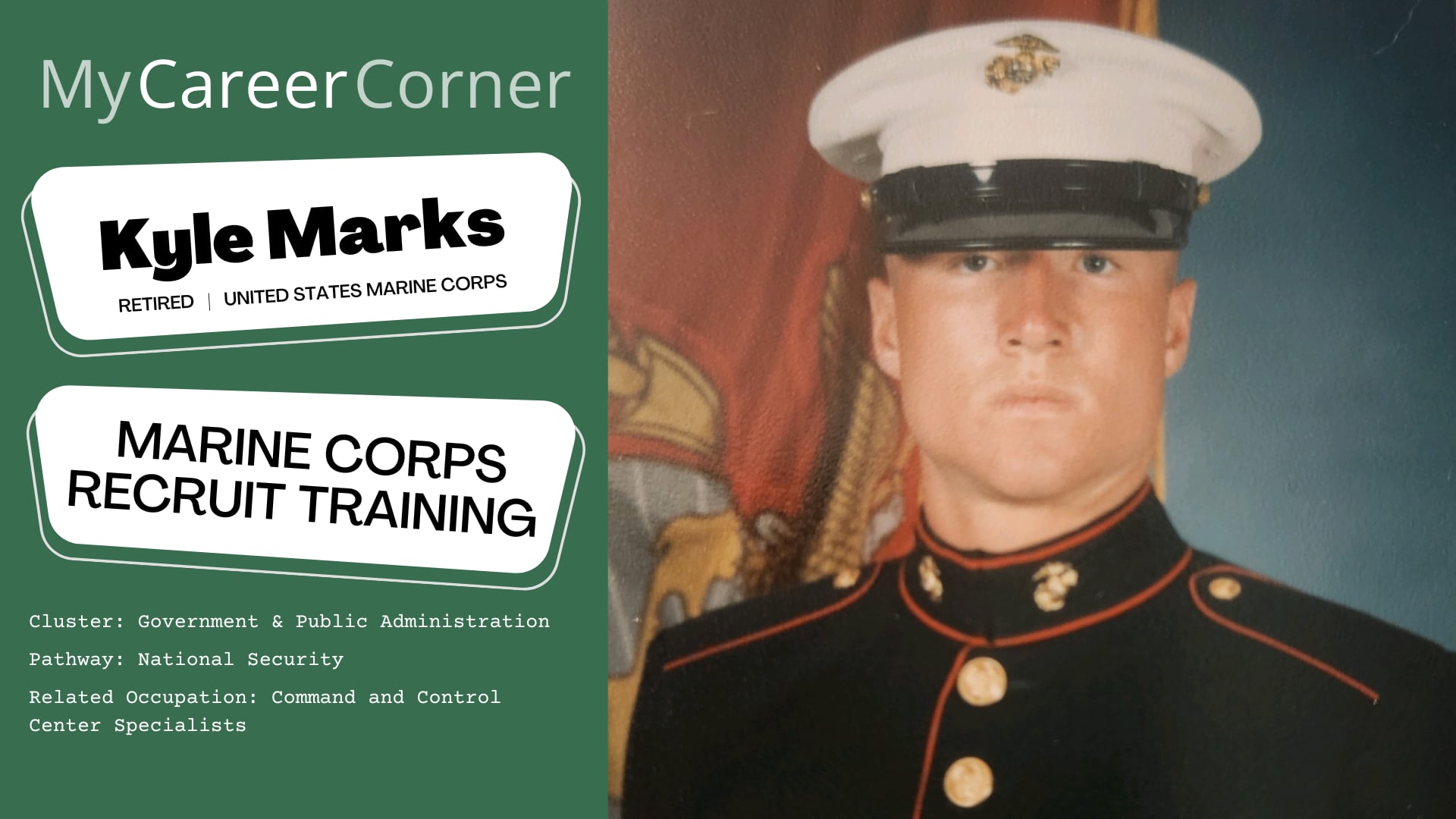
Marine Corps Recruit Training with Kyle Marks
Kyle Marks discusses joining the Marine Corps, the challenges of Boot Camp and the specialized training Marines undergo.
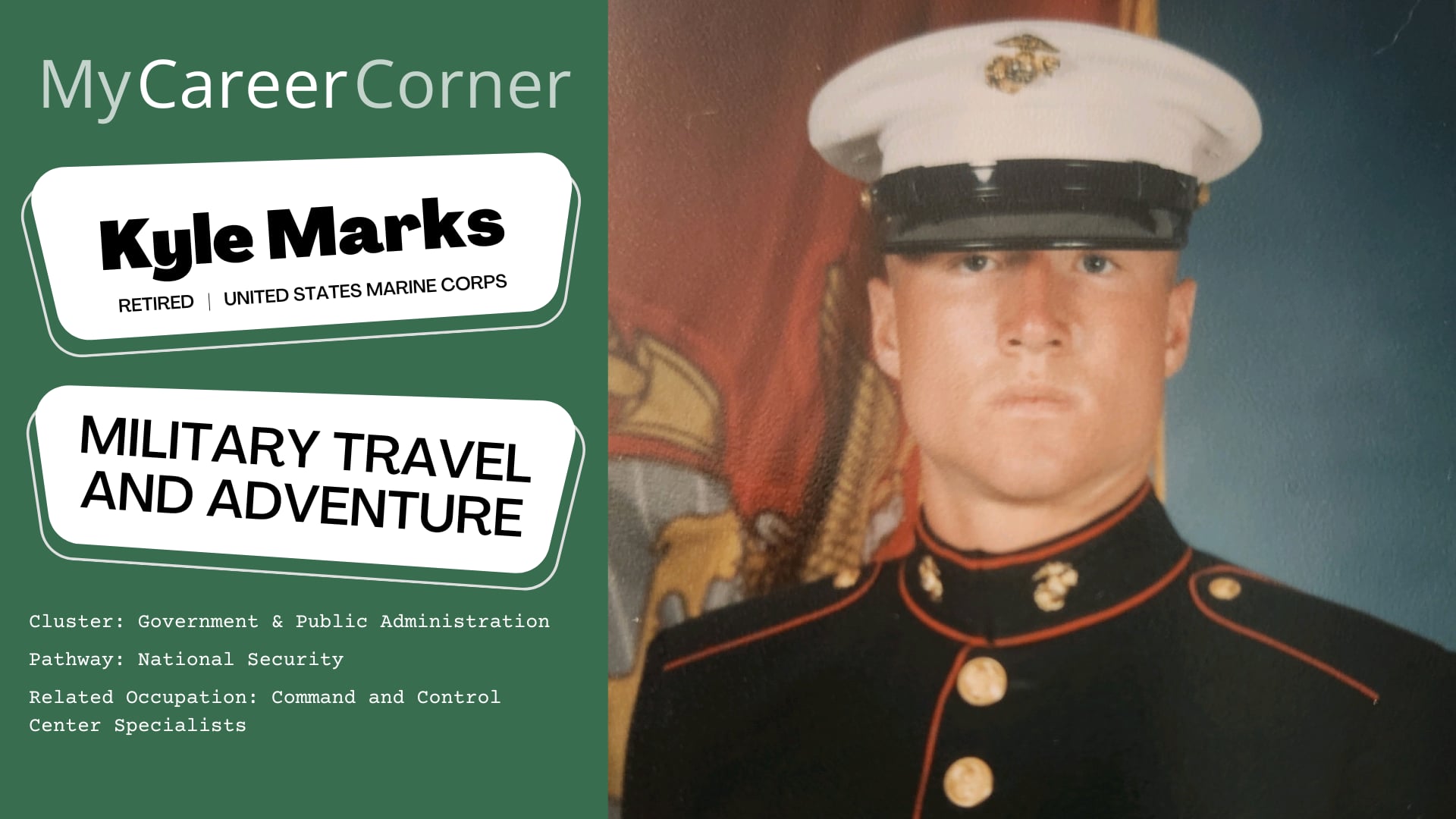
Military Travel and Adventure with Kyle Marks
Kyle Marks talks about experiencing the world when becoming a Marine, including the variety of deployments and missions, from training to peacekeeping to humanitarian aid and disaster relief.
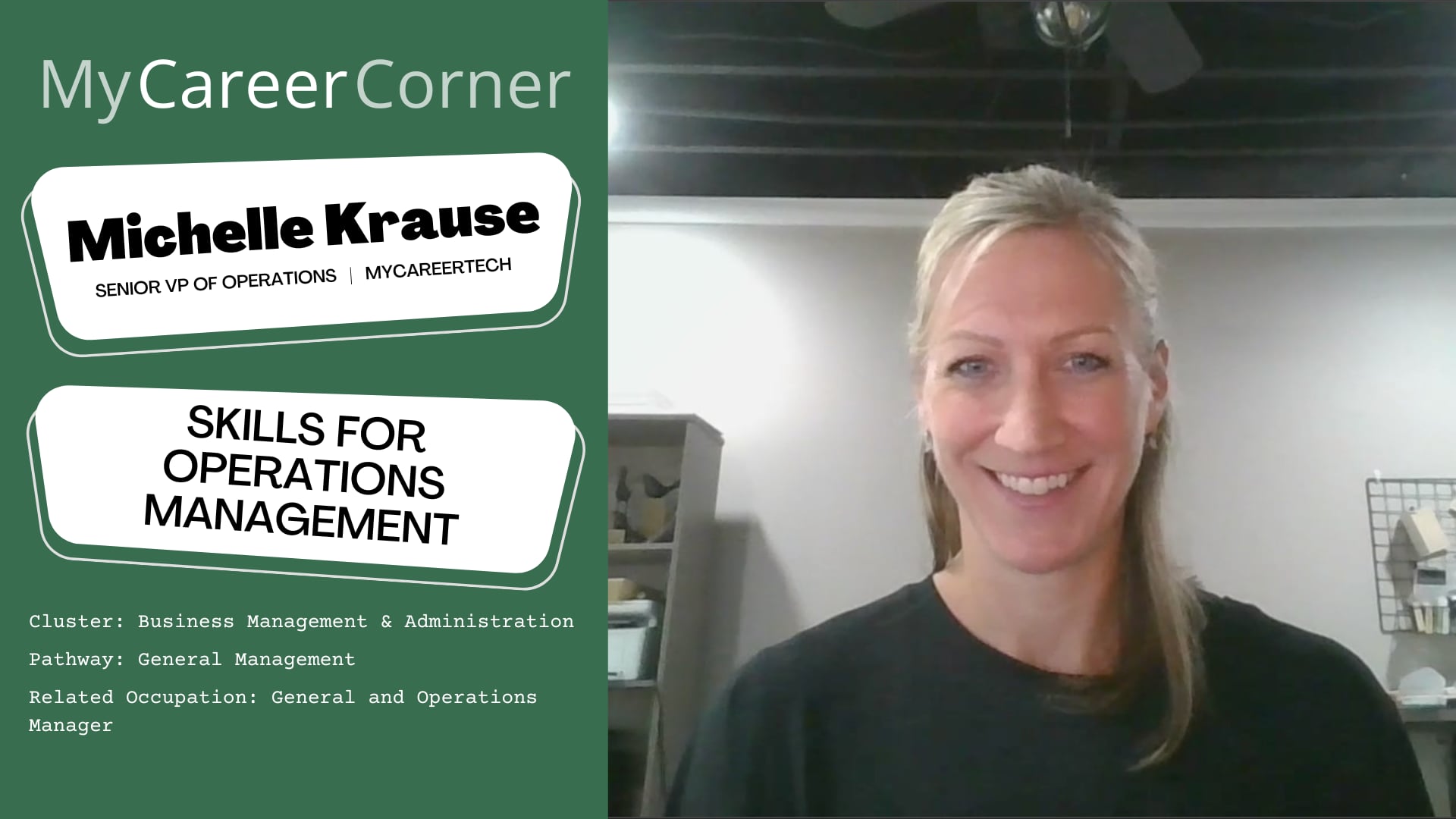
Skills for Operations Management with Michelle Krause
Michelle Krause discusses working in Operations for a small business and the various skills required to be successful.
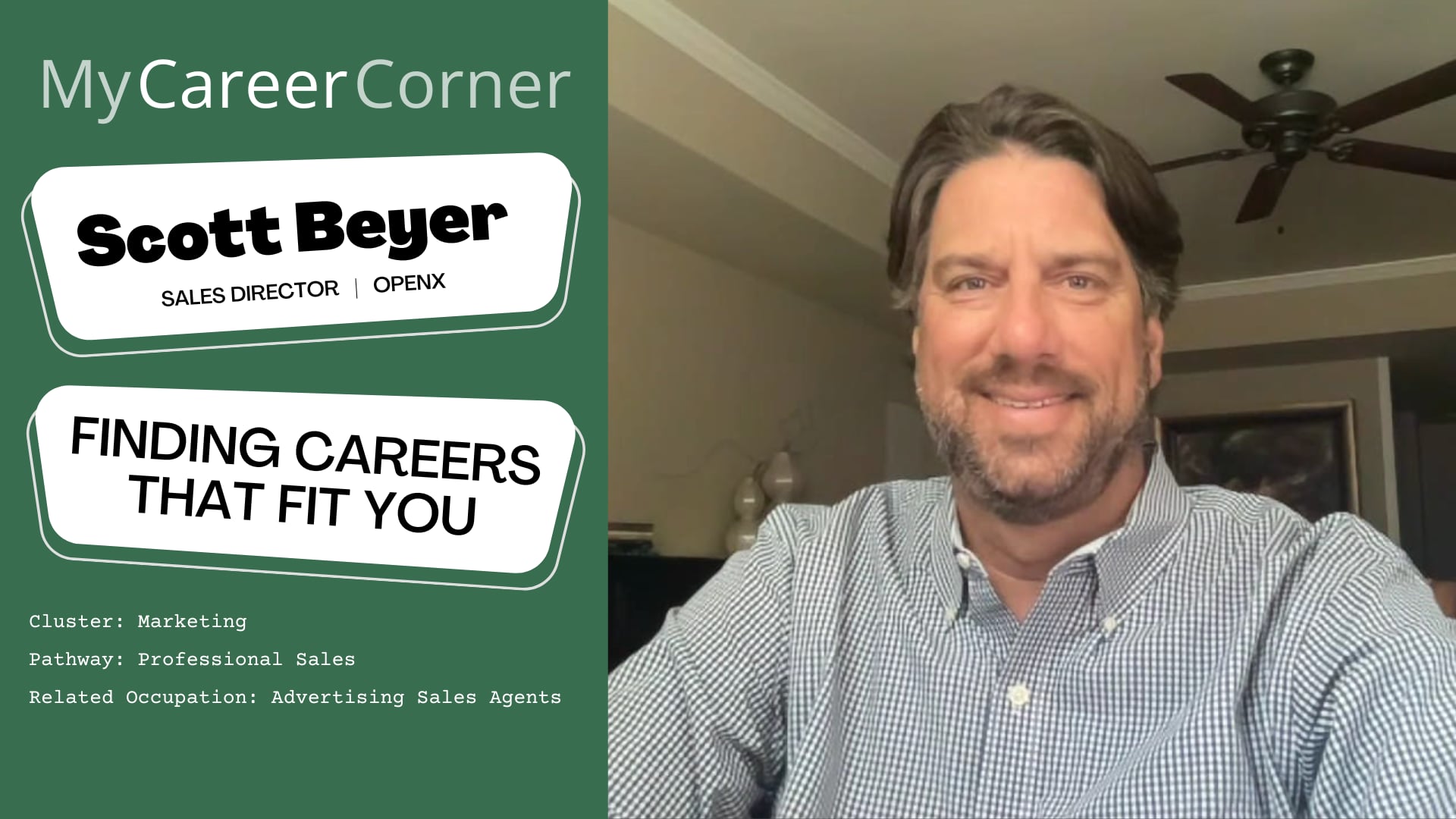
Finding Careers That Fit You with Scott Beyer
Scott Beyer talks about why his sales career is a good fit for his personality and how his enjoyment in helping others has led to his success.
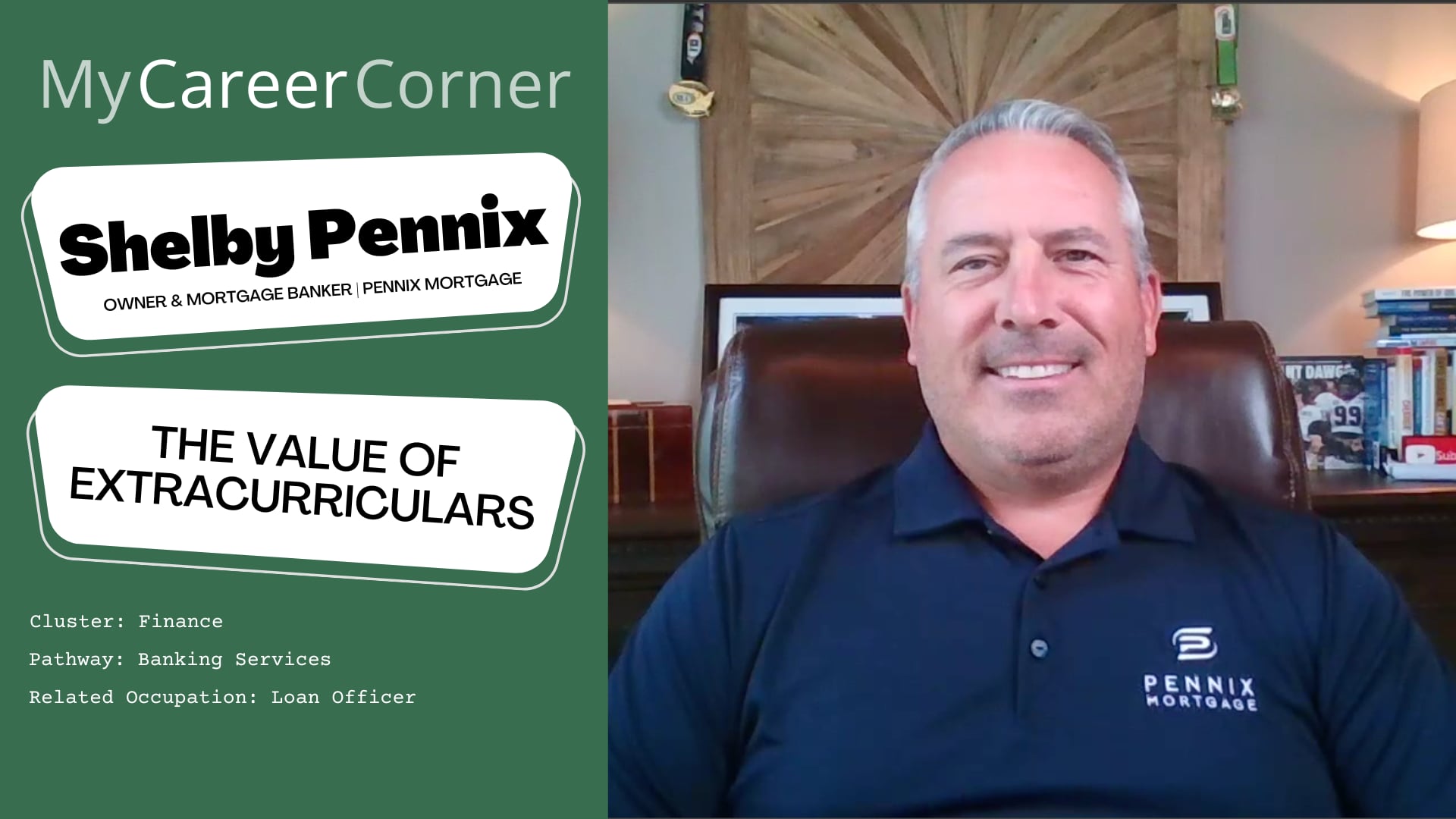
The Value of Extracurriculars with Shelby Pennix
Shelby Pennix talks about how participating in extracurricular activities creates discipline and work ethic, prepared him to be more adaptable, and equipped him to deal with tough situations and stress over the course of his career.
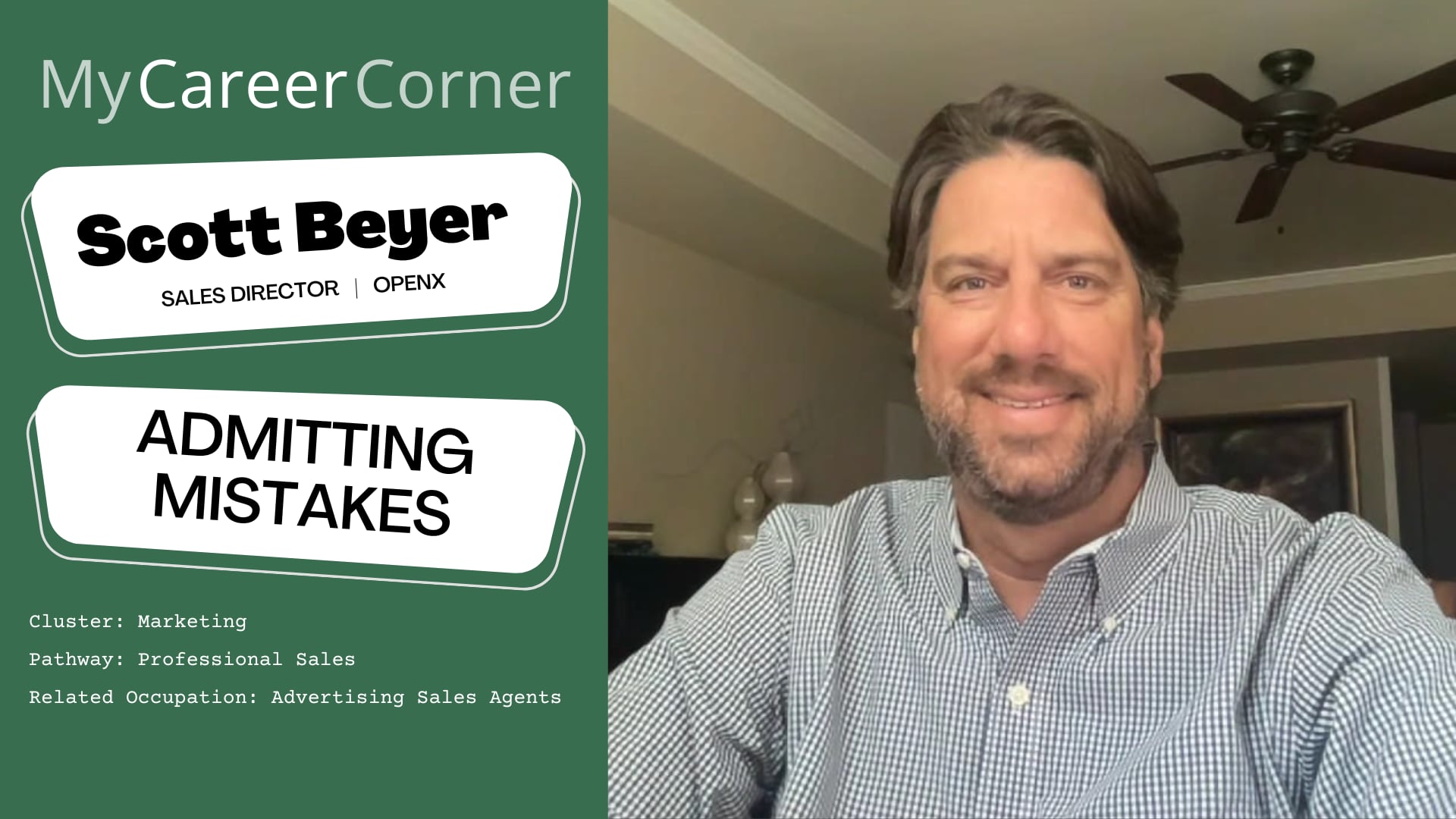
Admitting Mistakes with Scott Beyer
Scott Beyer recalls a professional mistake he made early in his sales career and how he learned from it.
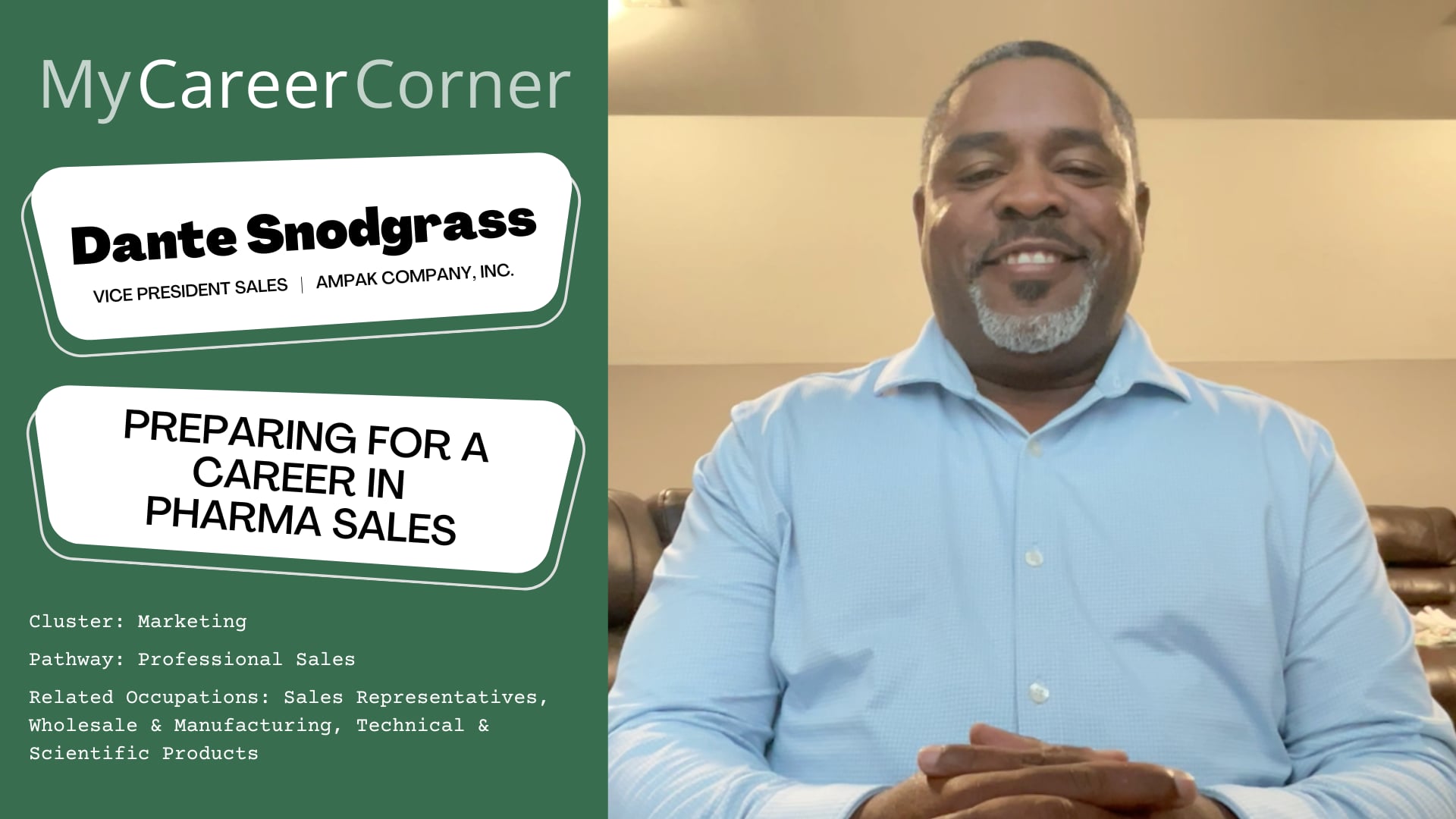
Preparing for a Career in Pharma Sales with Dante Snodgrass
Dante Snodgrass talks about how his high school chemistry teacher inspired him and how his technical knowledge has helped to make him an effective salesperson.
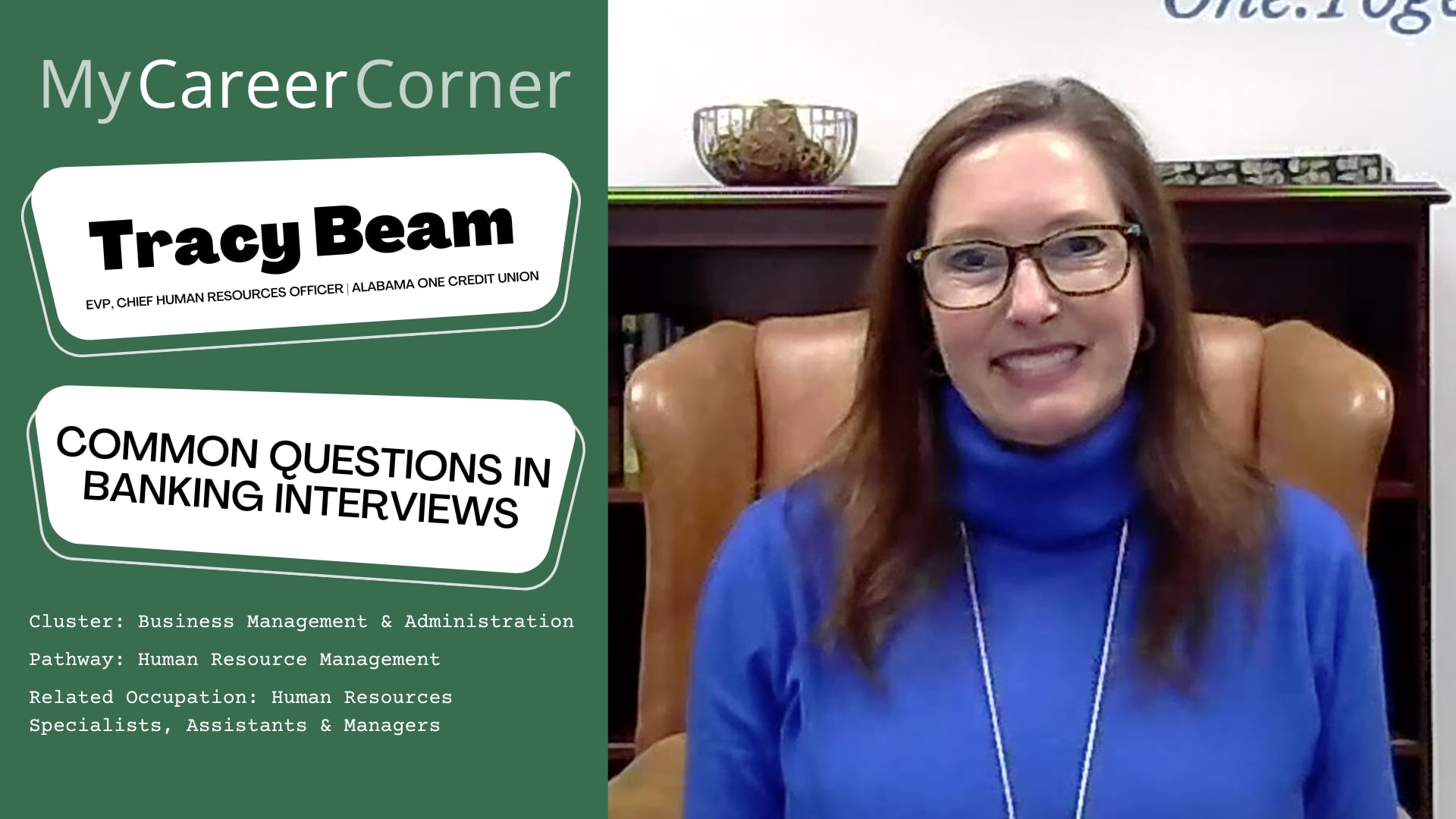
Common Questions in Banking Interviews with Tracy Beam
Tracy Beam details many of the interview questions that an entry-level candidate can expect when interviewing for a position in the banking industry.
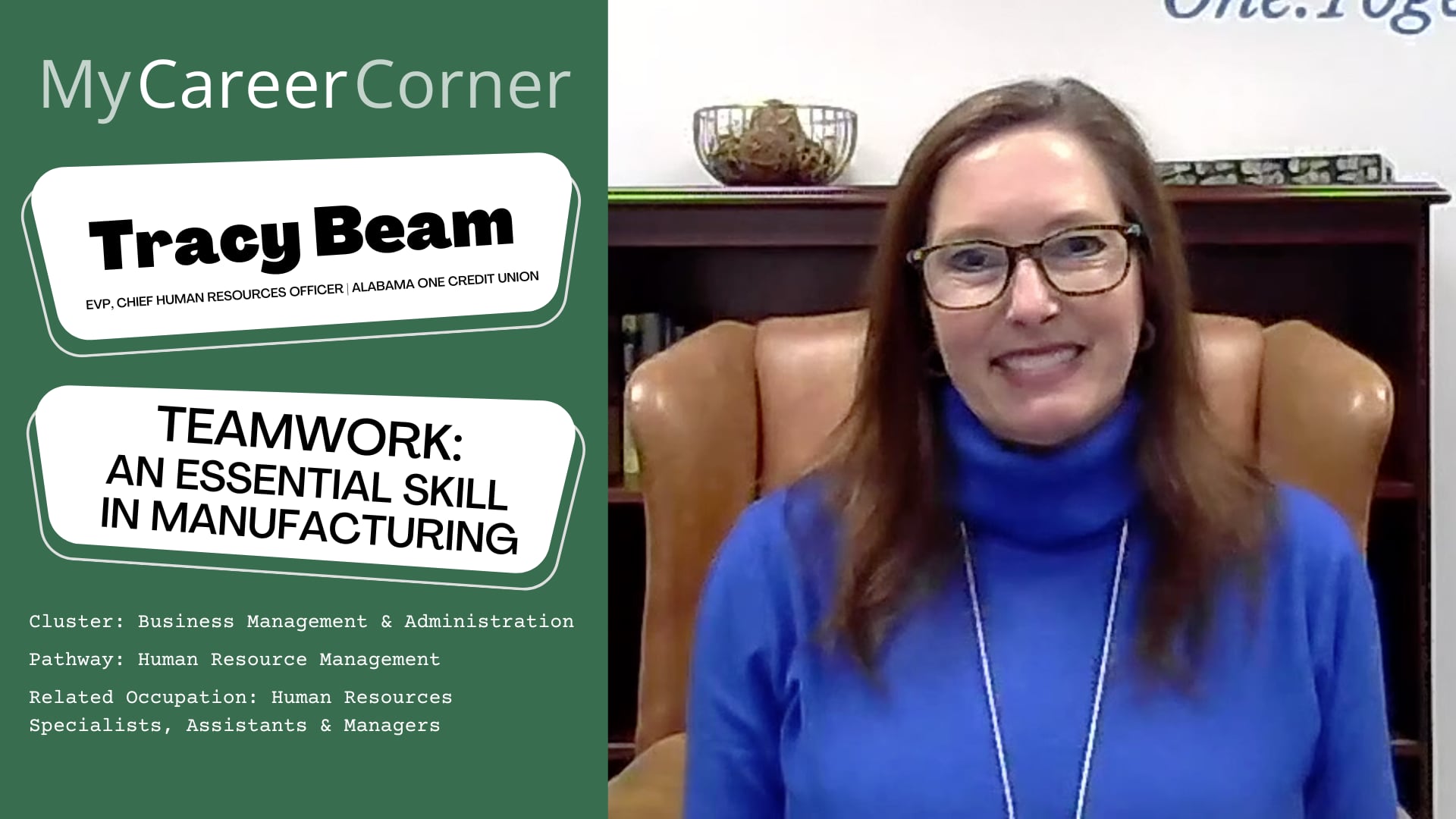
Teamwork: An Essential Skill in Manufacturing with Tracy Beam
Tracy Beam discusses the value of the soft skill Teamwork, and why it's so important when considering candidates in the manufacturing industry.
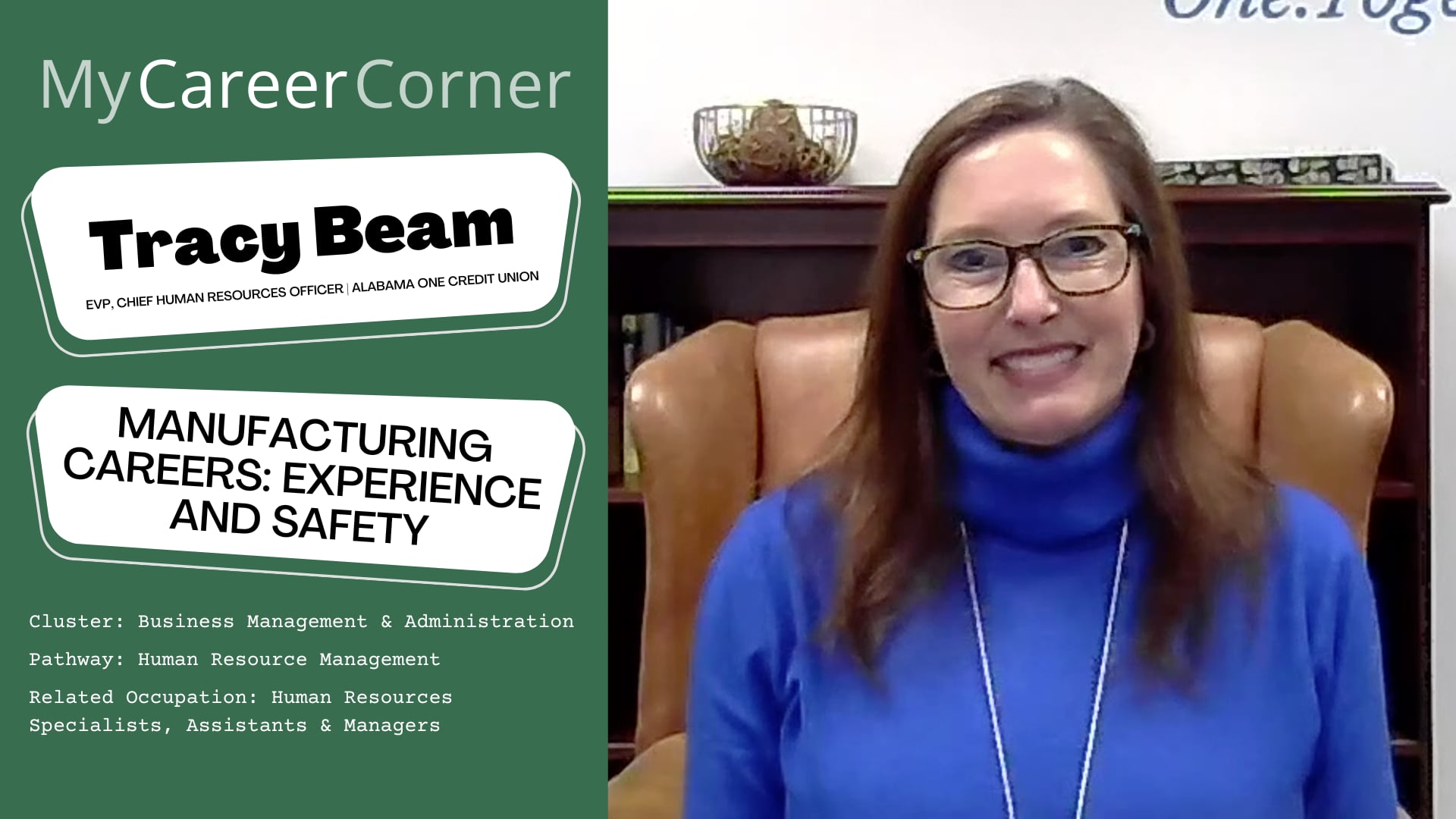
Manufacturing Careers: Experience and Safety with Tracy Beam
Tracy Beam discusses the importance of hands-on experience and knowledge of safety protocols when considering prospective candidates in the manufacturing industry.
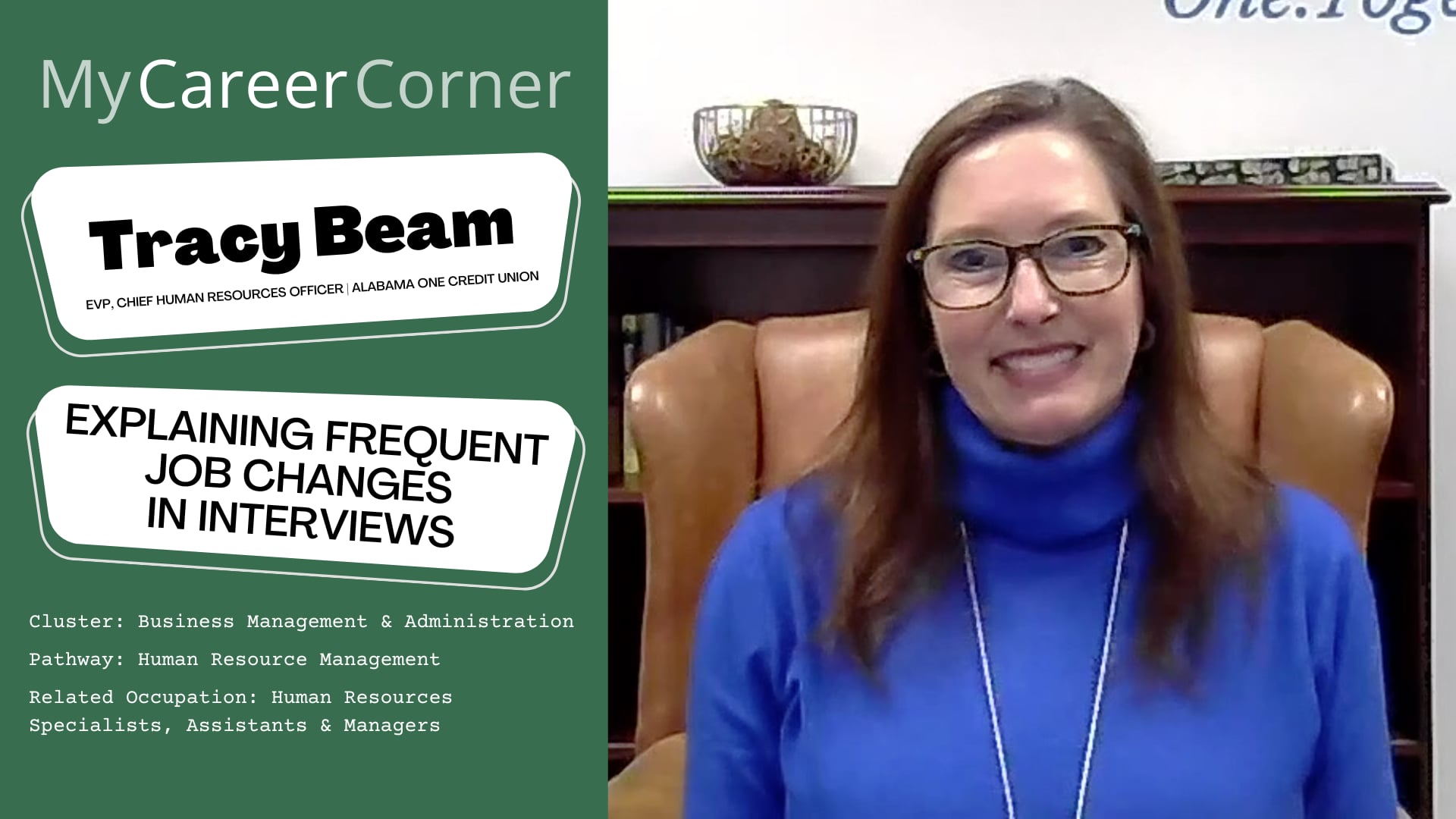
Explaining Frequent Job Changes in Interviews with Tracy Beam
Tracy Beam talks about the importance of being able to explain frequent job changes in an interview.
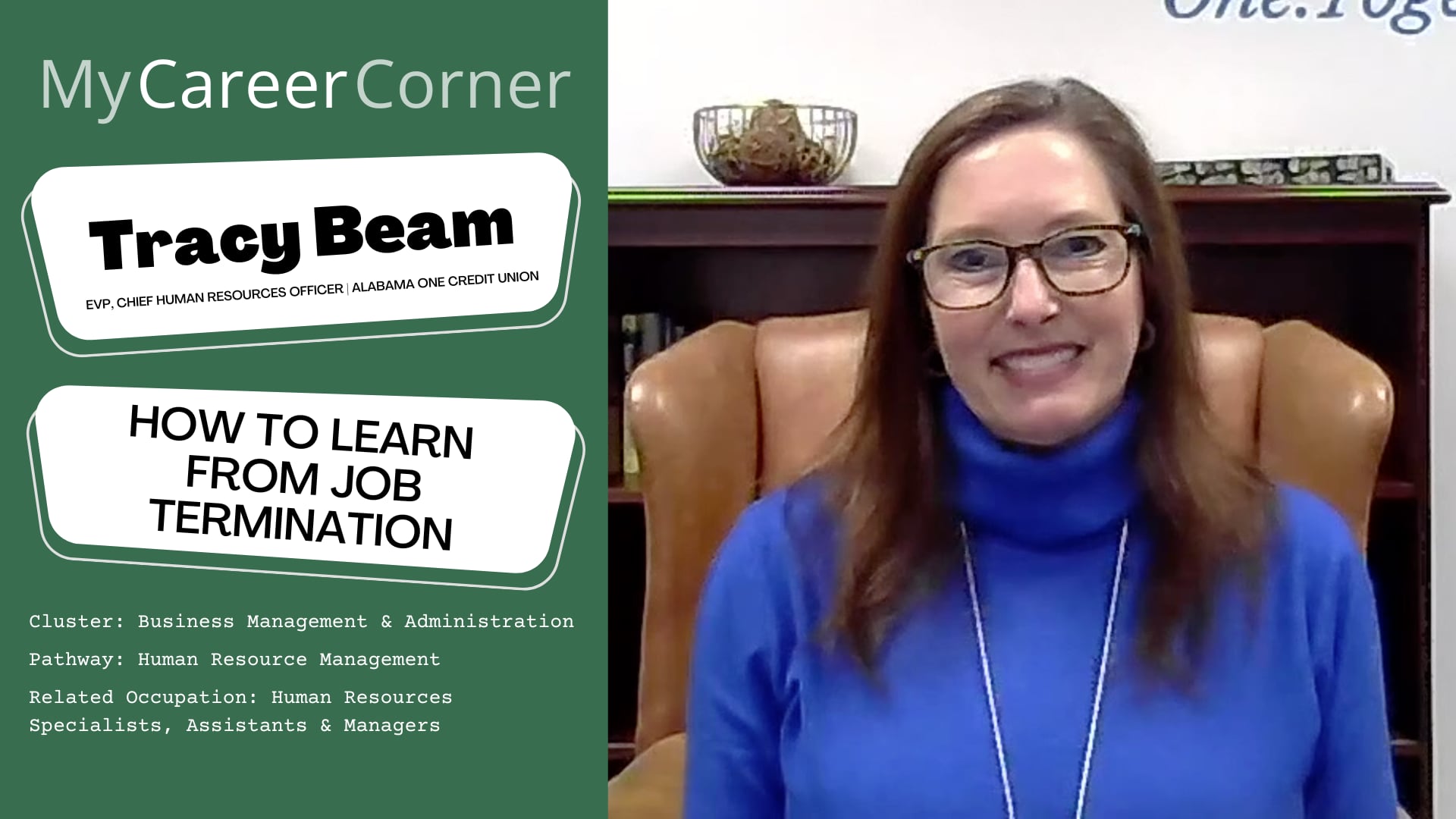
How to Learn from Job Termination with Tracy Beam
Tracy Beam talks about how to learn from a job termination by taking the opportunity to understand where your performance fell short, resolve to improve from that experience, and grow from it in the future.
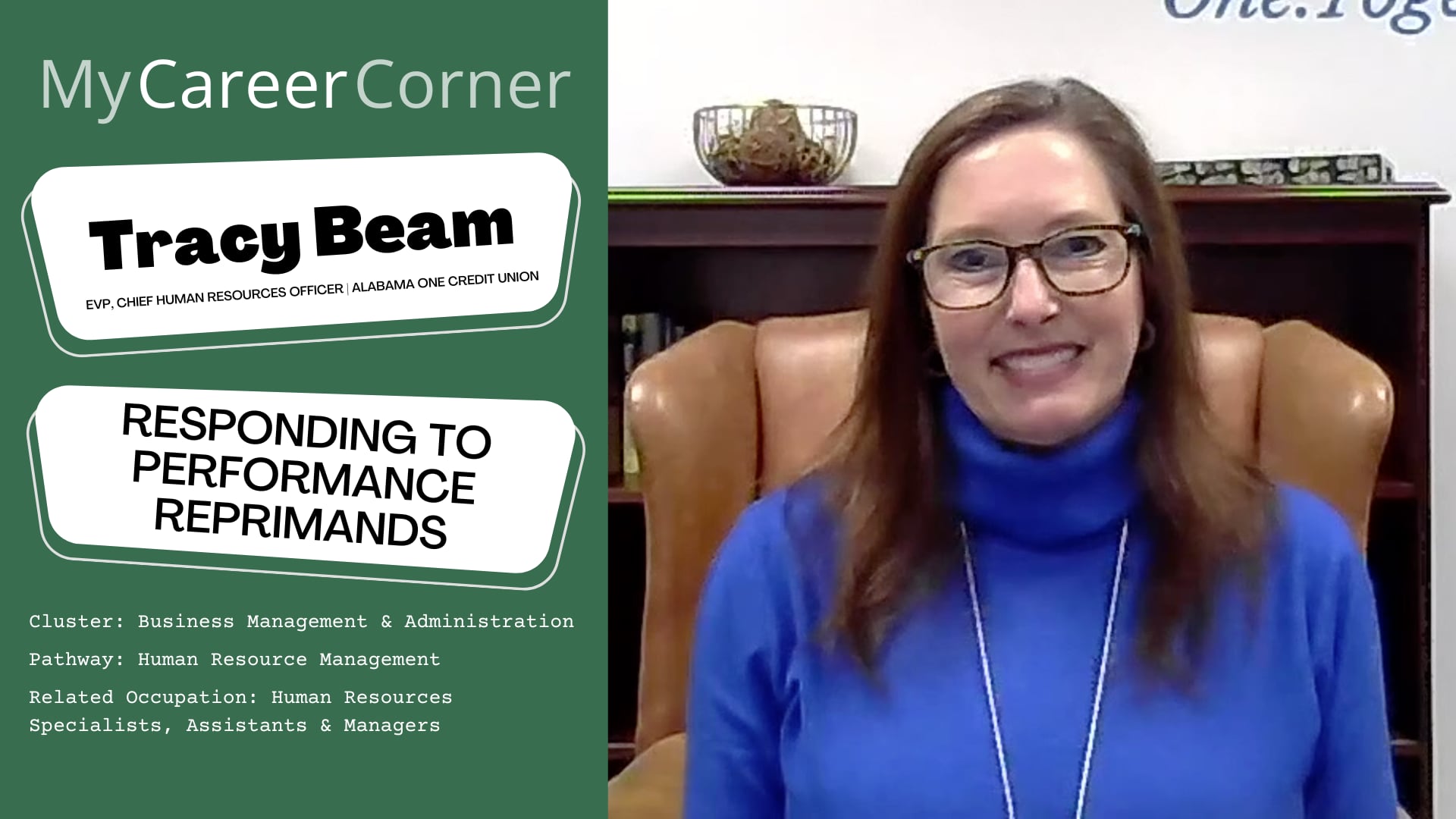
Responding to Performance Reprimands with Tracy Beam
Tracy Beam talks about the importance of learning from a reprimand in the workplace and turning it into an opportunity to improve performance in the future.
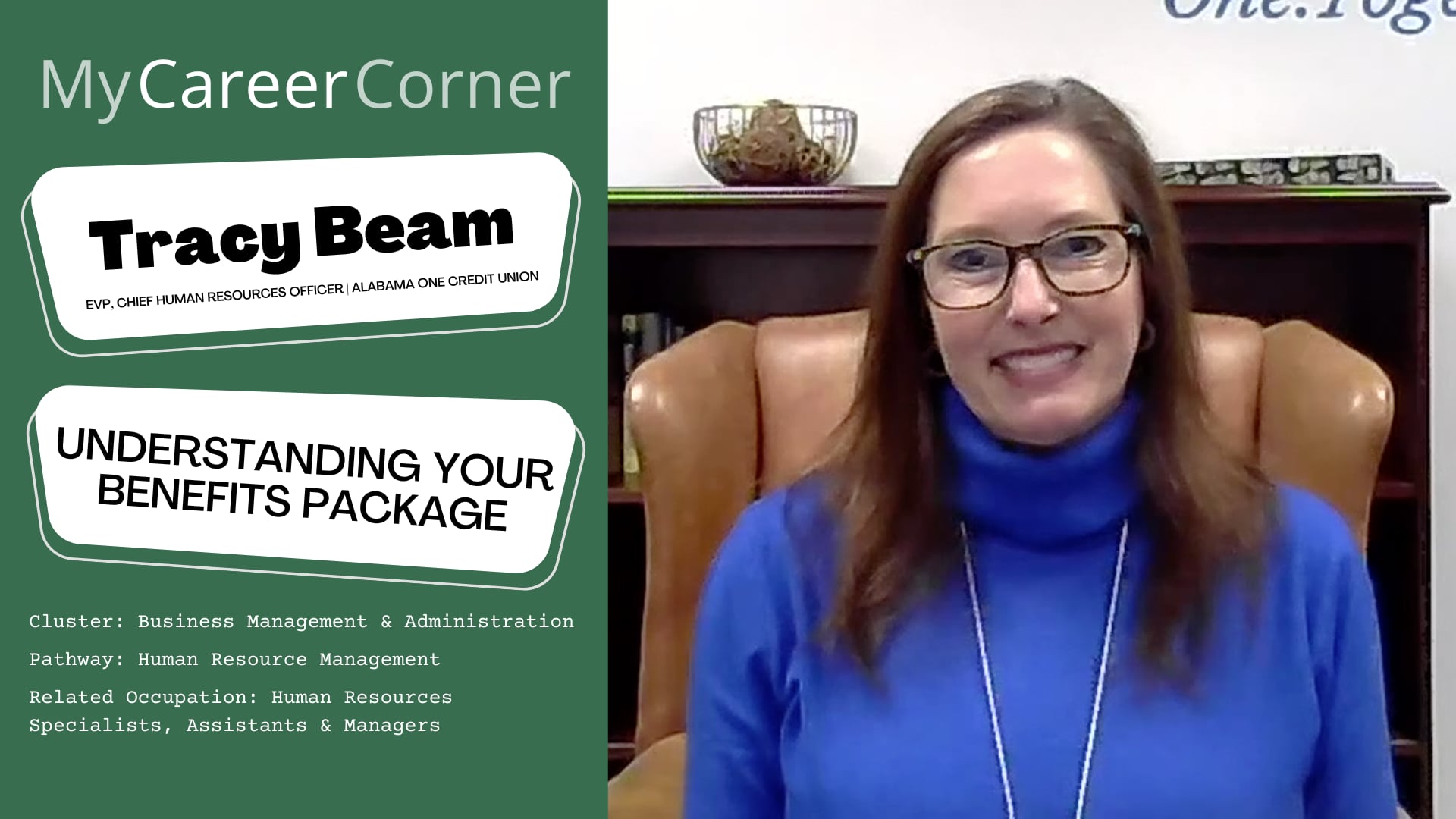
Understanding Your Benefits Package with Tracy Beam
Tracy Beam describes Benefits Packages as "the hidden paycheck" and gives tips on how to weigh the value of the benefits offered when considering an employment opportunity.
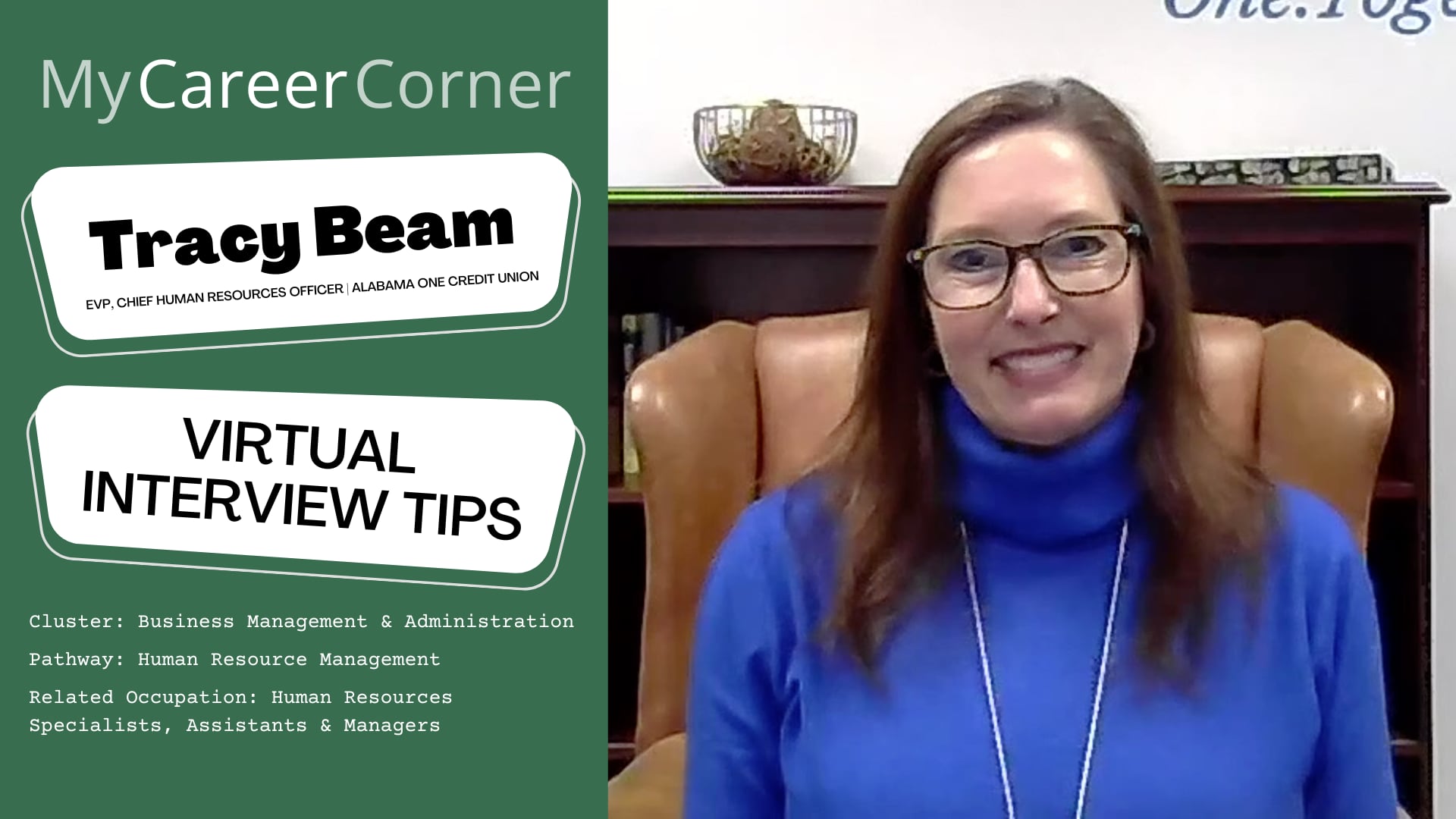
Virtual Interview Tips with Tracy Beam
Tracy Beam shares tips on how to prepare for a virtual interview including dressing professionally and removing potential visual and audio distractions.
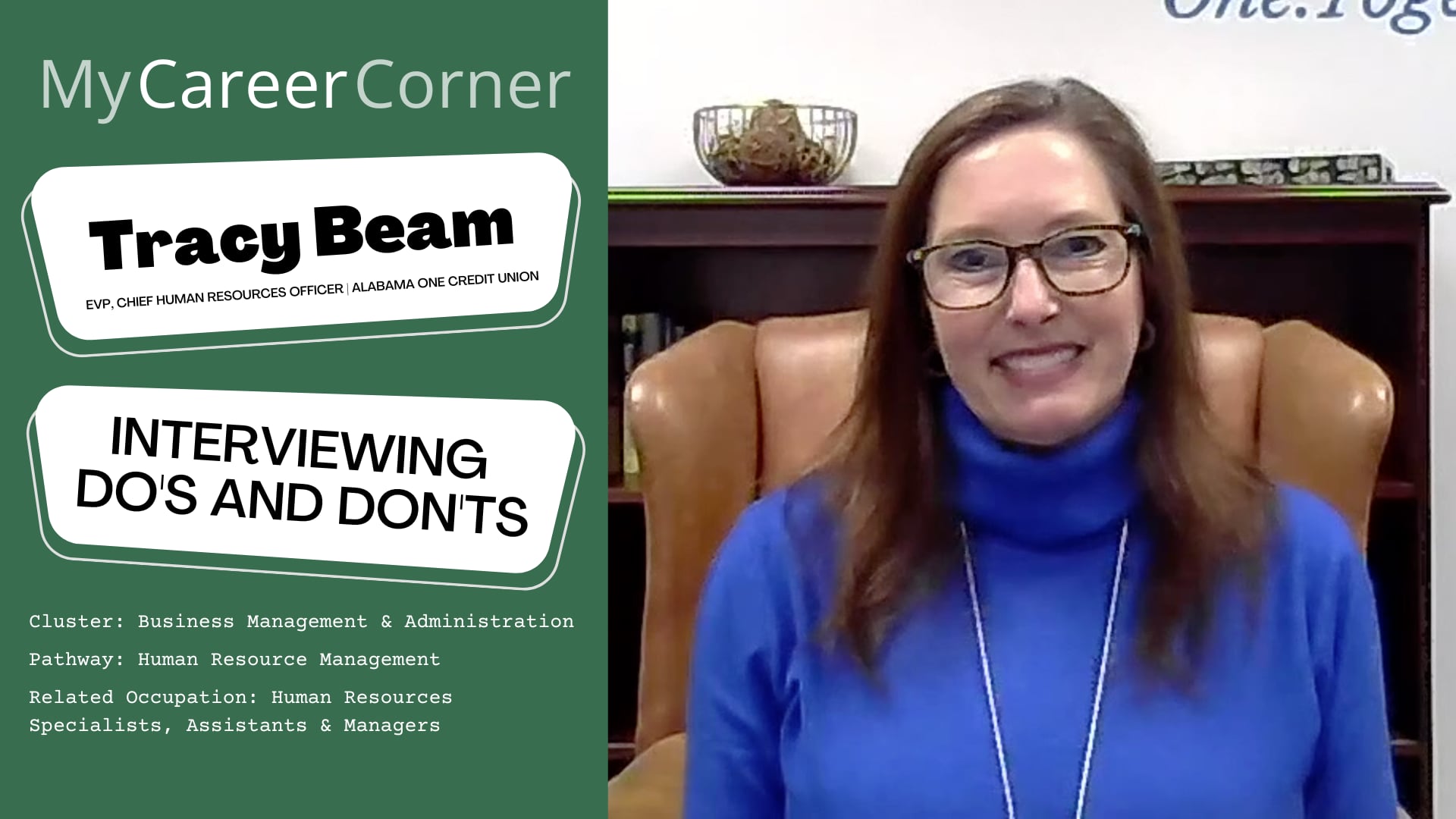
Interviewing Do's and Don'ts with Tracy Beam
Tracy Beam gives specific examples of how to prepare for an interview to avoid mistakes and put yourself in the best position to get hired.
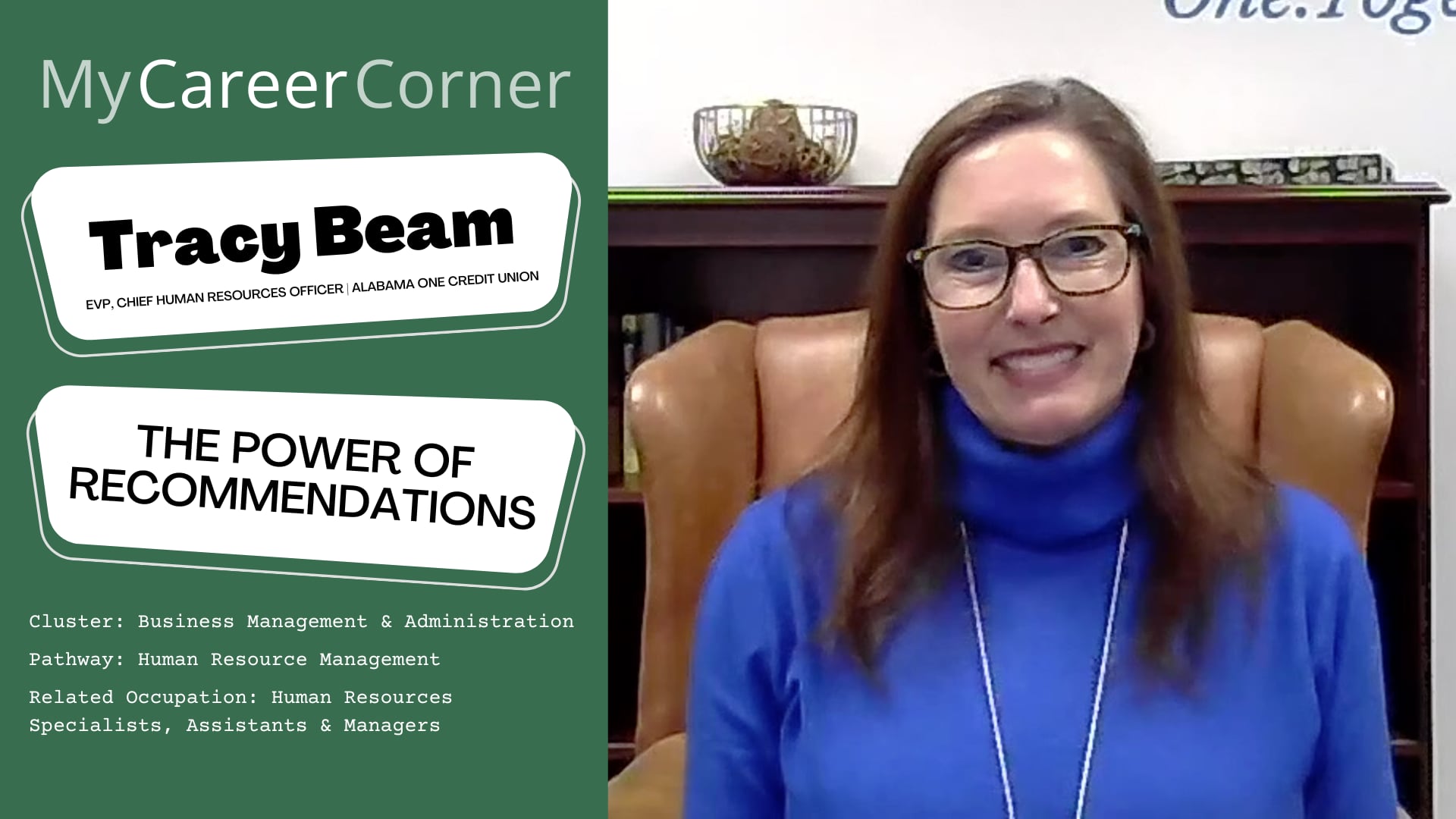
The Power of Recommendations with Tracy Beam
Tracy Beam shares the value of having someone recommend you to an employer when looking for jobs.
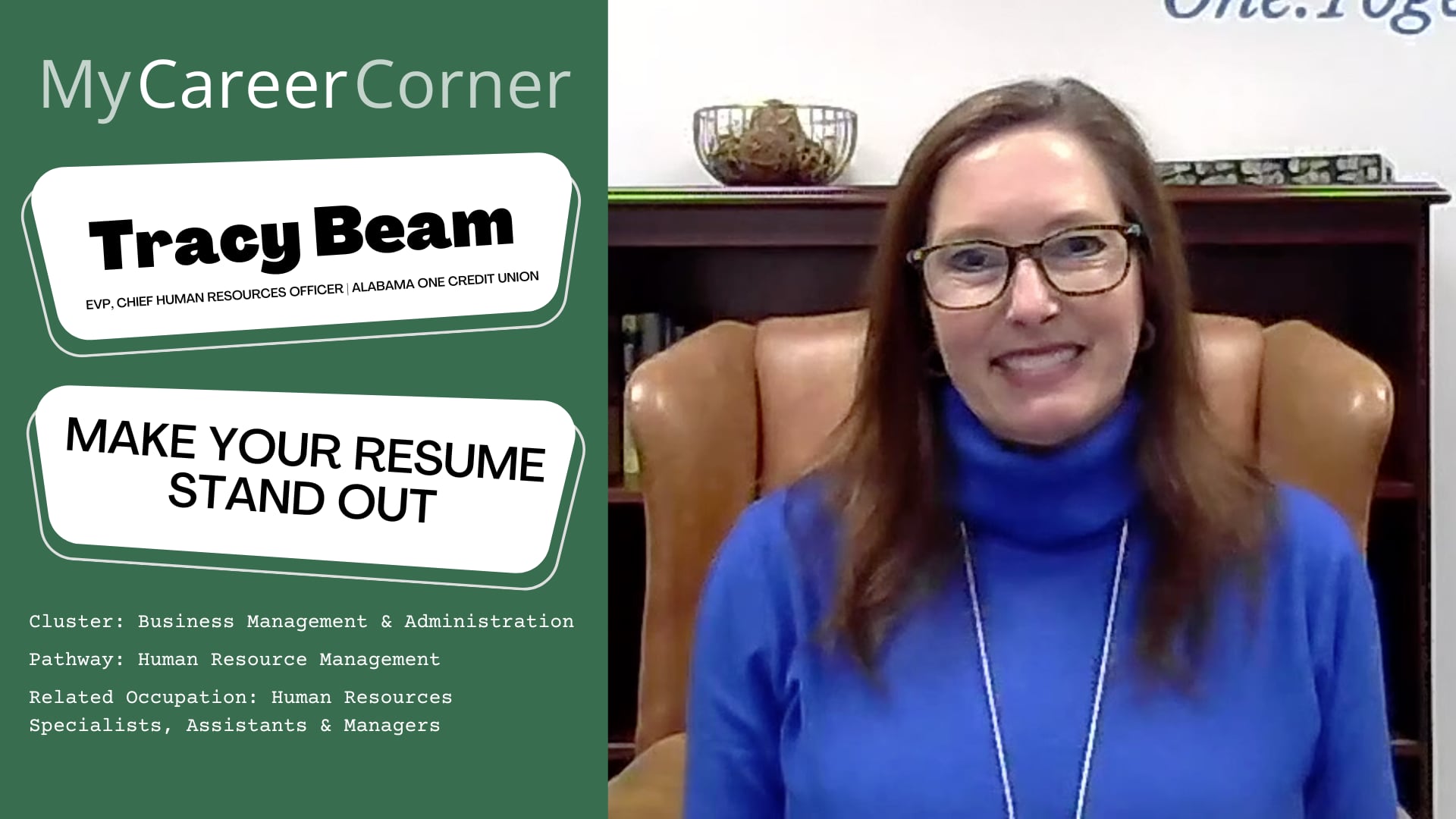
Make Your Resume Stand Out with Tracy Beam
Tracy Beam discusses the importance of customizing each Resume and shares the common Resume mistakes that she sees.
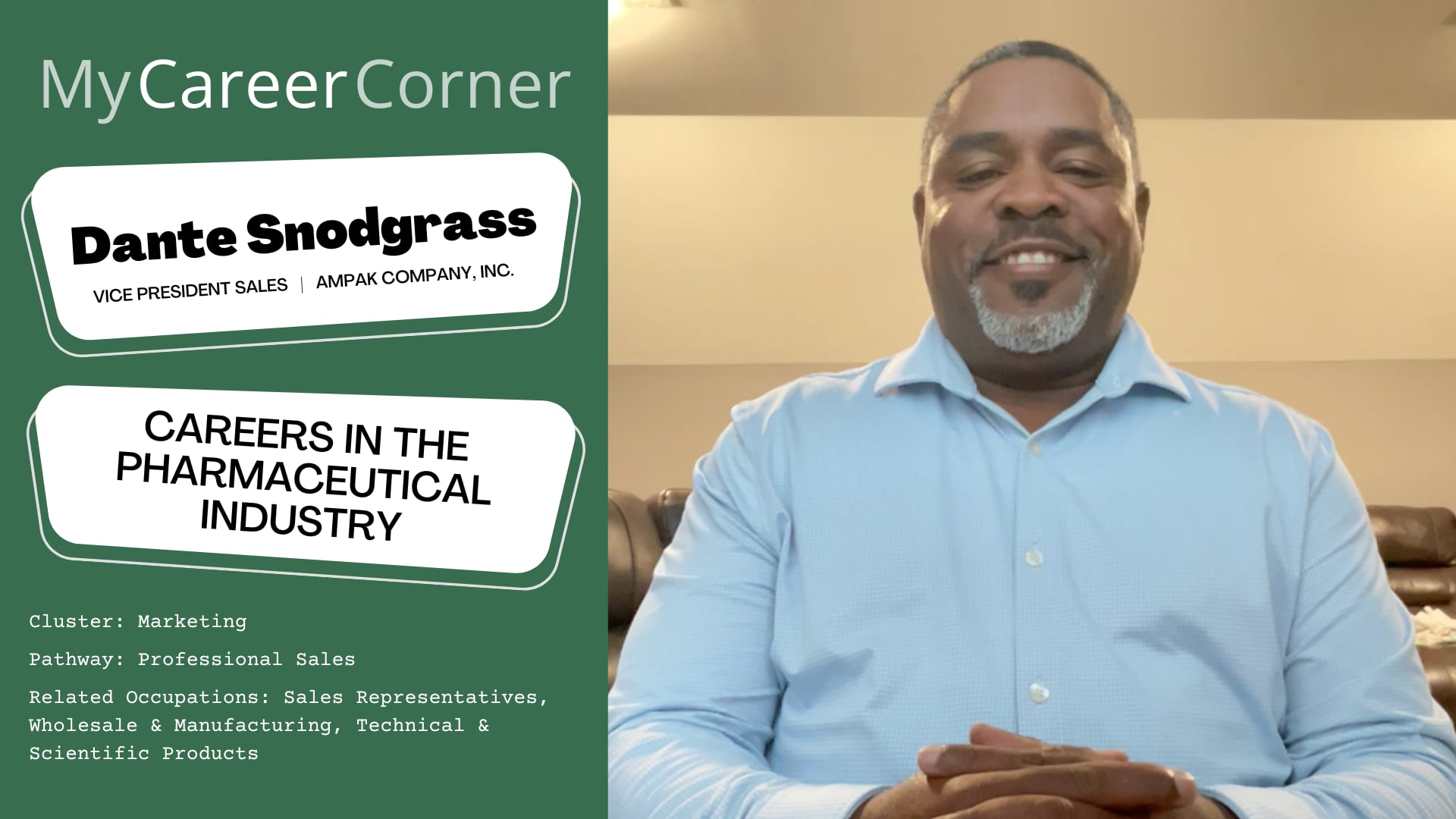
Careers in the Pharmaceutical Industry with Dante Snodgrass
Dante Snodgrass discusses the various career paths and products in the industry from product inception to the purchase by the consumer. He also gives advice on researching the industry to discover other opportunities in the space.
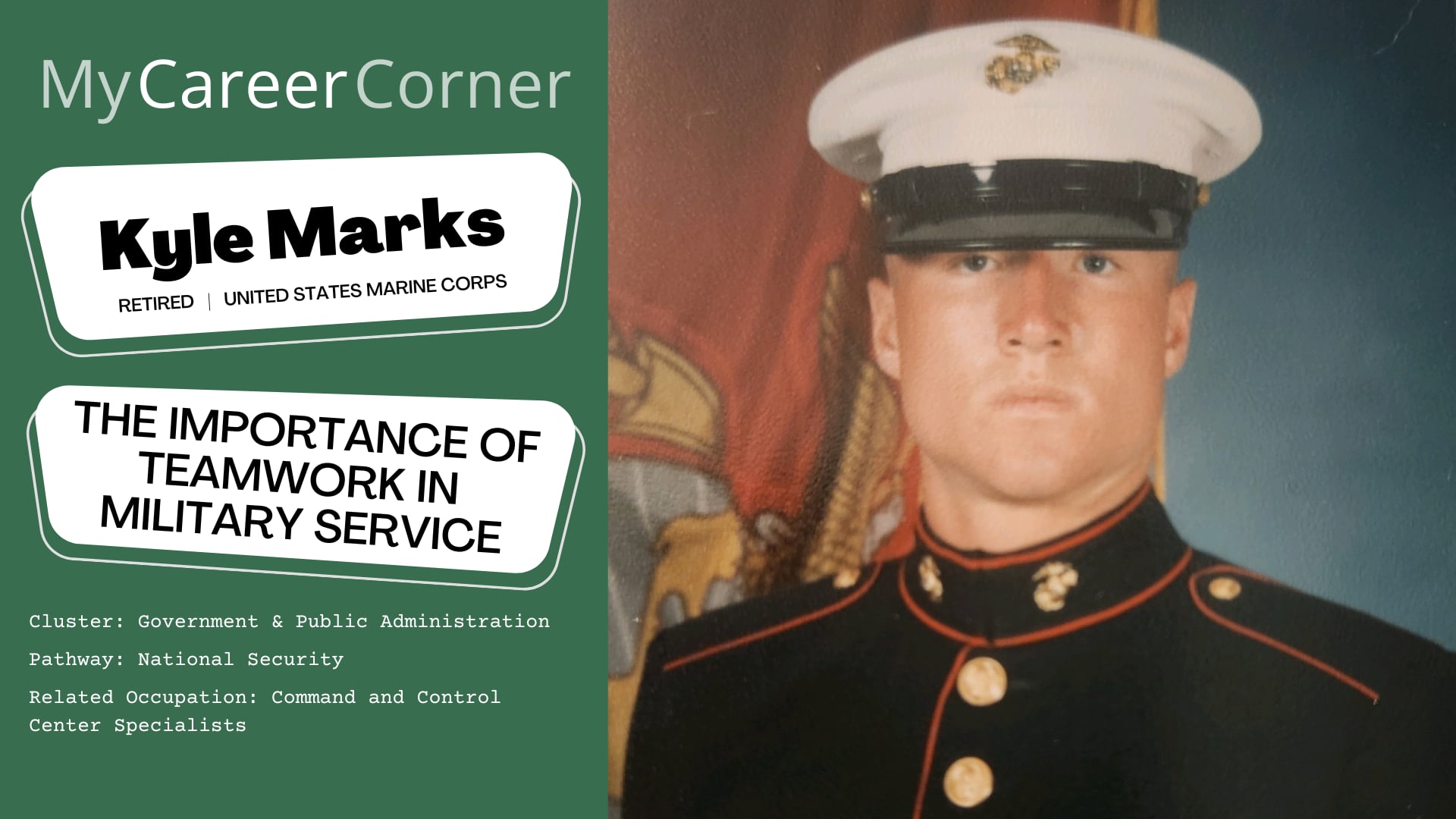
The Importance of Teamwork in Military Service with Kyle Marks
Kyle Marks shares the value of Teamwork to the overall success of the military. He talks about the importance of executing your responsibilities to contribute to the overall success of the organization.
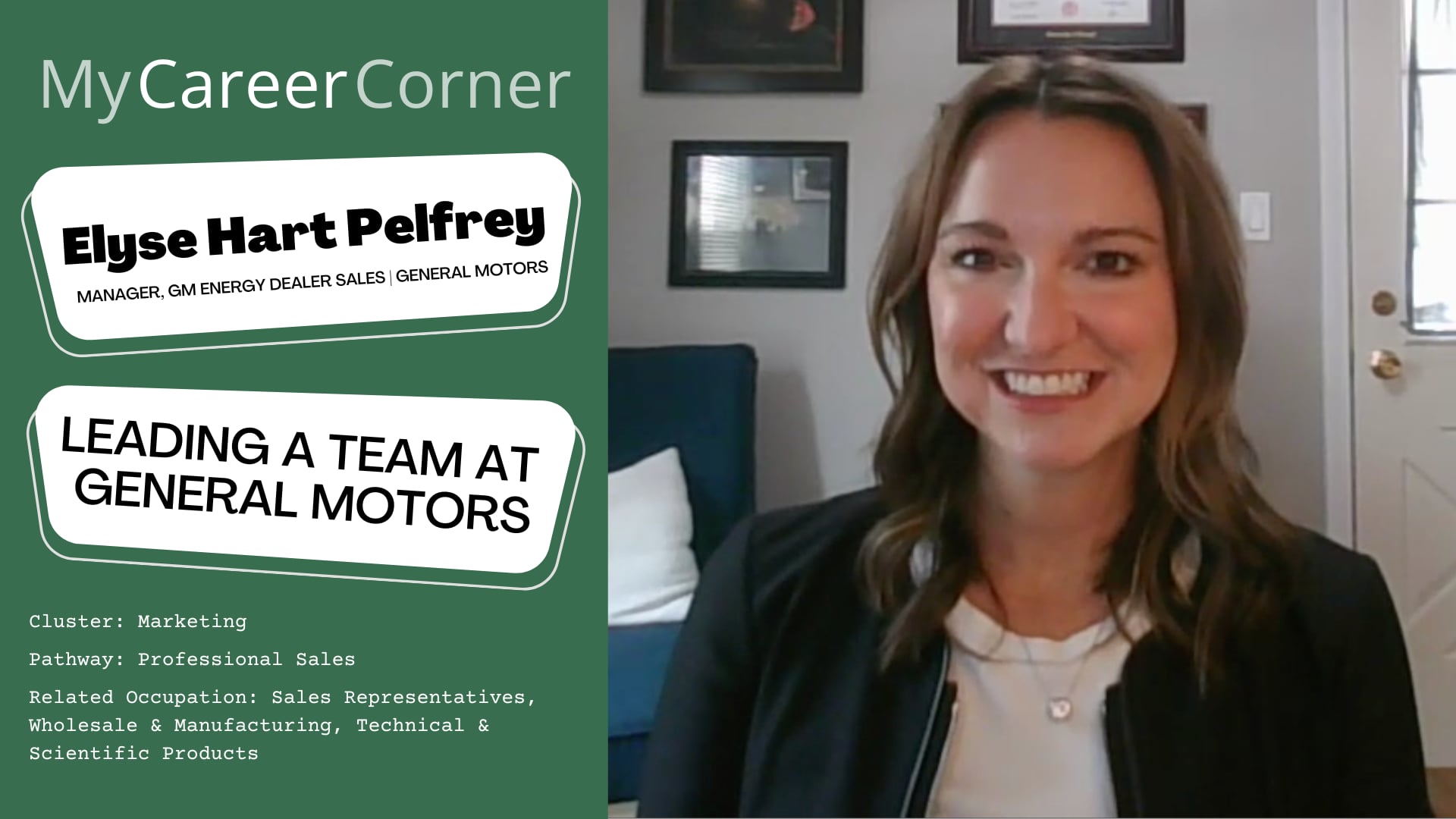
Leading a team at General Motors with Elyse Hart Pelfrey
Elyse Hart Pelfrey shares what she loves about her job and describes a typical day in her job at General Motors heading up GM Energy.
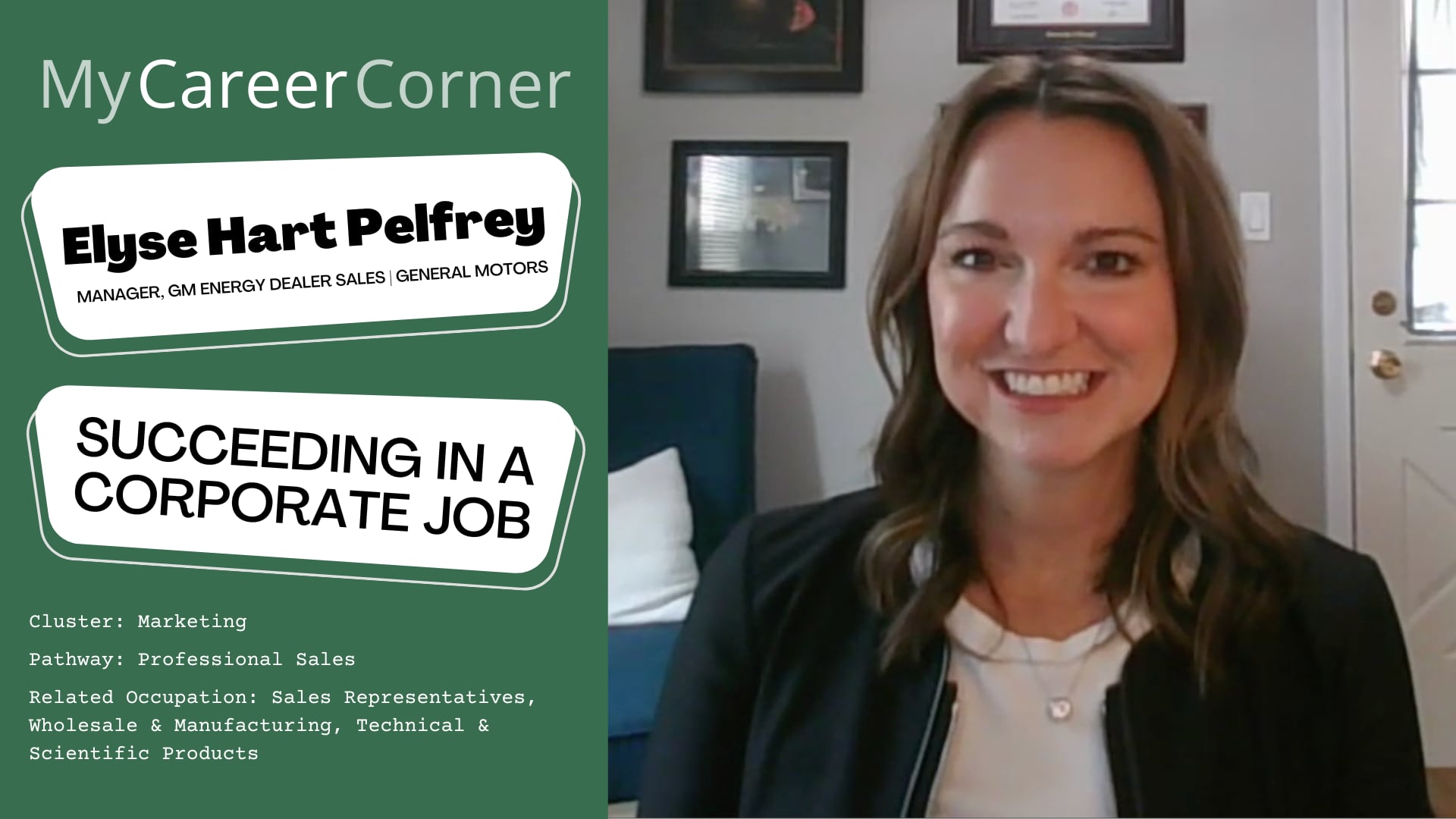
Succeeding in a Corporate Job with Elyse Hart Pelfrey
Elyse Hart Pelfrey shares the skills necessary to be successful, heading up a new innovative division, GM Energy, inside of a large company.
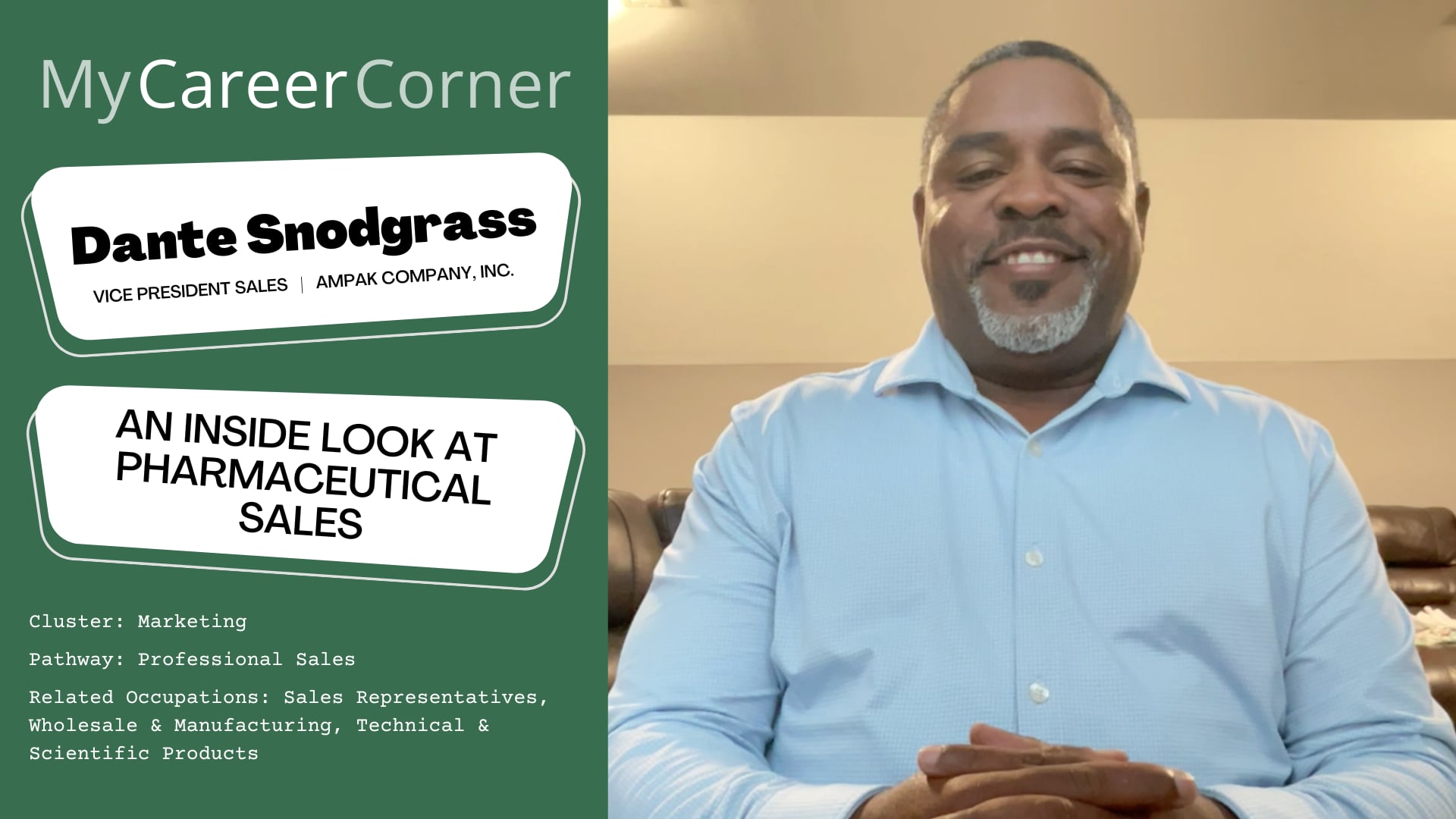
An Inside Look at Pharmaceutical Sales with Dante Snodgrass
Dante Snodgrass shares a typical day in his career of selling pharmaceutical ingredients including research, sales, and building relationships with new and current customers.
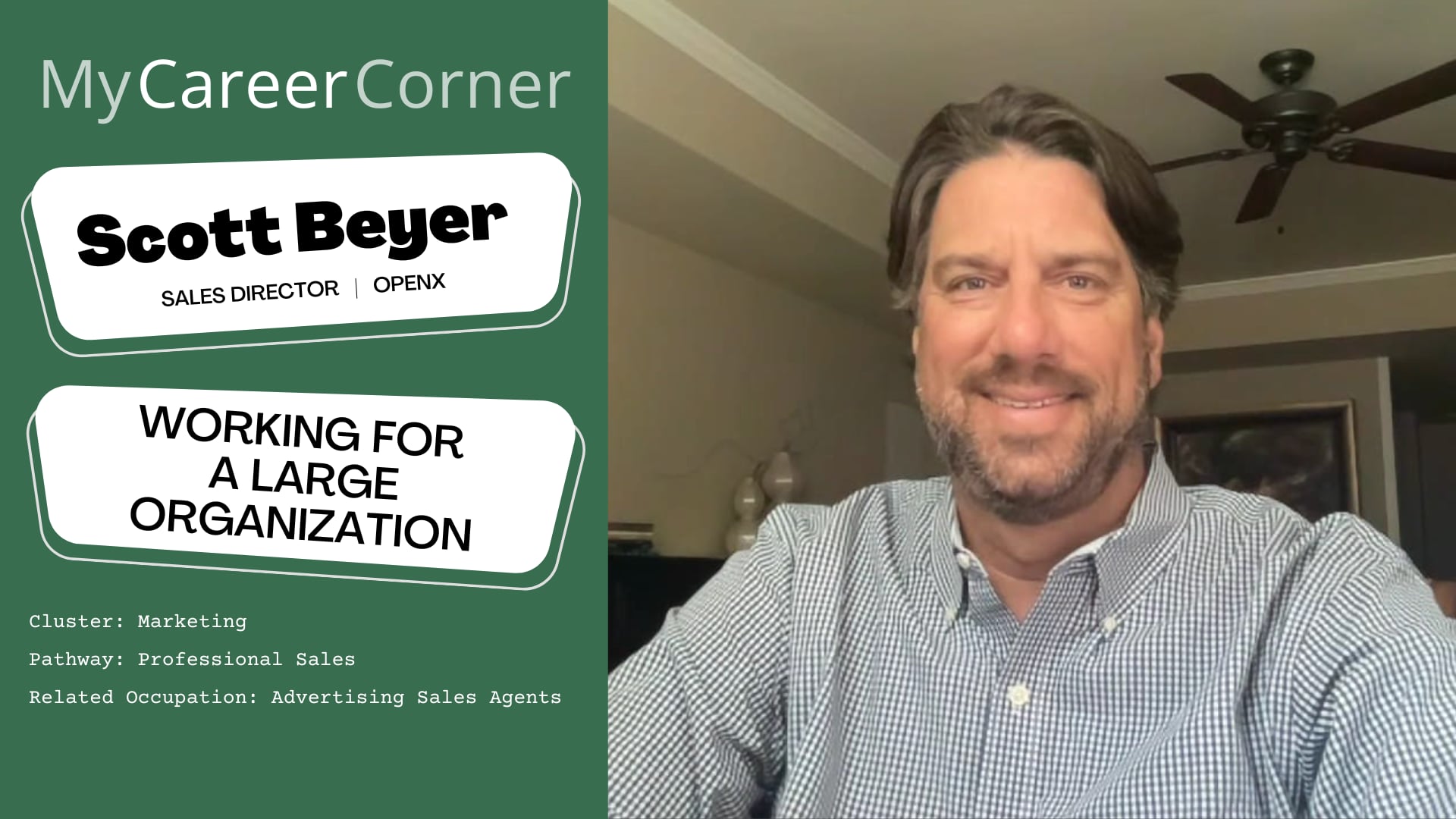
Working for a Large Organization with Scott Beyer
Scott recalls his time at Microsoft and Yahoo and shares some benefits of working for a large organization.
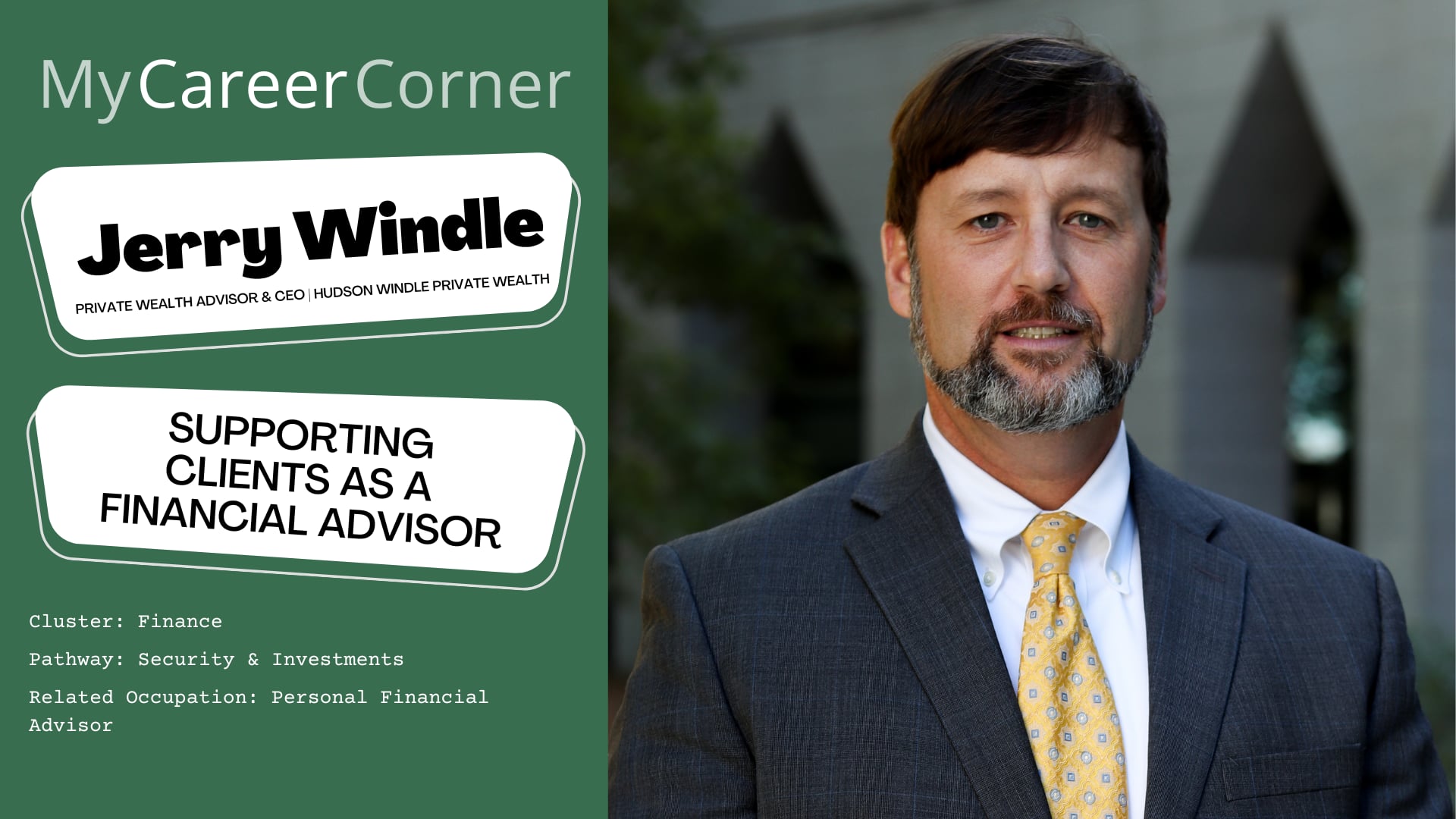
Supporting Clients as a Financial Advisor with Jerry Windle
Jerry Windle discusses his career as both a Financial Advisor and an Entrepreneur, and the value of relationships in building his business.
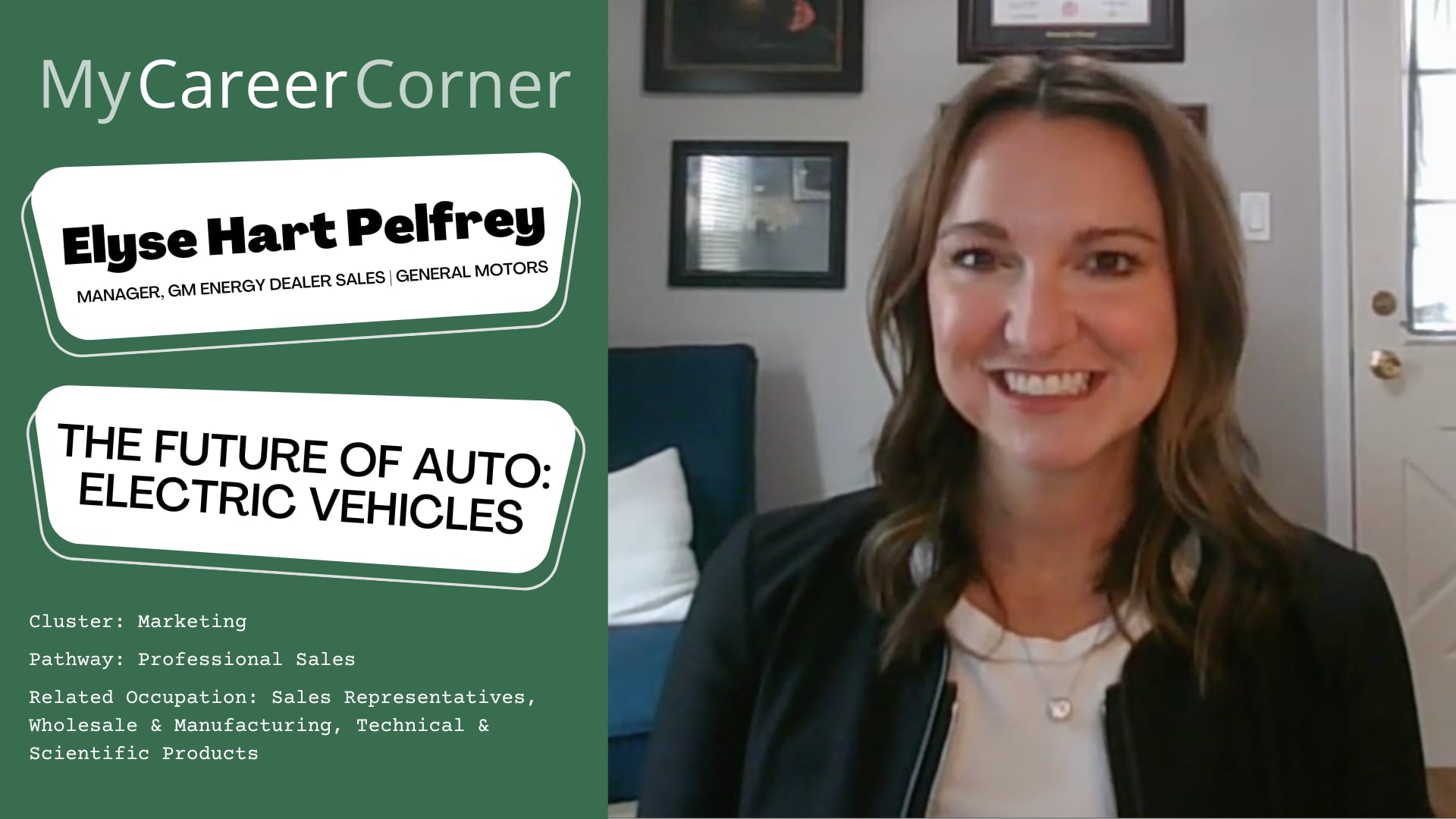
The Future of Auto: Electric Vehicles with Elyse Hart Pelfrey
Elyse Hart Pelfrey discusses the future of electric vehicles and how it will impact changes in the automotive industry and more.
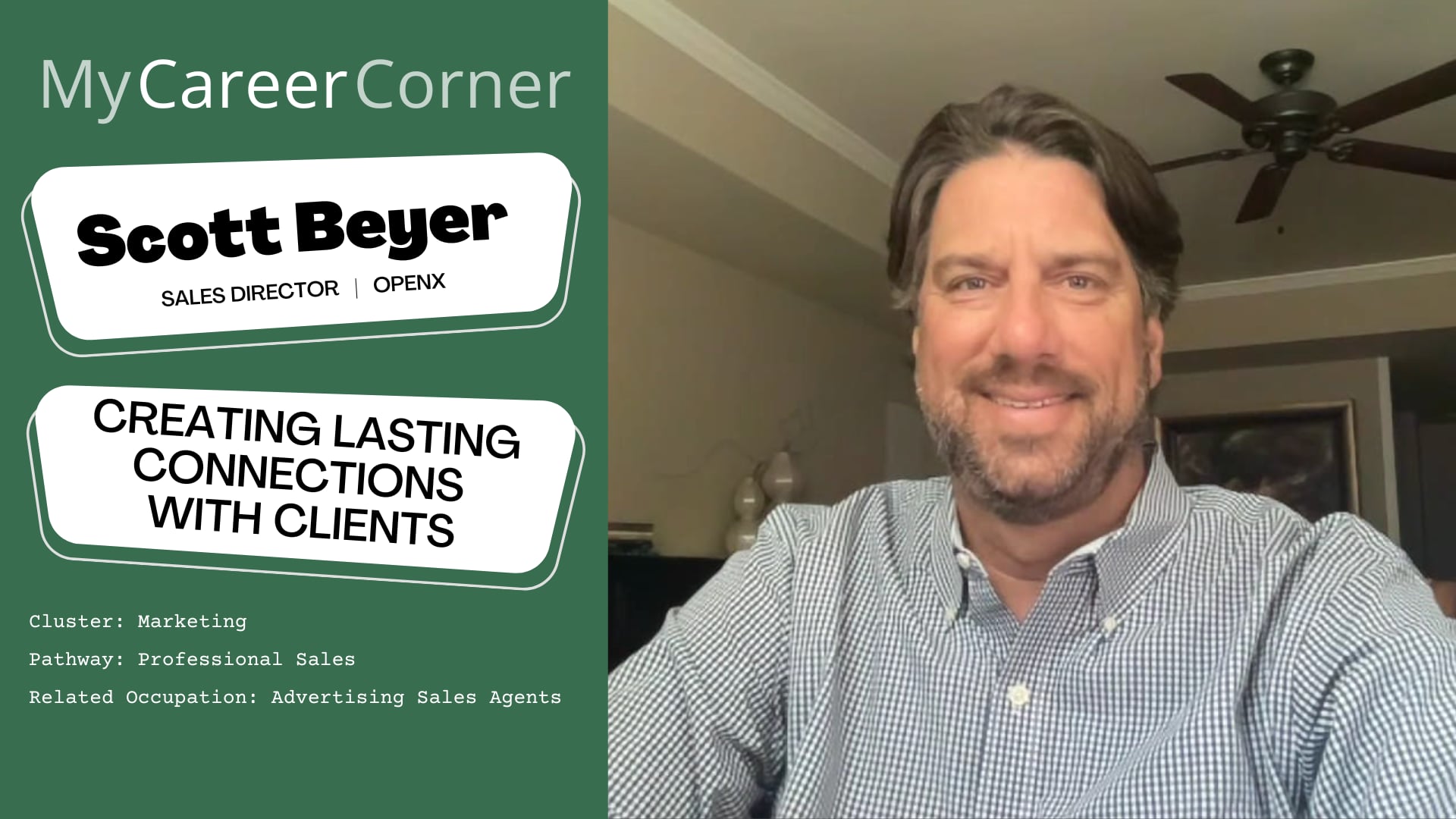
Creating Lasting Connections with Clients with Scott Beyer
Scott Beyer recalls a memorable experience while entertaining clients at Safeco Field that deepened his relationship with them, giving him a professional advantage.
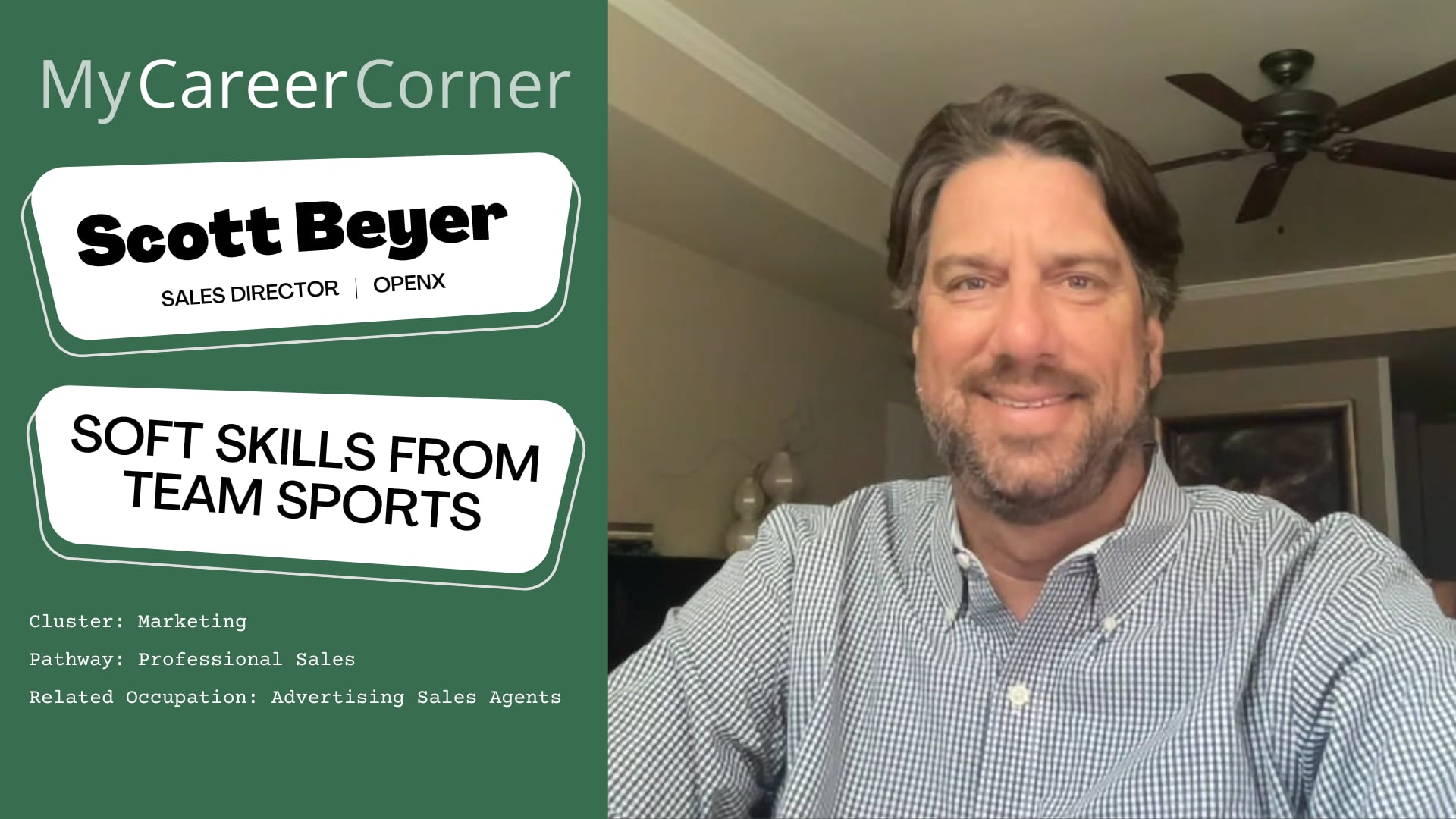
Soft Skills from Team Sports with Scott Beyer
Scott Beyer discusses soft skills developed through participating in sports including time management, teamwork, and dedication, and how these skills have translated to his life and career.
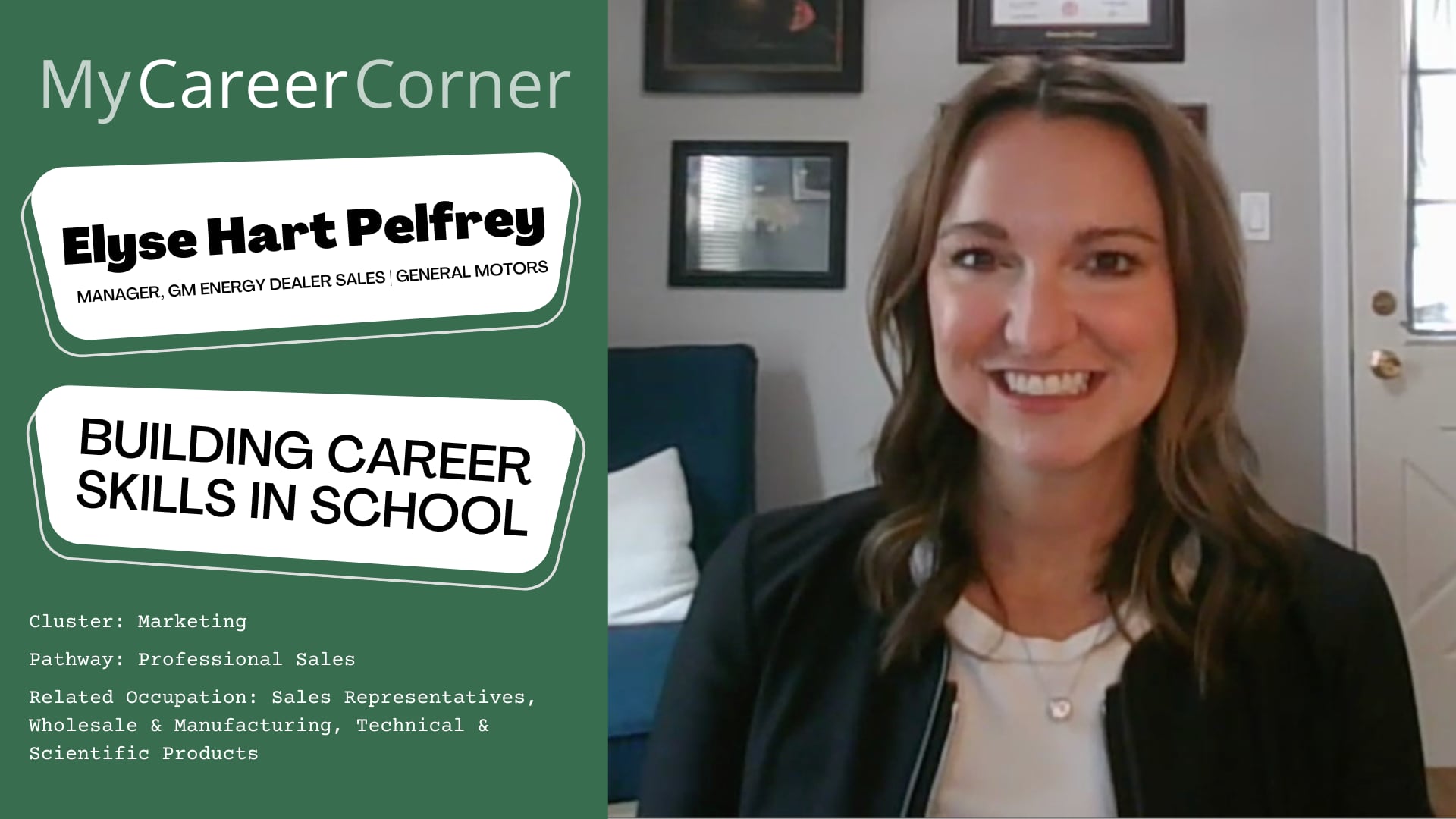
Building Career Skills in School with Elyse Hart Pelfrey
Elyse Hart Pelfrey talks about using her time in school to develop her skillset ranging from work ethic, leadership, critical thinking, strategic thinking, lifelong learning, time management, and networking.
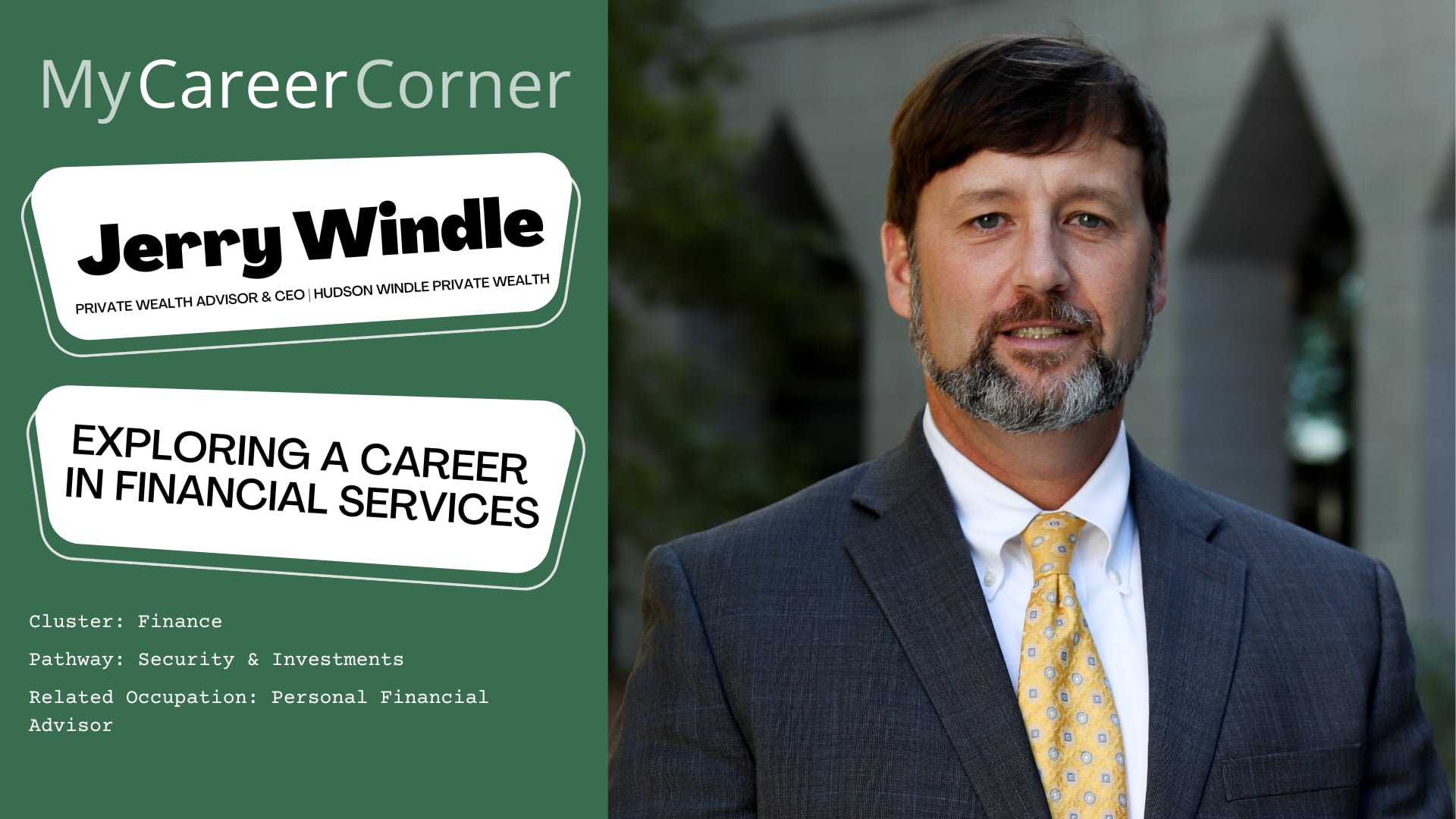
Exploring a Career in Financial Services with Jerry Windle
Jerry Windle describes how a personal tragedy led him to a career as a Financial Advisor.
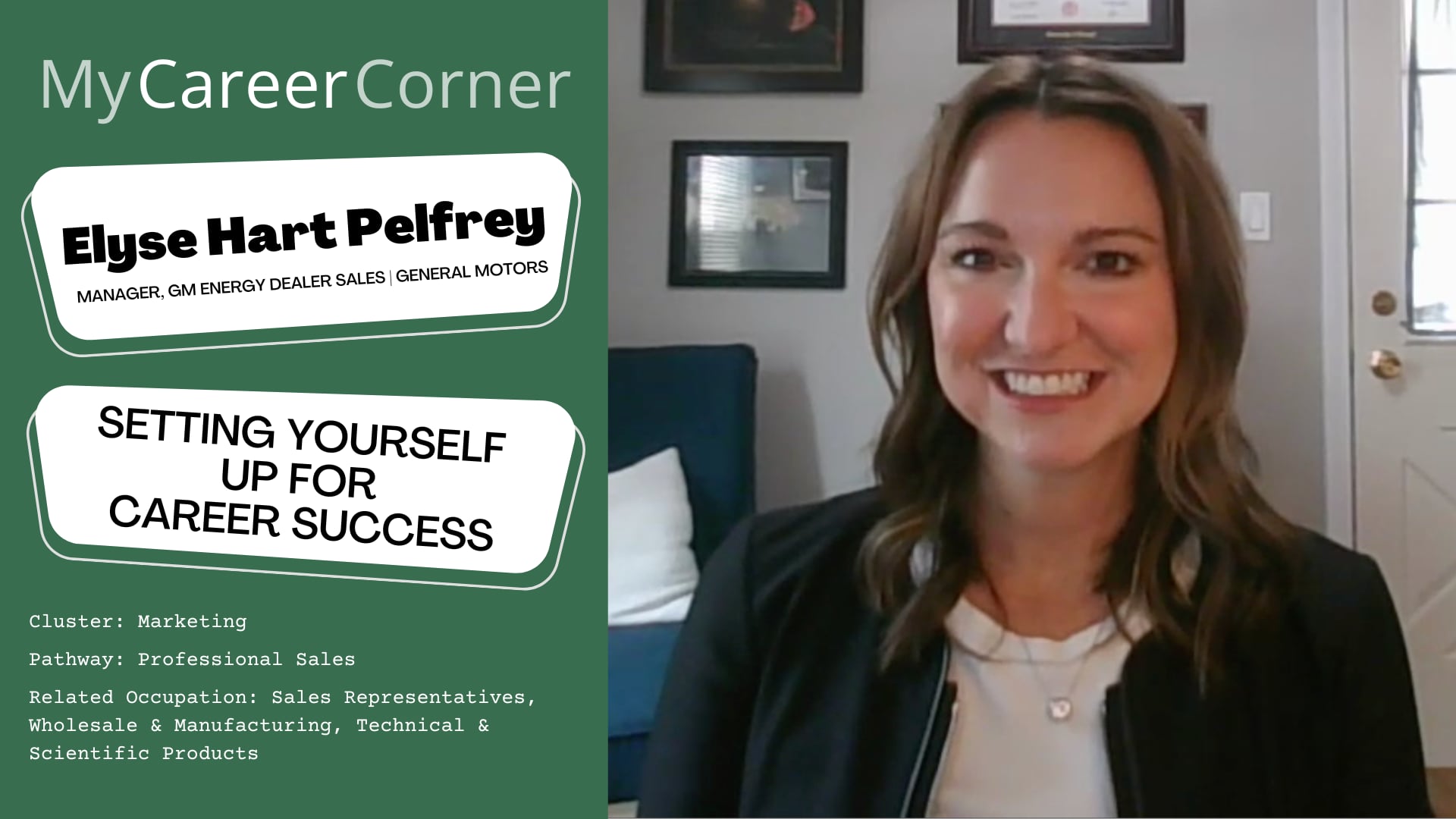
Setting Yourself Up for Career Success with Elyse Hart Pelfrey
Elyse Hart Pelfrey shares the personal attributes that has led to her success as a leader; She also gives advice on some do's and don'ts to be successful in the business world.
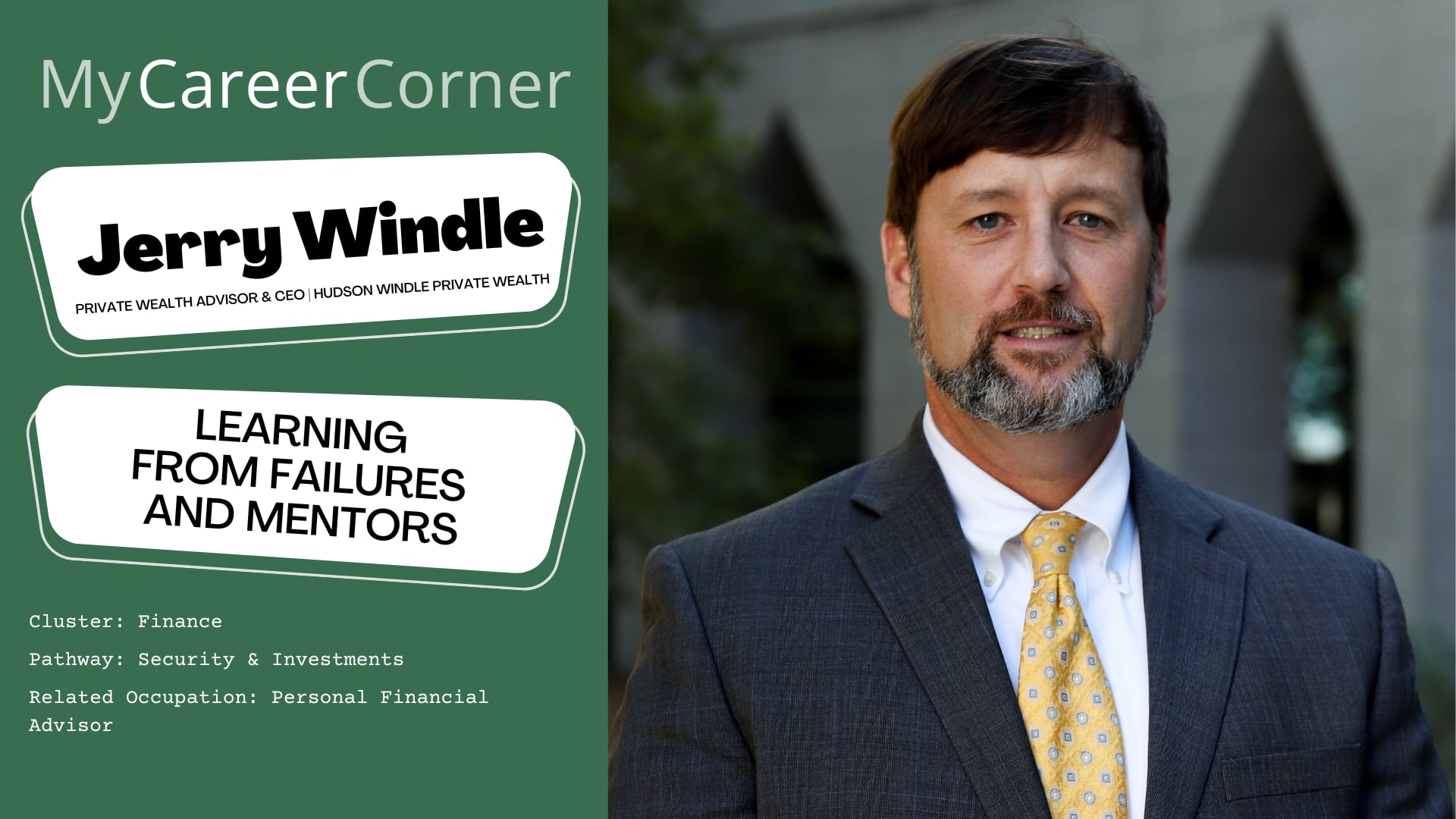
Learning from Failures and Mentors with Jerry Windle
Jerry Windle talks about how failures in sports have helped him gain resilience and work ethic, and how those experiences have led to his professional success.
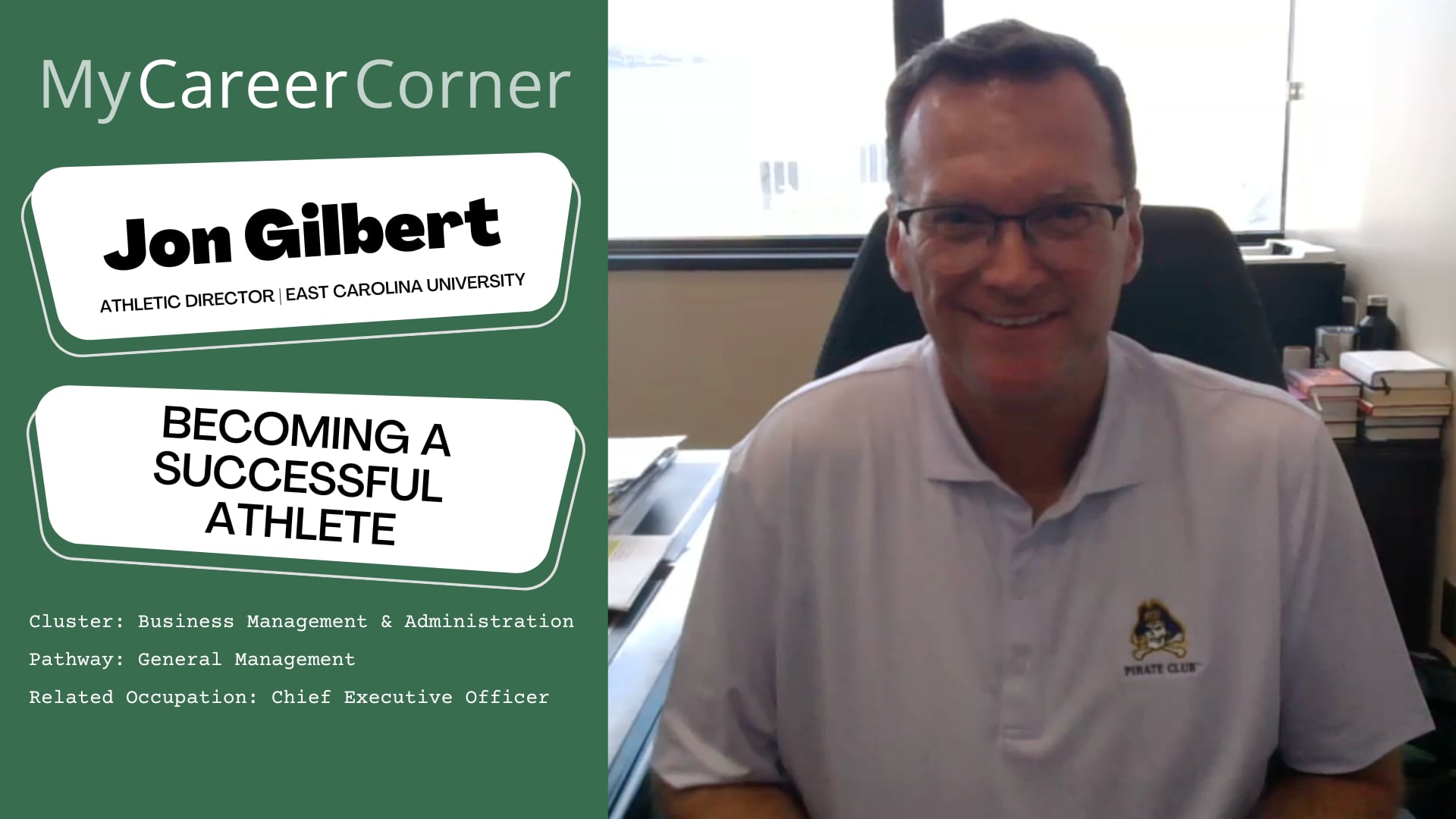
Becoming a Successful Athlete with Jon Gilbert
Jon Gilbert gives advice to student-athletes interested in competing in college athletics. Also applicable to any student looking for advice in advancing to the next stage in life.
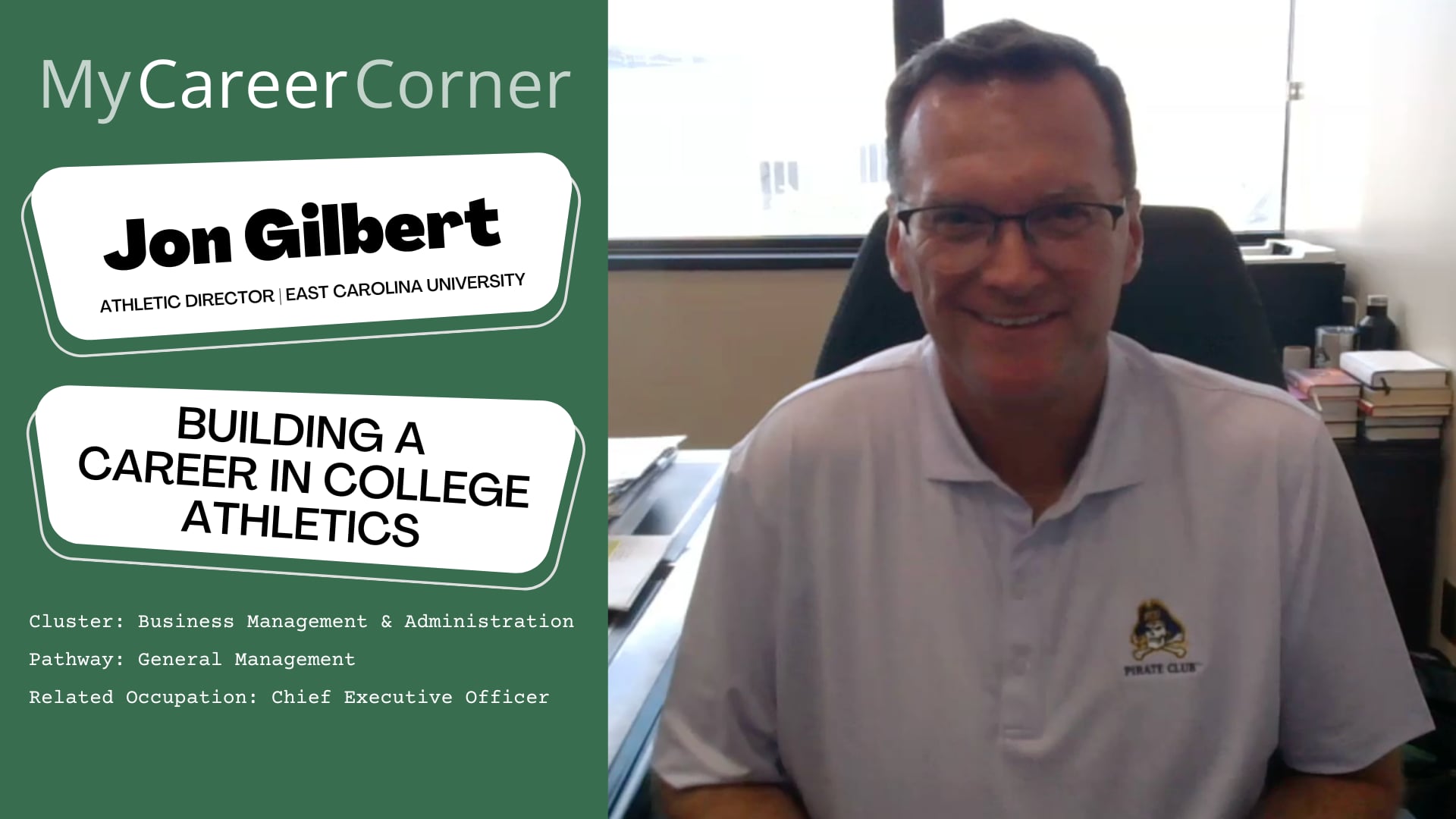
Building a Career in College Athletics with Jon Gilbert
Jon Gilbert talks about the evolution of his career path in college athletics from Alabama to Tennessee to Southern Mississippi and East Carolina.
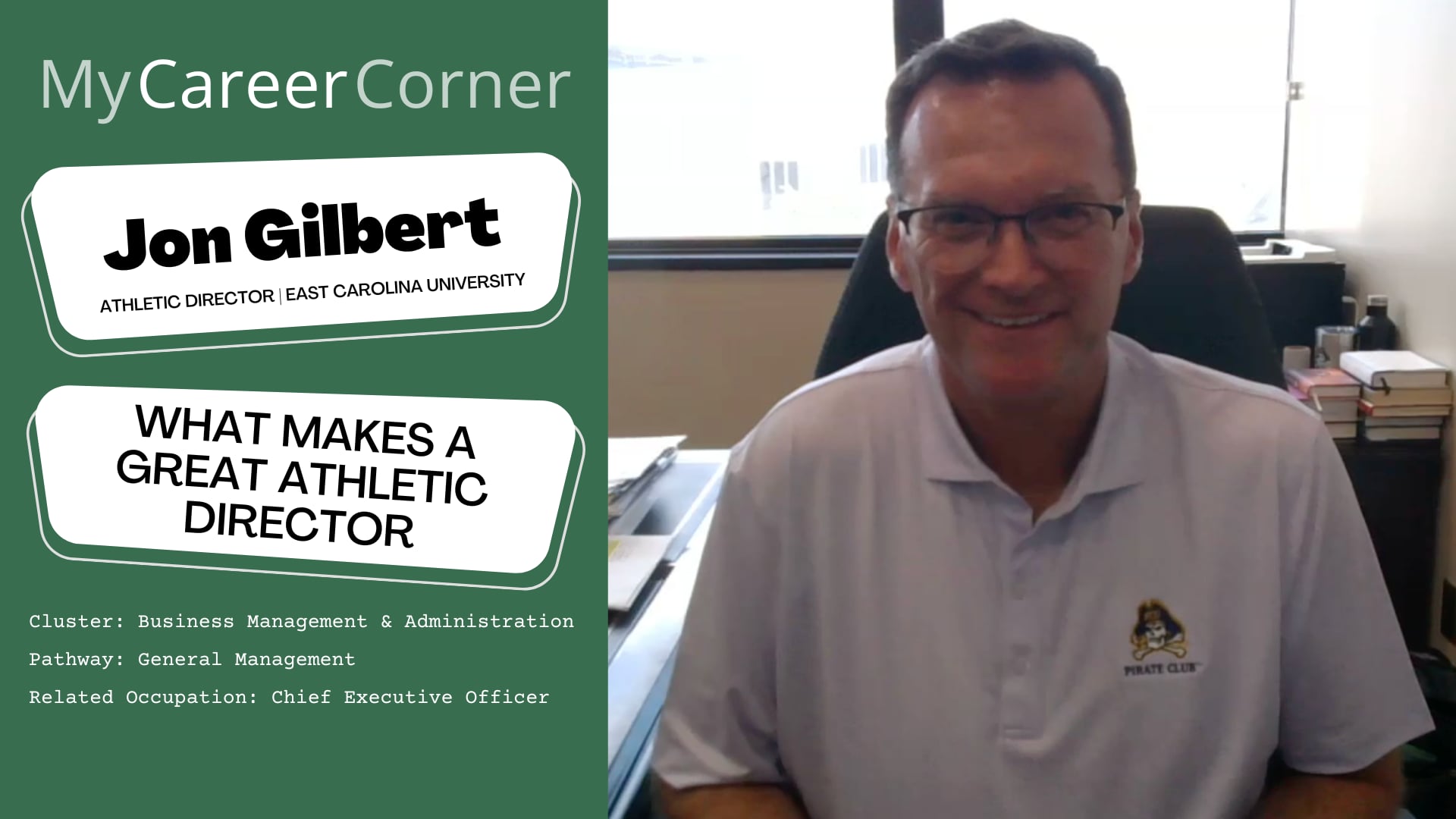
What Makes a Great Athletic Director with Jon Gilbert
Jon Gilbert gives advice to those interested in a career in college athletics and talks about the types of people he looks to hire.
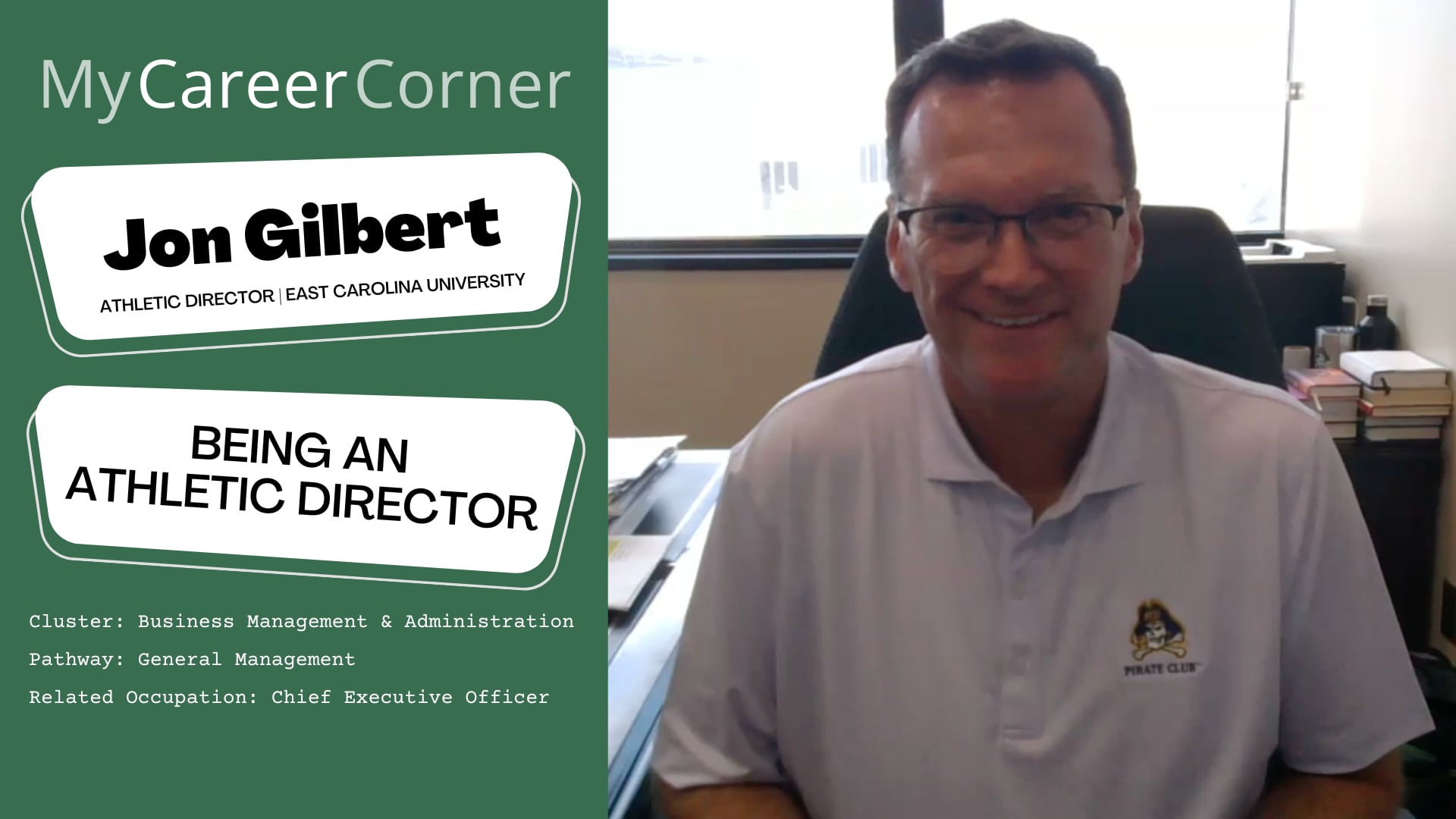
Being an Athletic Director with Jon Gilbert
Jon Gilbert discusses the broad skills involved in being a Division I Athletic Director. He also shares some of the memorable experiences throughout his career.
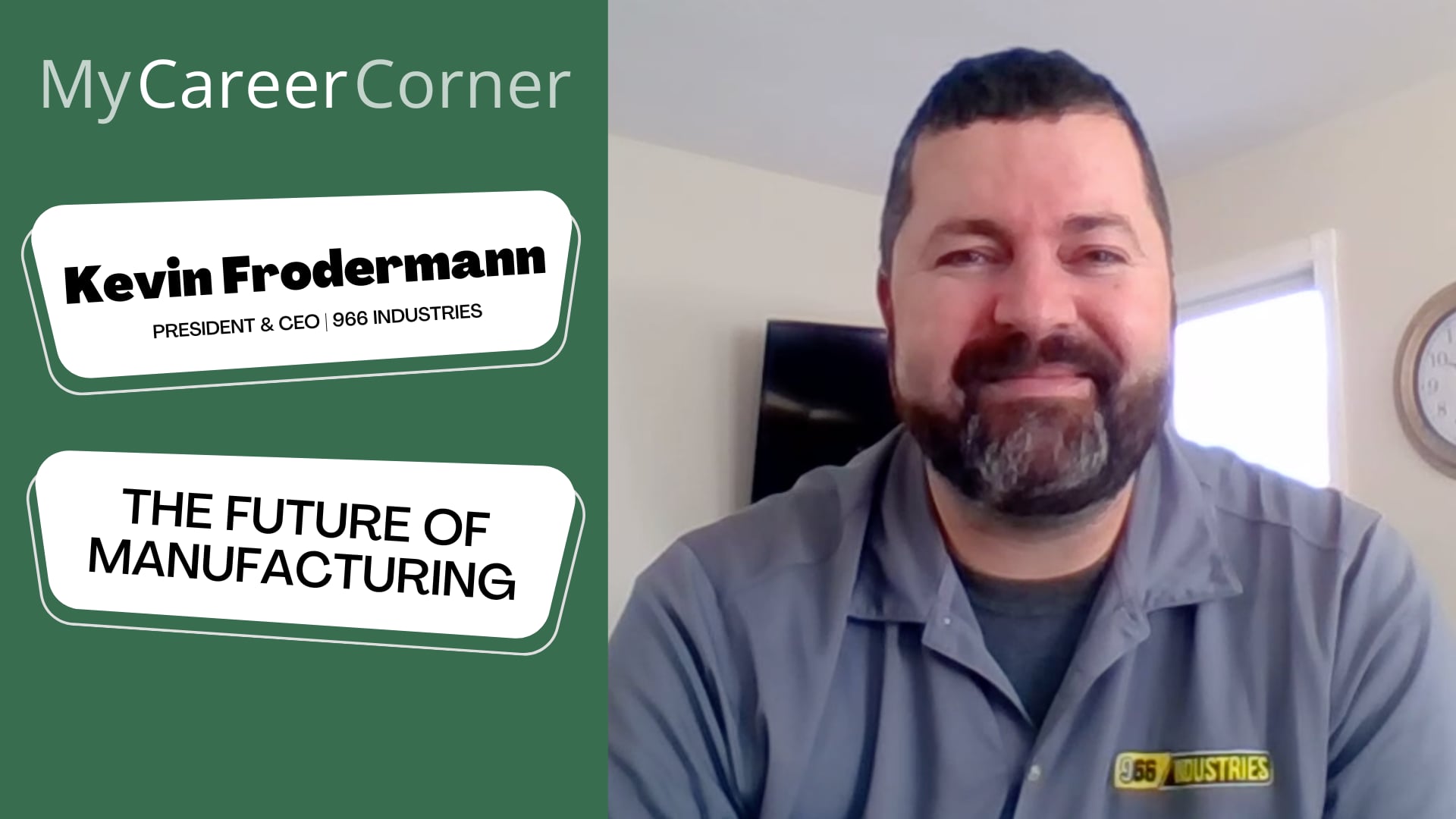
The Future of Manufacturing with Kevin Frodermann
Kevin Frodermann covers the past, present and future of manufacturing.
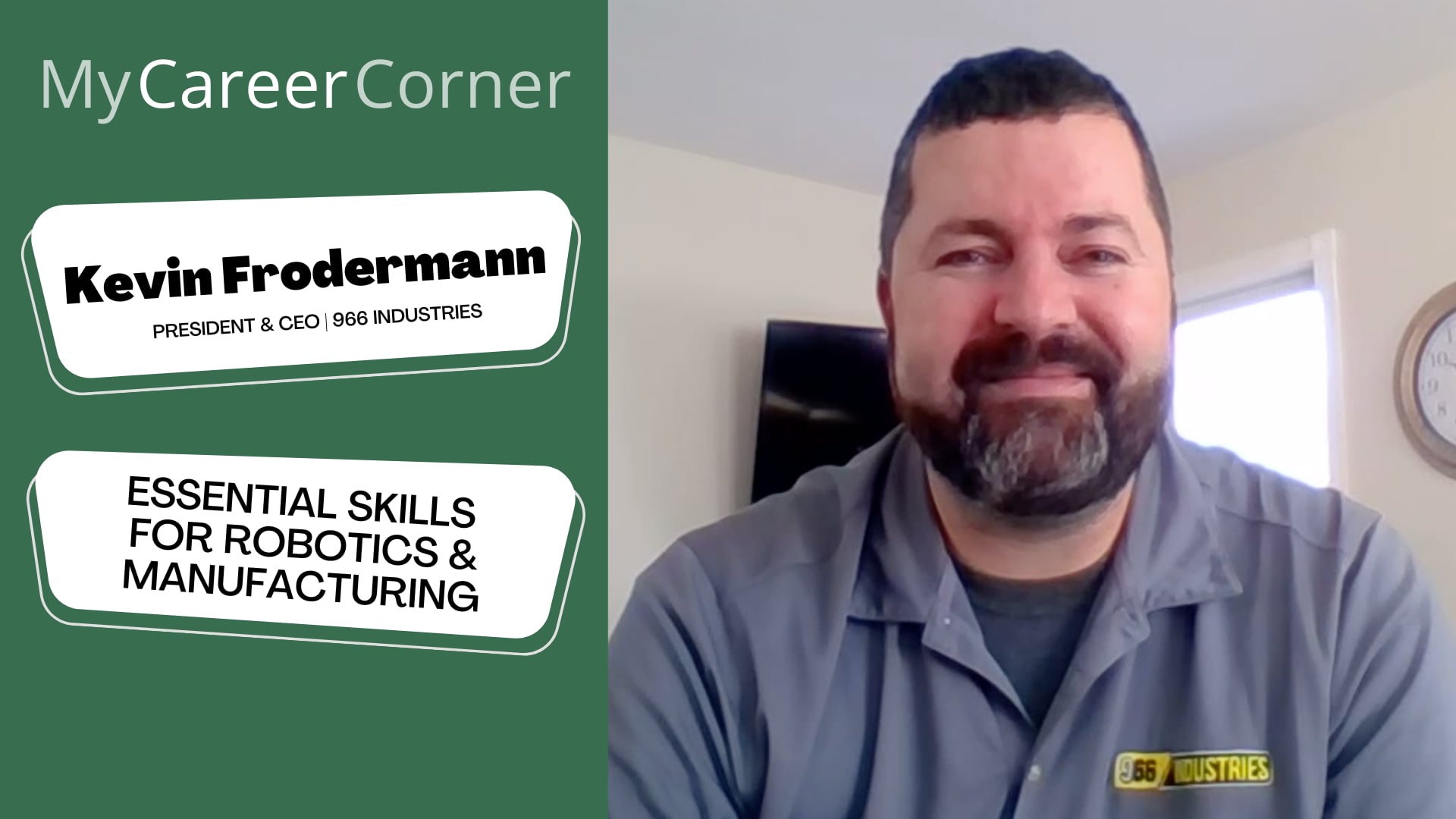
Essential Skills for Robotics & Manufacturing with Kevin Frodermann
Kevin Frodermann identifies the types of skills that he looks for in his manufacturing company. He also covers the types of career options available today in the Robotics industry.
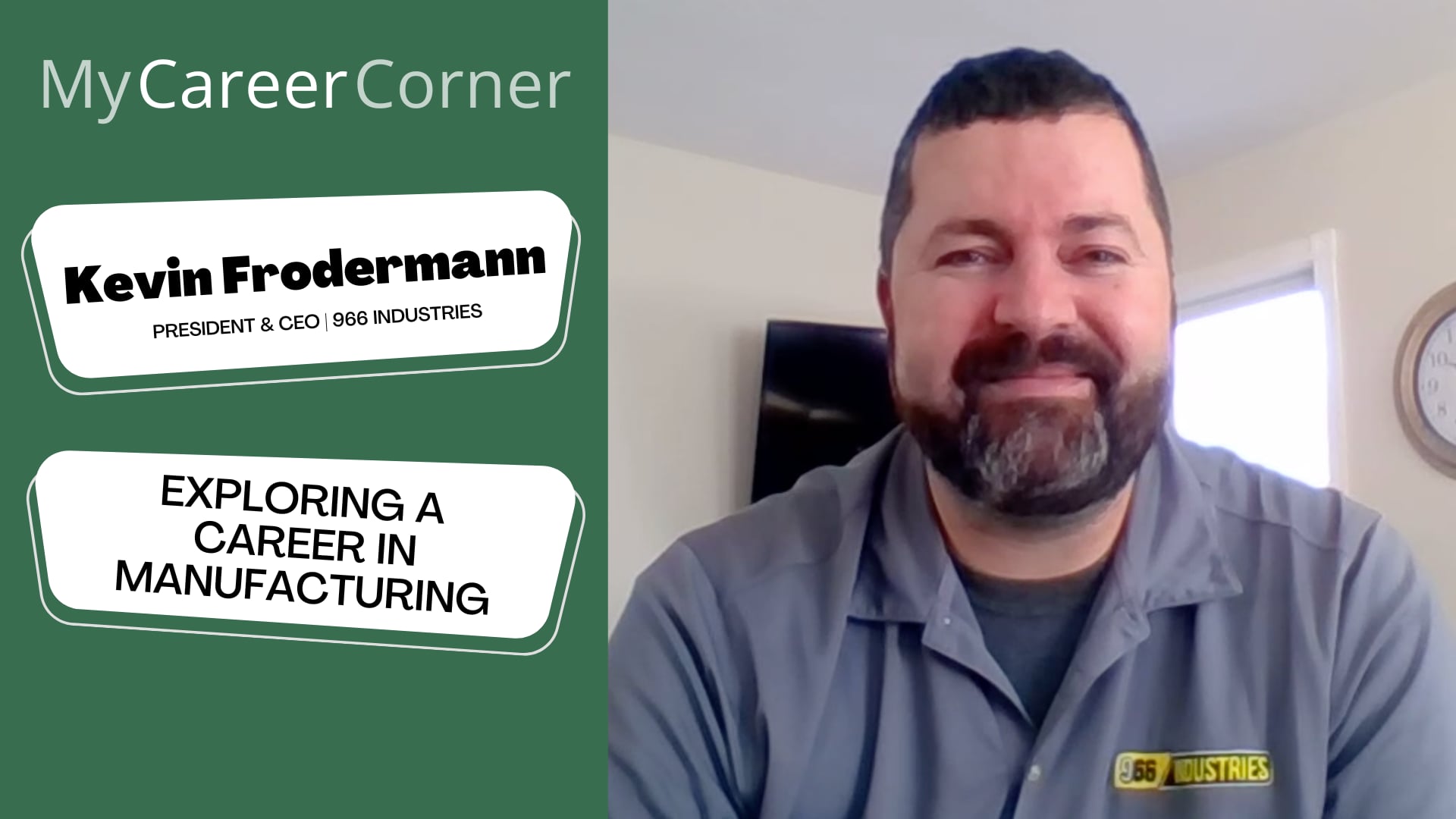
Exploring a Career in Manufacturing with Kevin Frodermann
Kevin Frodermann talks about the importance of problem solving in manufacturing to provide value to the customer and gives advice for those interested in a career in manufacturing.
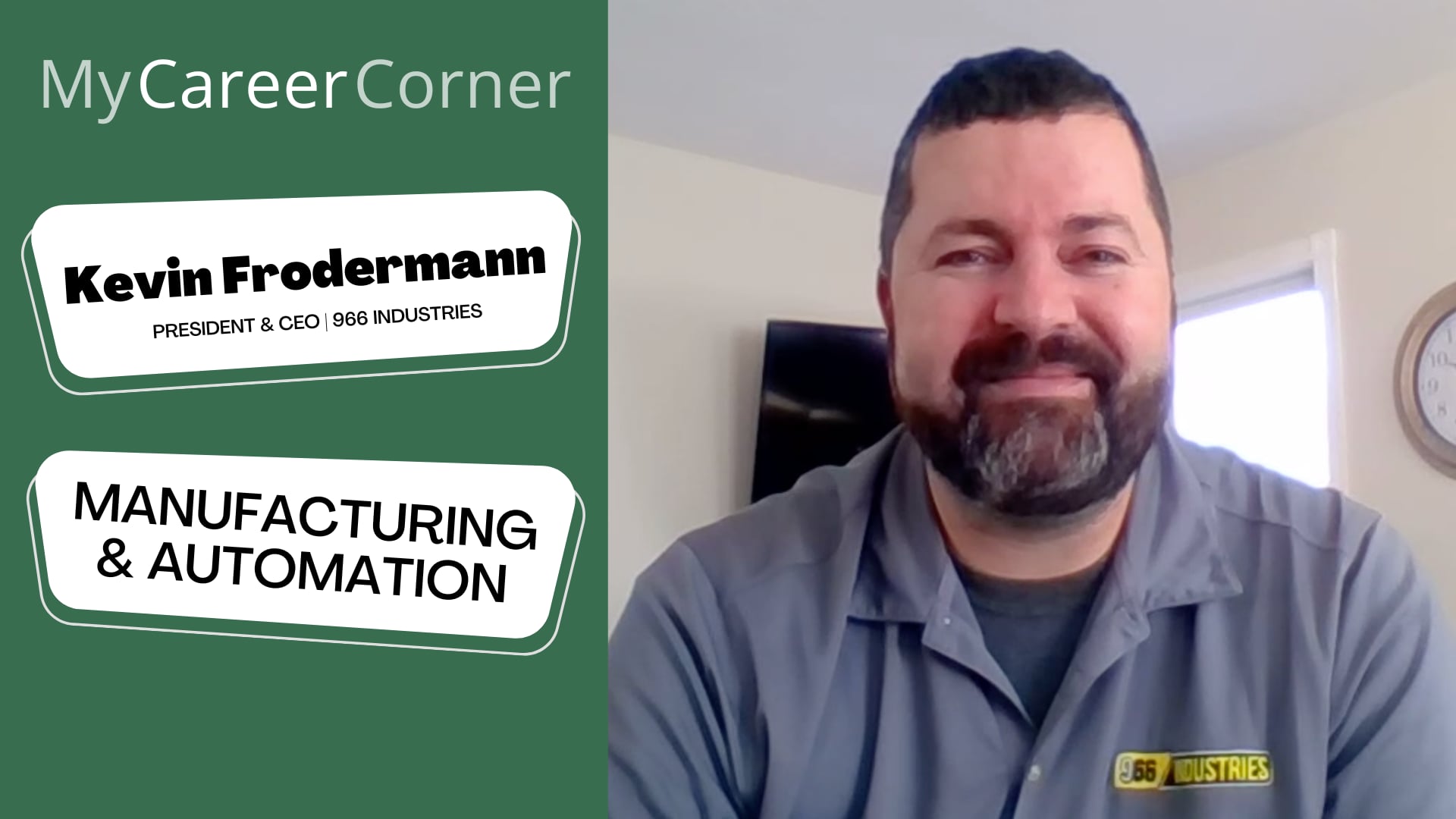
Manufacturing & Automation with Kevin Frodermann
Kevin Frodermann discusses his manufacturing and industrial automation business and gives an example of how he uses Robotics.
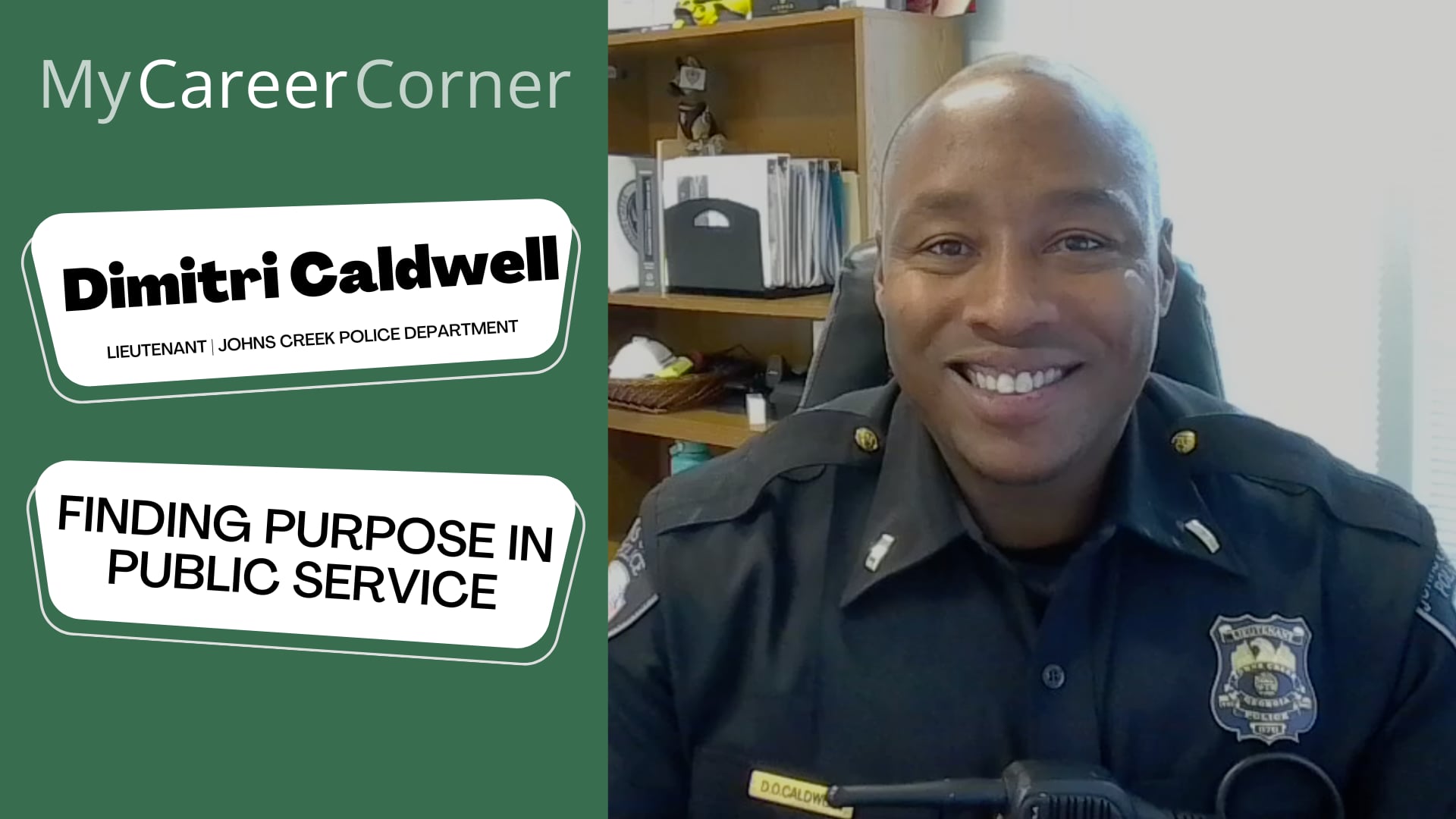
Finding Purpose in Public Service with Dimitri Caldwell
Dimitri Caldwell talks about the value of public service to your community. He also gives advice to anyone interested in a career in law enforcement.
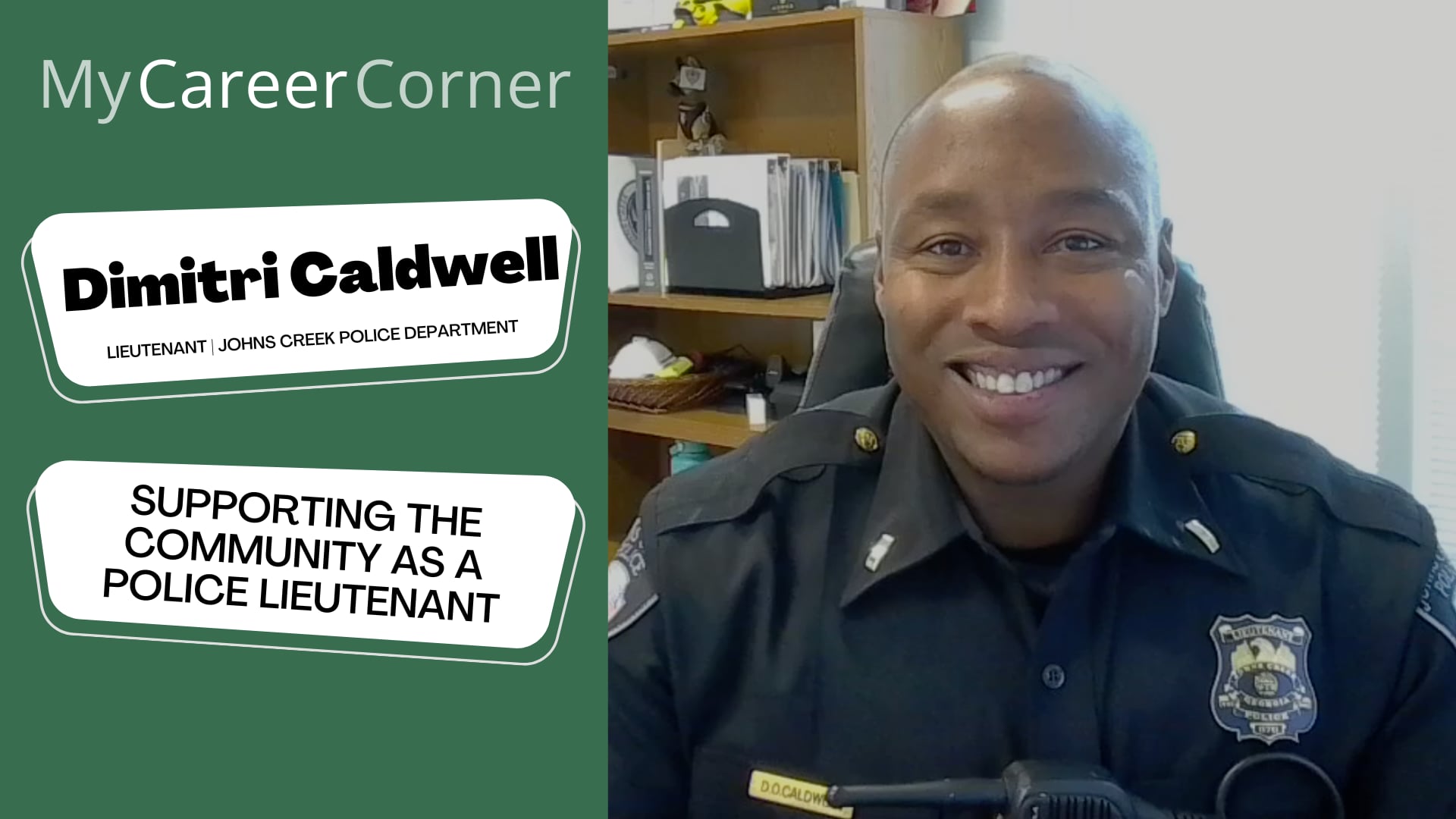
Supporting the Community as a Police Lieutenant with Dimitri Caldwell
Dimitri Caldwell discusses the broad range of responsibilities he has in his community through his role as a Lieutenant in the Police Department.
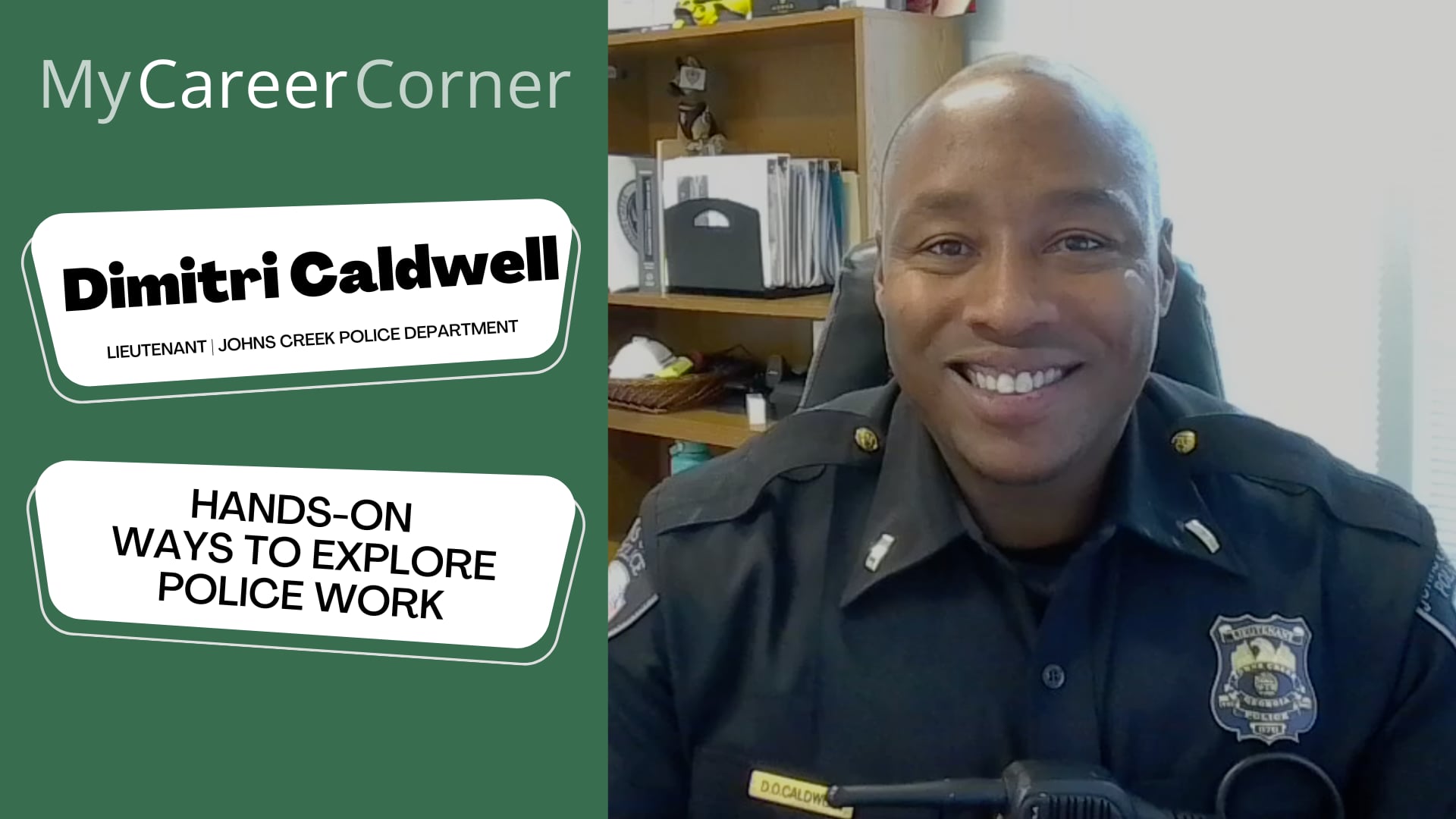
Hands-On Ways to Explore Police Work with Dimitri Caldwell
Dimitri Caldwell discusses ways that students interested in law enforcement can engage with their local department through things such as internships, ride-along, and the public safety academy.
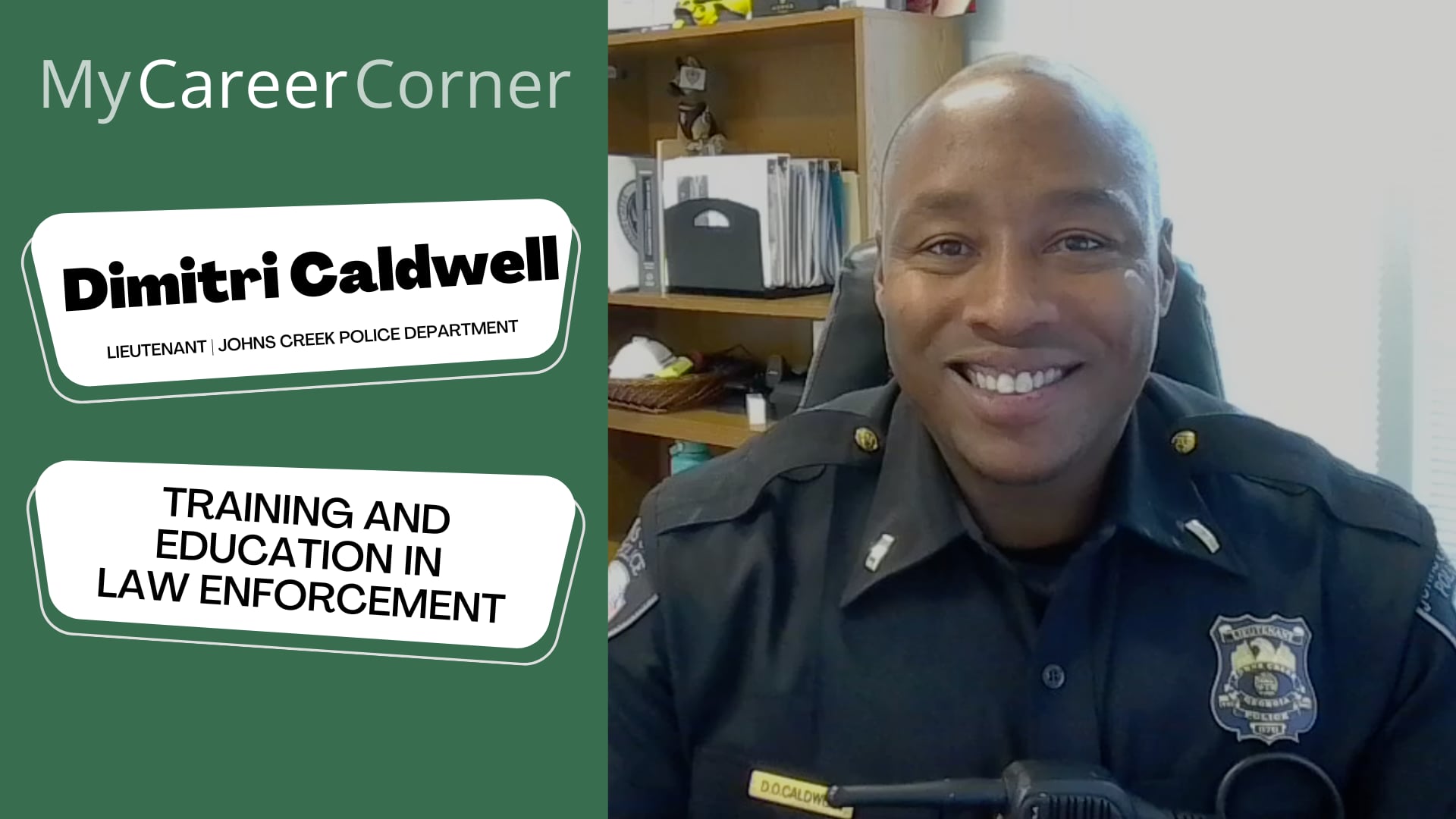
Training and Education in Law Enforcement with Dimitri Caldwell
Dimitri Caldwell talks about the types of training and education necessary for a career in law enforcement.
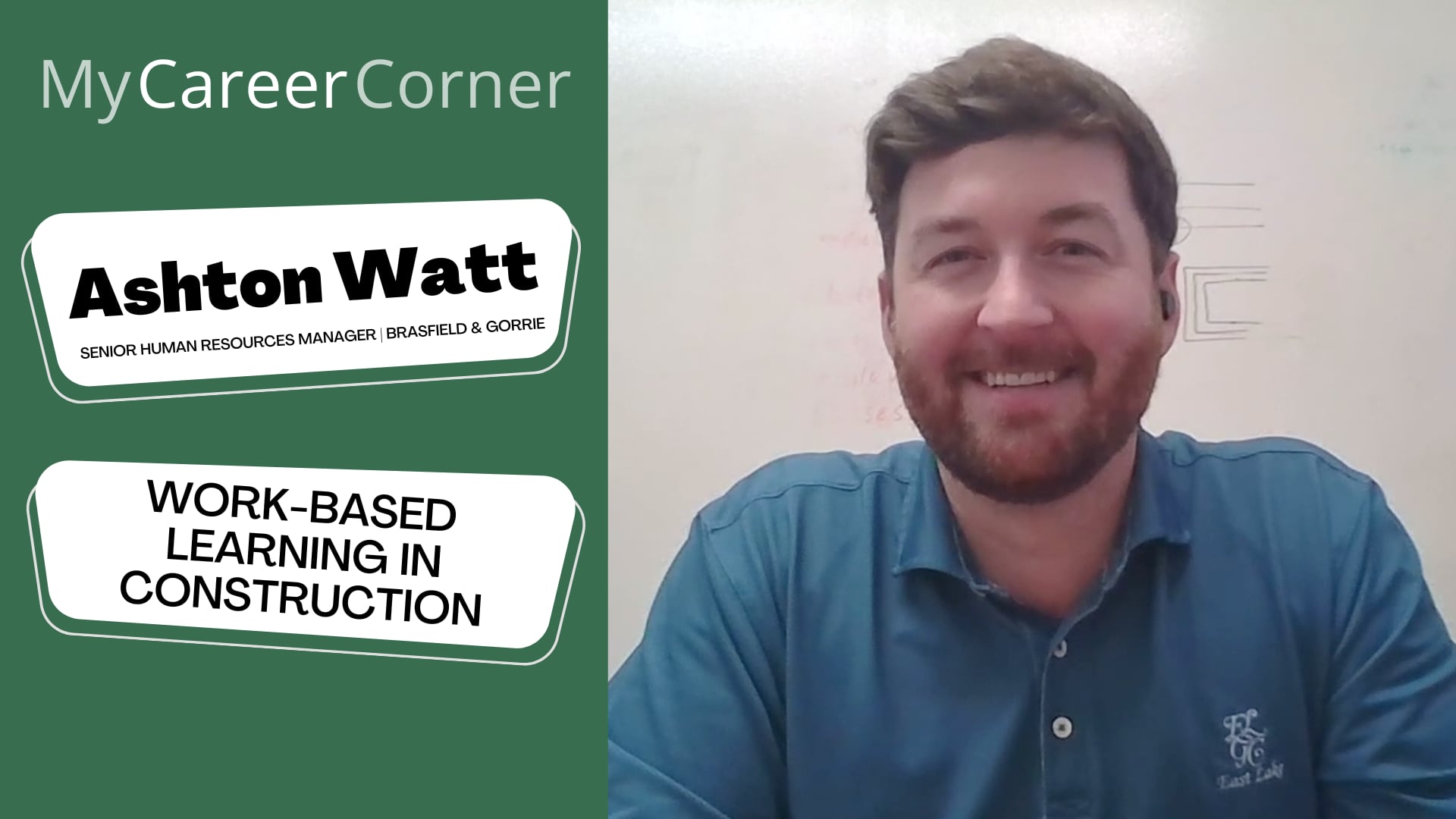
Work-Based Learning in Construction with Ashton Watt
Ashton Watt talks about the value of gaining experience and exposure to the Construction industry through Work-Based Learning programs.
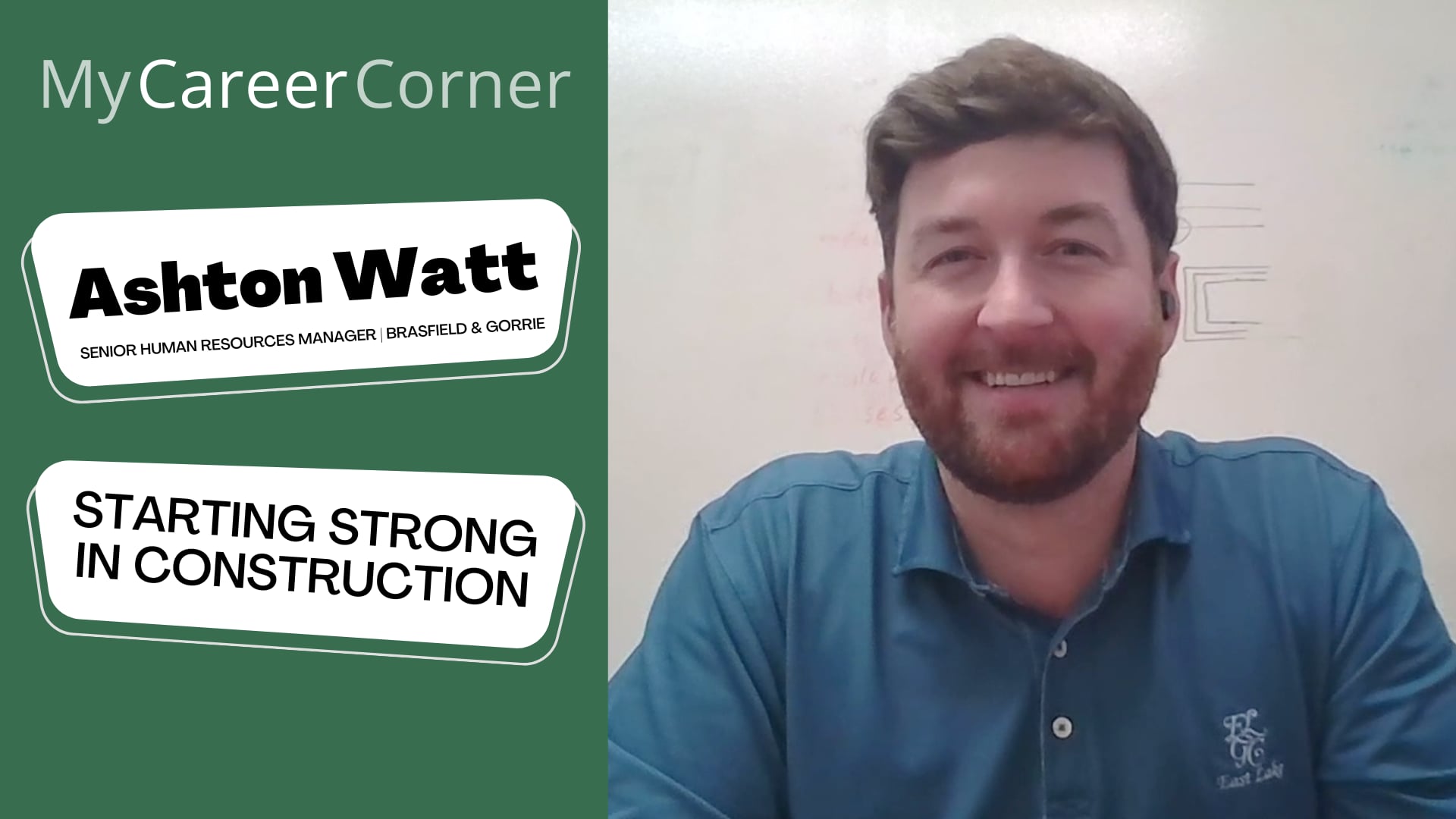
Starting Strong in Construction with Ashton Watt
Ashton Watt discusses the skills and values they look for when hiring employees for Construction jobs. He also gives advice for people looking to start a career in the industry.
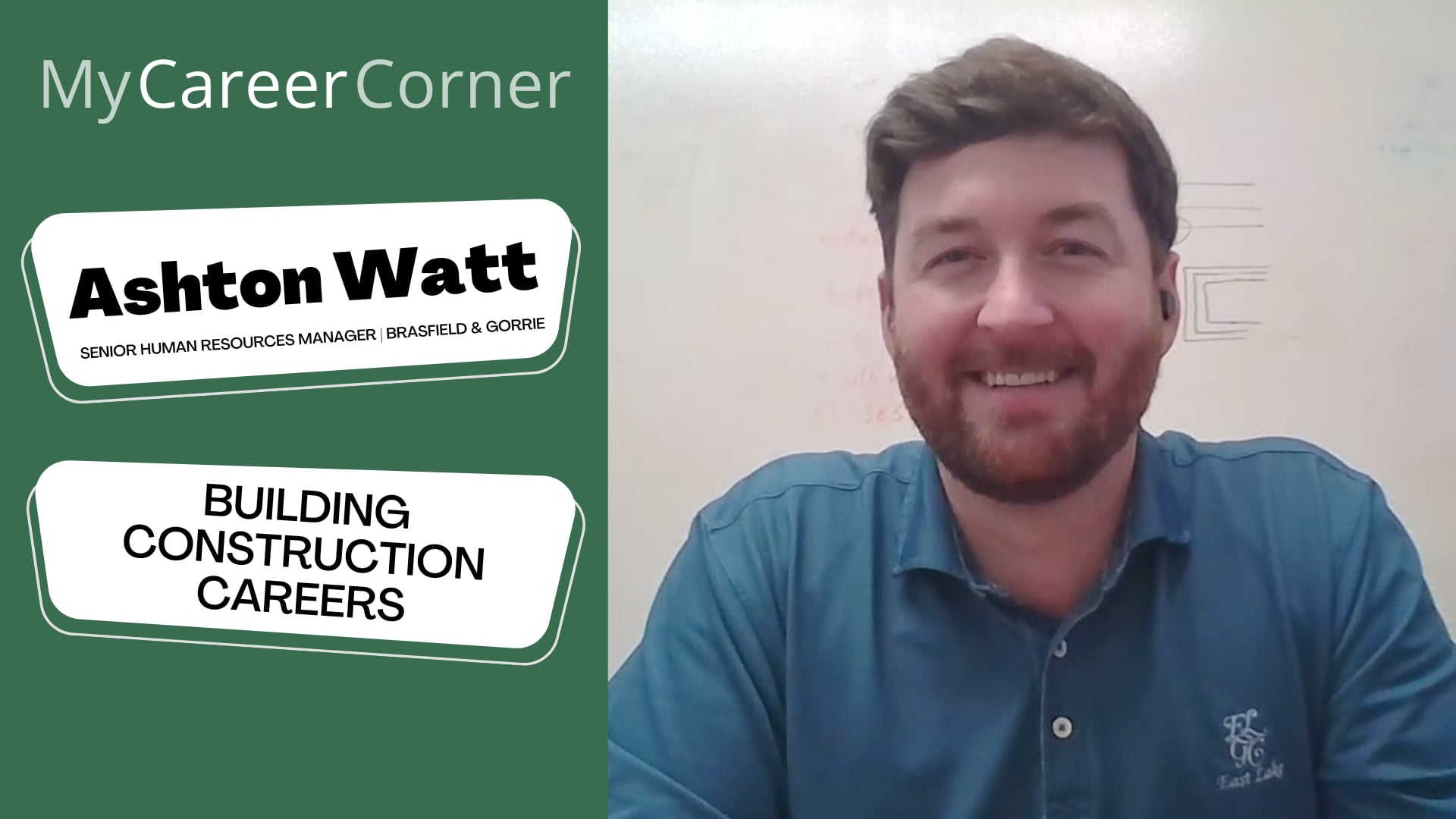
Building Construction Careers with Ashton Watt
Ashton Watt talks about opportunities available for young people interested in Construction, including Apprenticeships, Internships, and training programs to help them grow their knowledge and expertise for a successful career.
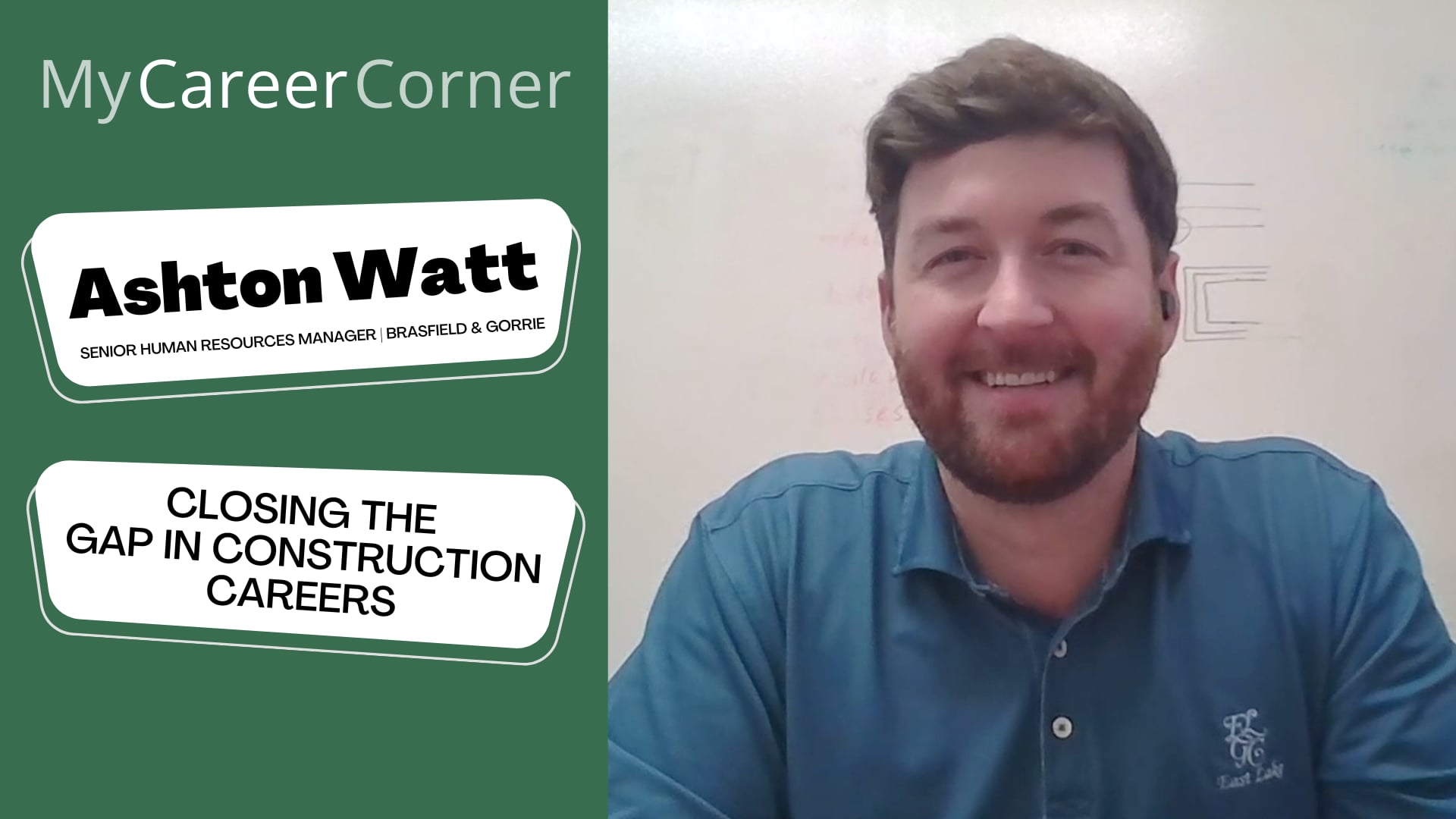
Closing the Gap in Construction Careers with Ashton Watt
Ashton Watt discusses the coming knowledge gap in the construction industry and the opportunities for the future workforce to build an amazing career.
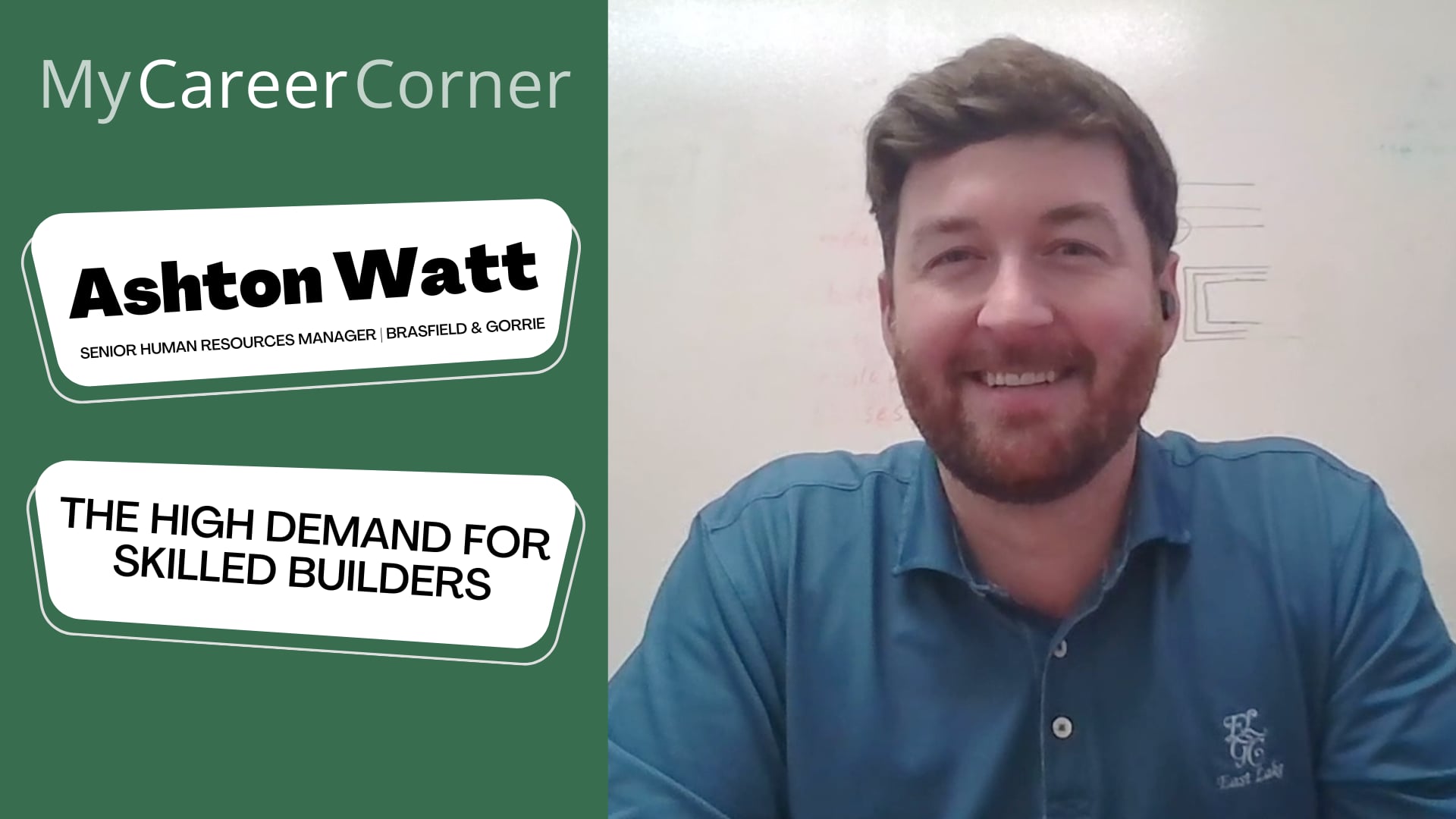
The High Demand for Skilled Builders with Ashton Watt
Ashton Watt covers the key Trades that are in demand in the Construction industry and the opportunity to build a lucrative career in those roles.
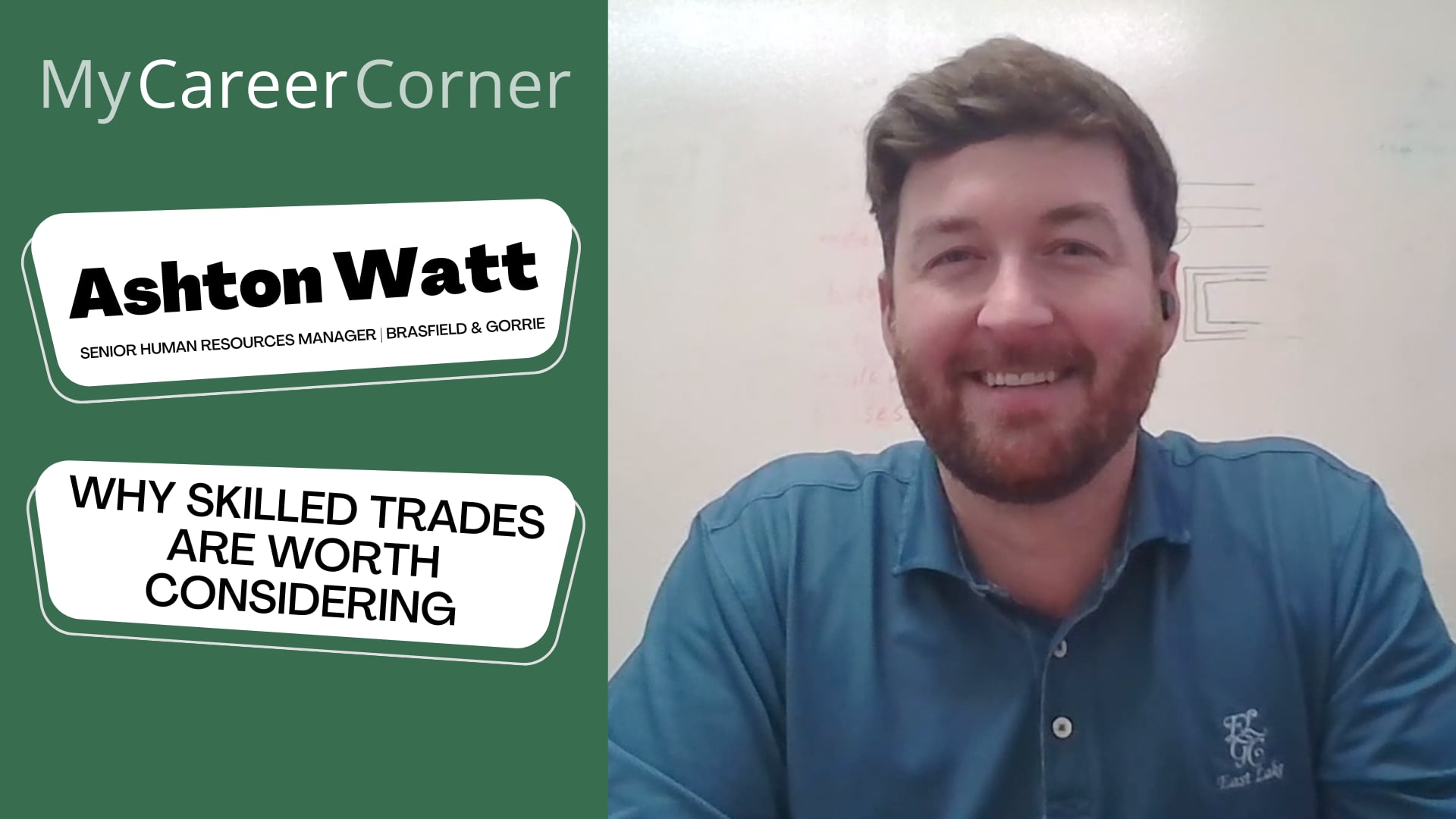
Why Skilled Trades Are Worth Considering with Ashton Watt
Ashton Watt discusses the many benefits of a career in the Skilled Trades.
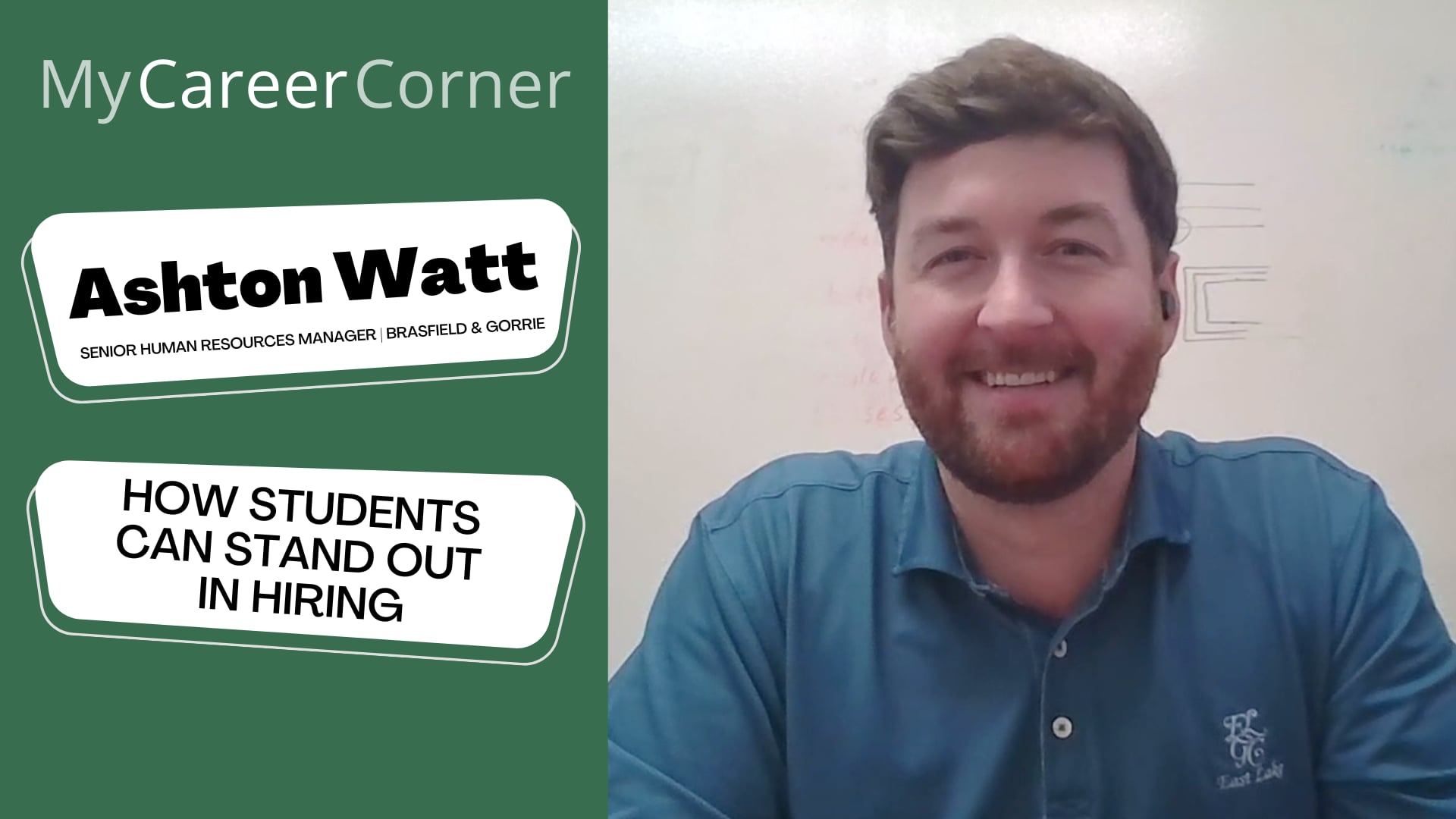
How Students Can Stand Out in Hiring with Ashton Watt
Ashton Watt gives tips to students on some of the professional things that they can do to put themselves in the best position to get hired.
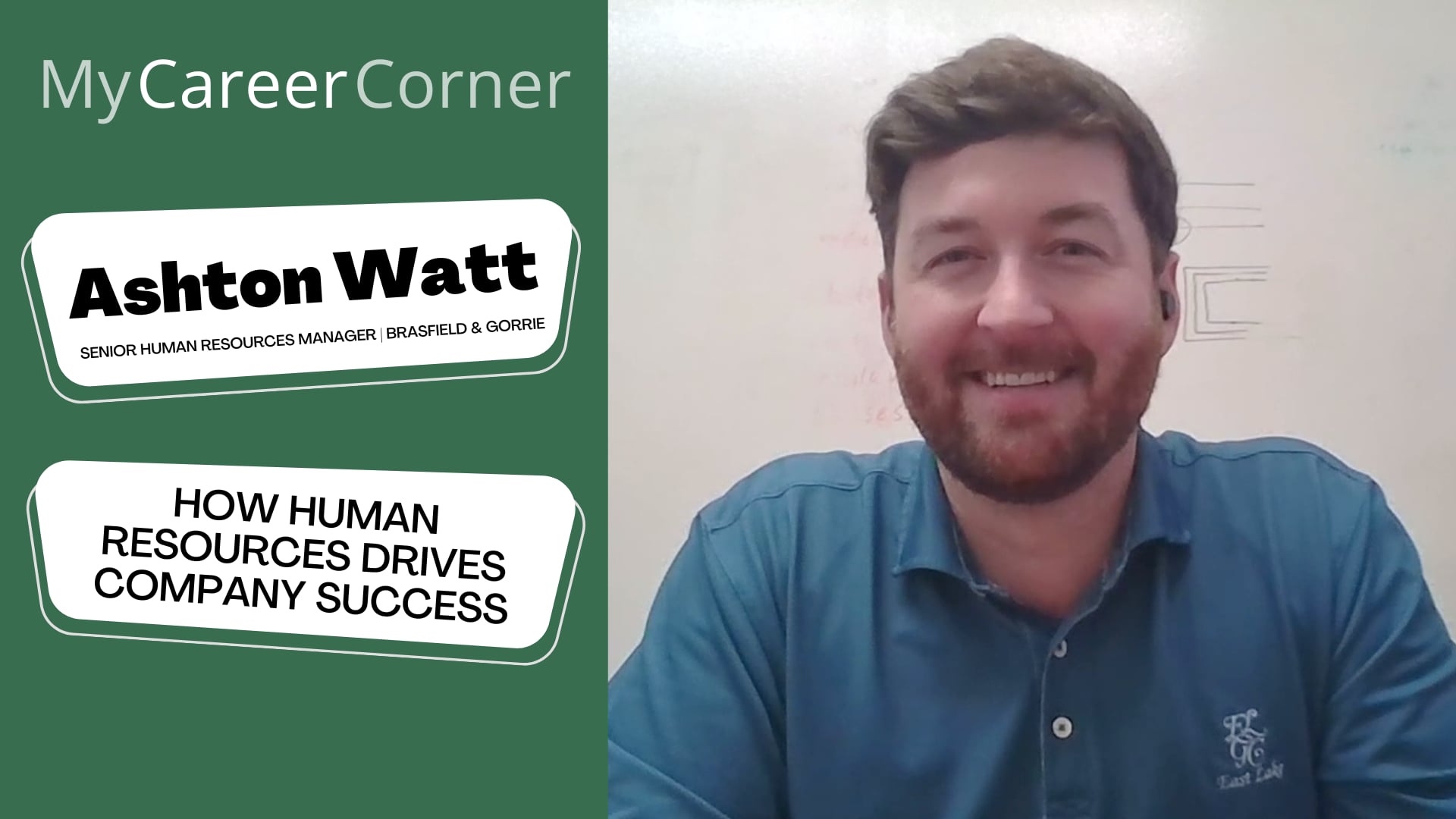
How Human Resources Drives Company Success with Ashton Watt
Ashton Watt talks about the service function of Human Resources and how it impacts the success of the company, the employees, and the community.
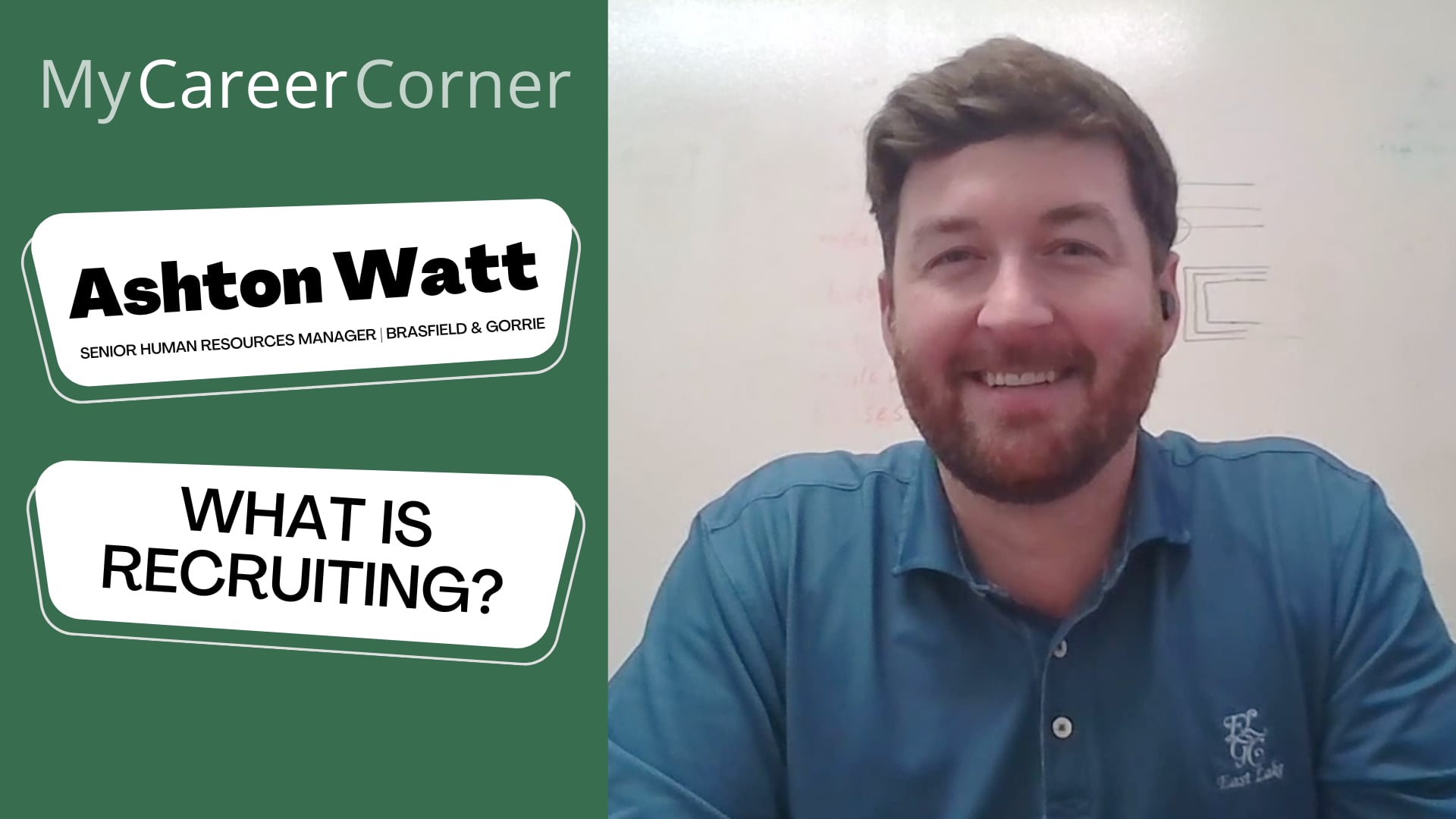
What is Recruiting? with Ashton Watt
Ashton Watt talks about the job of Recruiters, the function of recruiting, and how it fits into the overall workforce.
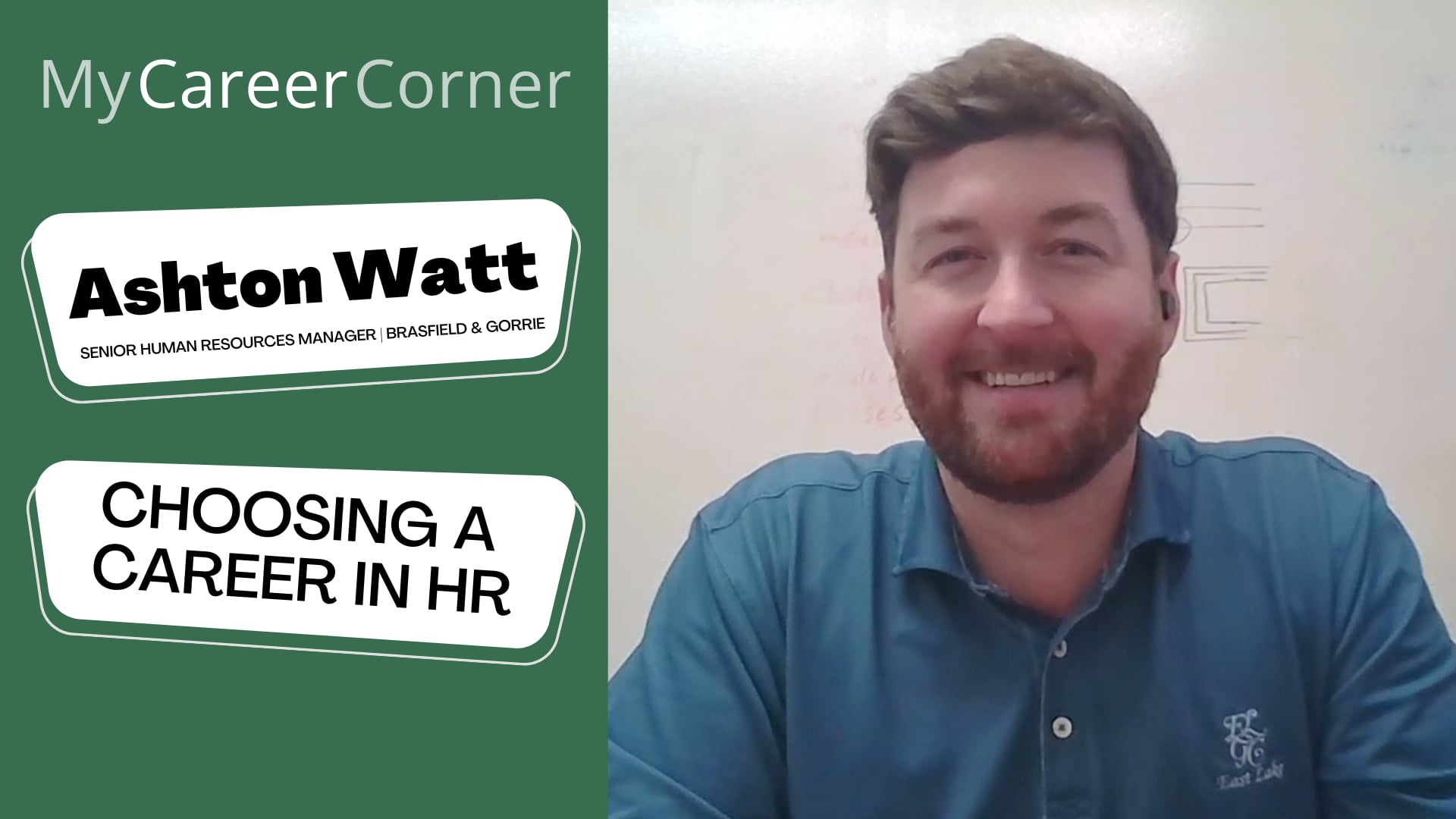
Choosing a Career in HR with Ashton Watt
Ashton Watt discusses how he chose a career in Human Resources and his love for the role and responsibilities.
